

31+ Articulation Goals for Speech Therapy (Goal Bank)
I’m excited to share with you today my articulation goals, which are an essential part of the speech therapy progress for those wanting to improve their articulation skills.
The speech goals I’ve outlined below involve addressing specific phonemes, or speech sounds, that an individual has difficulty pronouncing. The goal is to help your student or client to develop clear and intelligible speech.
You as the Speech-Language Pathologists (SLPs) play a crucial role in identifying, assessing, and creating personalized articulation goals for individuals with speech disorders.
It is important to keep in mind that articulation disorders are when a student has difficulty with a specific consonant or vowel sound, unlike phonological disorders which are when the student is having broader issues affecting whole words or phrases.
By working closely with an SLP, individuals can receive tailored therapeutic approaches, such as auditory and tactile cueing or modeling techniques, to address their unique articulation needs.
As your students make progress, articulation goals should be adjusted to continually demonstrate growth and improvement in your student’s speech sound production.

Key Takeaways
- Articulation goals are essential in speech therapy for addressing specific speech sound difficulties.
- Speech-language pathologists create personalized goals and therapeutic approaches for individuals with articulation disorders.
- Progress towards articulation goals is continually assessed and adjusted to promote growth in speech sound production.
Understanding Articulation Goals
The first step.
Before diving into articulation goals, you should understand the first step in articulation therapy.
- It’s essential to identify the sounds or phonemes with which the person has difficulty.
- By assessing these challenges, the speech therapist can develop tailored goals to help the individual work on their specific articulation needs.
- A great starting point would be to use a standardized test, such as the Goldman-Fristoe Test of Articulation or another articulation test or screener as a great way to determine which sounds the student is struggling with and where to begin therapy.
- In the initial phase of therapy, the ability to make sounds correctly at the word level in different word positions (initial position, medial position, or final position) is crucial, as it establishes the groundwork for developing accurate speech articulation.

Purpose of Articulation Goals
The purpose of articulation goals is to improve communication skills for individuals who face challenges in pronouncing words or sounds. These goals are what help guide your students’ speech therapy sessions to ensure the student or client actually makes progress toward their articulation skills.
When creating articulation goals, speech therapists should consider various aspects, such as the phonemes involved, the position of the sounds within words (initial, medial, or final), and the student’s age-appropriateness to be working on those particular goals.
Articulation goals usually include:
- Targeting specific sounds at the phonemic level, word level, phrase level, sentence level, reading level, and conversational level
- Increasing accuracy in producing the target sound
- Enhancing the intelligibility of the individual’s speech
- Encouraging self-monitoring and self-correction during conversations
The success of articulation therapy relies on consistent practice, feedback, and the development of personalized goals that best address the student’s unique needs.
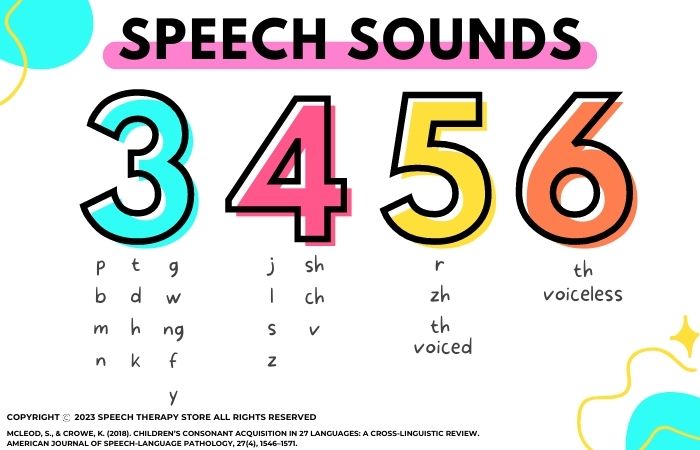
The Role of Speech-Language Pathologists
Best practice.
As a speech language pathologist (SLP), your primary focus is on implementing a best practice approach to treat articulation disorders. This approach involves prevention, identification, assessment, intervention, monitoring, and follow-up of speech sound disorders. By staying up-to-date with current research and utilizing evidence-based practices, you can ensure that your clients receive the most effective treatment possible.
Your best practice should involve:
- Collaborating with other professionals, such as teachers and special education staff, to provide comprehensive care and support
- Individualizing treatment plans that cater to the specific needs and abilities of each client
- Monitoring progress and adjusting treatment plans as needed to optimize outcomes
Treatment Plans
Developing a well-structured treatment plan is essential for how we can best address our student’s articulation goals. As an SLP, we need to create individualized treatment plans that cater to the unique needs of your clients and students.
An effective treatment plan should:
- Assess the client’s needs : Begin by conducting a thorough evaluation, noting the client’s strengths, weaknesses, and areas for improvement. This will help you identify the specific speech sounds they have difficulty with, as well as any underlying issues causing these difficulties.
- Set clear goals : Establish specific, measurable, attainable, relevant, and time-bound (SMART) goals for the client. These goals should focus on improving the problematic speech sounds and their overall articulation abilities.
- Select appropriate interventions : Choose evidence-based interventions that have been proven effective for similar clients and issues. These may include articulation drills or different levels of modeling or prompting.
- Monitor progress : Regularly assess the client’s progress using objective data collected during therapy sessions. This will help you determine if the interventions are working and make any necessary adjustments to the treatment plan.
- Communicate with caregivers : It’s important to keep caregivers informed about the client’s progress, and provide them with information and resources to support the client’s speech sound development at home.

By following best practices and designing tailored treatment plans for your clients, you can confidently and effectively address your students or clients’ articulation goals.
Depending on the standardized test results, screenings, language samples, and parent or guardian information therapy may be articulation-focused, phonological-focused, or a combination of both.
This will depend on the individual student or client and based on their testing results.
The following information focuses on an articulation focused therapy plan.
4 Types of Articulation Disorders
Speech sounds.
Articulation disorders can be characterized by difficulties in producing specific speech sounds .
Children struggling with this type of disorder may have trouble with certain consonants or vowels.
It’s essential to identify and address these issues early on, as they can impact a child’s overall speech and communication abilities.
Examples of speech sound challenges are mispronouncing any of the following sounds /p, b, t, d, k, g, f, v, m, n, w, r, l, s, z, ch, sh, th, j, h, zh, ng, y/.

- Substitution – Is when a sound is substituted with another sound. For example, when /r/ sound is substituted with the /w/ sound, such as “wed” for “red” or “wing” for “ring”.
- Lateral Lisp – A lateral lisp or lateral distortion happens when air escapes out the sides of your teeth. To help reduce a lateral lisp encourage your client or student to place the sides of their tongue against the upper side of their teeth to allow the passage of air to go down the center of the tongue instead of out the sides of the teeth. The lateral lisp sounds like a “slushy” s sound.
- Interdental List or Frontal List – An interdental lisp or frontal lisp happens when the tongue protrudes between the front teeth. This causes the s and z sound to be produced as the /th/ sound. The word ‘sleep’ is then pronounced as ‘theep’.
- Omission – Is when a sound is deleted or omitted from a word. For example, “pot” for “spot” by deleting the /s/ sound from the word.
- Addition – Is when a sound is added to a word. For example, adding the sound /p/ in “hampster” for “hamster”.

Phonological Processes
It is important to note that phonological processes refer to the patterns of speech errors observed in children that are rule-based and predictable errors.
Instead of articulation errors of individual sounds these patterns involve a systematic simplification of more than one sound, such as:
- Fronting: Substituting a sound made in the front of the mouth for a back sound. For example, when the /k/ or /g/ back sounds are substituted for the front sounds /t/ or /d/, such as “tan” for “can” or “dough” for “go”.
- Stopping: Replacing a continuous fricative sound with a stop sound . For example, replacing /s/ or /f/ with /t/ or /p/ as in “tea” for “sea” or “pan” for “fan”. For more resources on the phonological process of stopping be sure to check out our list of over 31 free stopping activities .
- Cluster Reduction: This is when a consonant cluster, which is 2 or 3 consonants occurring in a sequence in a word (sp in spot) or (st in stop) is reduced to a single consonant through deletion. For example, “pider” for “spider” or “top” for “stop”.
- Final Consonants Deletion: The phonological process of final consonant deletion is when the final consonant sound is omitted or deleted. For example, the word “road” would become “row”
However, identifying and addressing these phonological processes can help improve a child’s overall speech and articulation abilities.
*Get our complete list of phonological processes here .

Therapeutic Approaches to Articulation Goals
Auditory bombardment.
Auditory bombardment is when the speech pathologist says a list of words containing the sound(s) the student is working on. This allows the child to hear the correct pronunciation of their sound or sounds.
For example, if the student was working on the /t/ sound the therapist would read a list of words containing the /t/ sound for the child to be exposed to the correct production of that sound.
When working with young children you could also send a list of words home for different family members to read the list of words aloud to provide the child with even more auditory bombardment at home.
Isolation Level
The Isolation level is when the specific sound is produced at just the sound level. For example, if the student is working on the /b/ sound then they would practice saying /b/.
Syllable Level
The syllable level is when the specific sound is produced at just the syllable level. For example, if the student is working on the /f/ sound then they would practice the syllable “fa-” in the word “fa-ther”.
The word level is when the specific sound is produced in single words. For example, if the student is working on the /v/ sound they would practice the words “van”, “vroom”, “vest”.
Phrase Level
The phrase level is when the specific sound is produced in a phrase. For example, if the student was working on the /k/ sound they could practice the phrase, “fast cat” or “orange cat”.
Sentence Level
The sentence level is when the specific sound is produced in a sentence. For example, if the student was working on the /p/ sound they could practice the sentence, “The pancake is fluffy.” or “The pen has black ink.”
Reading Level
The reading level is when the child is given a reading passage or short story and produces their different articulation sounds while reading.
Functional Communication
A primary goal of articulation therapy is to improve functional communication, which refers to your ability to convey thoughts and ideas effectively in various daily situations.
Incorporating functional communication activities within your therapy sessions can boost your students’ confidence and motivation to apply their newly acquired speech skills in real-life contexts.
Examples of functional speech tasks include role-playing, using targeted sounds in socially relevant conversations, and practicing greetings or introductions.
Language Tasks
Incorporating expressive language tasks into your articulation therapy sessions can enhance your student’s ability to target their speech sound goals.
You may work on activities such as storytelling, sentence building, and word formations.
Utilize age-appropriate materials and engage in conversations that are meaningful and motivating for the client.
By doing so, you can actively practice targeted sounds while simultaneously addressing your student’s language therapy, vocabulary words, and overall communication.
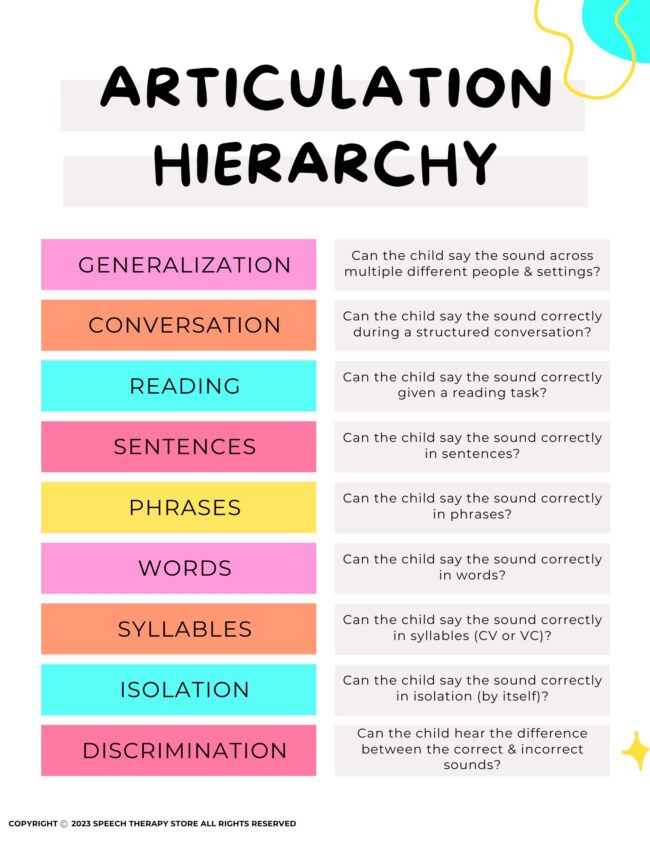
Speech Therapy Goals
School setting.
In the school setting, speech and language therapists will work closely with the student’s classroom teachers, staff, and parents to support the student’s communication needs.
In order to address the diverse requirements of students with different backgrounds and abilities, it is essential to establish clear, concise, and achievable goals.
If you are a parent it is important to collaborate with your child’s speech therapist to develop articulation goals that align with their Individualized Education Plan (IEP) or 504 Plan.
It is also important to encourage the school staff to provide consistent support for your child, such as implementing accommodations, providing specialized instruction, or offering speech therapy sessions.
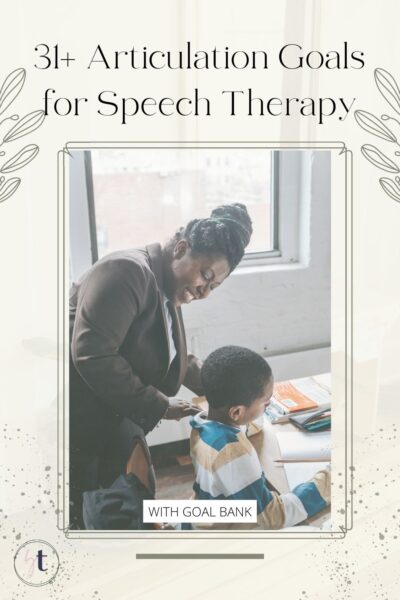
SMART Goals
Establishing clear speech therapy goals is essential for setting a roadmap for your progress in articulation therapy.
Using the SMART goal words, described below, are helpful tools to help you get started writing IEP goals.
Goals should be SMART :
- Specific – The goal should name the skill or subject area as well as the targeted result.
For example, “By the end of the quarter, given 20 words or pictures and verbal prompts, STUDENT will articulate the /vocalic r/ sound at the word level with 80% accuracy over three consecutive sessions.”
- Measurable – The goal is written in such a way that the student’s progress can be measured.
For example, “By the end of the quarter, given 20 words or pictures and verbal prompts, STUDENT will articulate the /vocalic r/ sound at the word level with 80% accuracy over three consecutive sessions .”
- Attainable – The goal is achievable and is realistic for your student or client to reach. Along with any support the student may need to achieve the goal.
For example, “By the end of the quarter, given 20 words or pictures and verbal prompts, STUDENT will articulate the /vocalic r/ sound at the word level with 80% accuracy over three consecutive sessions.”
- Relevant – The goal is individualized to that individual student and is meaningful and realistic for that specific student.
- Time-Bound – It is important that the goal include a time frame in which the student can achieve their goal.
For example, “ By the end of the quarter , given 20 words or pictures and verbal prompts, STUDENT will articulate the /vocalic r/ sound at the word level with 80% accuracy over three consecutive sessions.”
It is helpful to break down your student’s goals into smaller objectives, focusing on particular speech sounds, and tracking progress over time.

Sample Goal
For example, a goal could be “By the end of the quarter, given 10 words or pictures and carrier phrases, STUDENT will articulate the /s/ sound at the sentence level with 80% accuracy over three consecutive sessions.”
As your student achieves their short-term goals, you can work towards them mastering more complex articulation tasks, such as using their targeted speech sounds in connected speech.
Regularly reviewing your student’s goals helps to ensure their therapy sessions remain focused and tailored to their individual needs.

Selecting Sounds to Target
A goal bank is a comprehensive collection of pre-written objectives tailored to various speech and language difficulties.
- Developmental – This is when you choose which sounds to target first based on when they are developmentally developed.
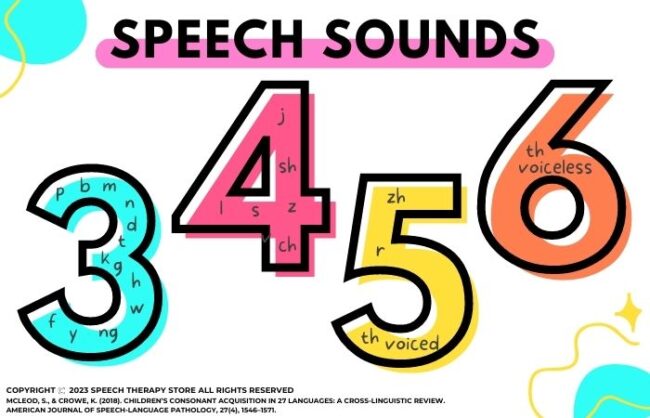
For example, if a student’s speech sound disorder includes both the /r/ and /b/ sound you would begin with the /b/ sound first because it is developmentally developed by the age 2 or early while the /r/ sound is developed around age 6.

- Complexity – This is when you focus on the more difficult or complex phonological elements that are not yet part of a child’s communication skills yet to help encourage a cascading effect that will hopefully generalize across sounds (Gierut, 2007; Storkel, 2018).
- Dynamic Systems – This strategy focuses on teaching and learning simple phonemes and avoiding introducing new contrasts into the child’s phonological systems to help the child acquire their target sounds (Rvachew & Bernhardt, 2010).
- Systemic – This strategy focuses on the function of the sound within the child’s phonological system to help make the biggest impact of reorganized their phonological system with the least amount of intervention. A target sound is then chosen based on it be maximally distinct from the child’s errors in place, voice, and manner (Williams, 2003b).
- Client Specific – This is when you select the target sounds based on the relevance to the child, such as a phoneme in their name or their stimulability for certain sounds.
- Intelligibility – For this strategy it depends on the child’s errors and picking the sounds or error patterns that would have the biggest overall impact based on their intelligibilty level.
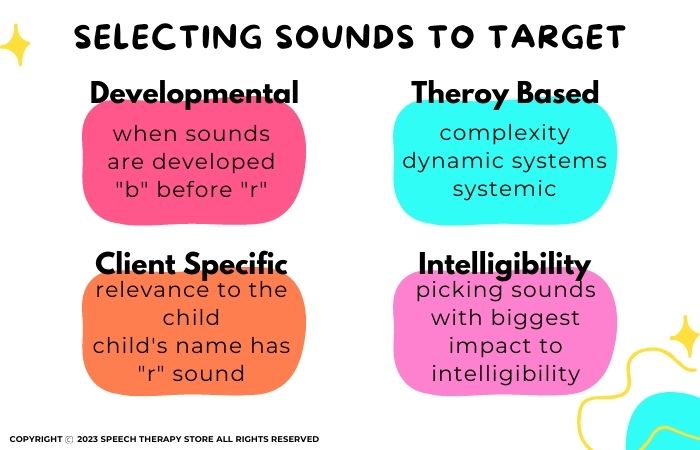
Articulation Goals
Long term goal bank.
Utilizing a goal bank allows you to easily reference and customize goals for your child’s ability and specific needs, saving time and ensuring the objectives are achievable and relevant.
For example, you may find goals targeting the production of specific sounds in the initial, medial, or final positions in words, phrases, or sentences. (see below)
Goal banks can be an invaluable resource when creating plans for early intervention, school settings, or home-based therapy, as they provide a clear framework for tracking progress and ensuring consistency in treatment.
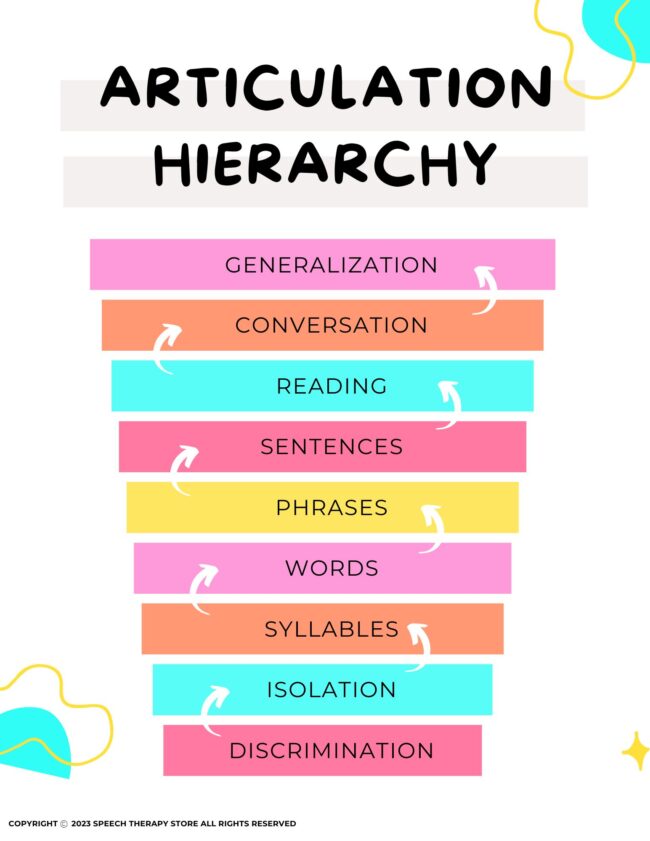
Auditory Discrimination
Given 10 words, STUDENT will recognize the differences between the same or different words with 80% accuracy in 4 out of 5 opportunities.
Given a word broken down into isolated sounds, STUDENT will combine the isolated sounds together to form words with 80% accuracy in 4 out of 5 opportunities.
Given 20 sounds and a verbal prompt or model , STUDENT will articulate the sound(s) of / / at the isolation level with 80% accuracy in 4 out of 5 opportunities.
Given 20 sounds, STUDENT will independently articulate the sound(s) of / / at the isolation level with 80% accuracy in 4 out of 5 opportunities.
Given 20 words or pictures and a verbal prompt or model , STUDENT will articulate the sound(s) of / / at the syllable level with 80% accuracy in 4 out of 5 opportunities.
Given 20 words or pictures, STUDENT will independently articulate the sound(s) of / / at the syllable level with 80% accuracy in 4 out of 5 opportunities.
Given 20 words or pictures and a verbal prompt or model , STUDENT will articulate the sound(s) of / / in all positions of words at the word level with 80% accuracy in 4 out of 5 opportunities.
Given 20 words or pictures, STUDENT will independently articulate the sound(s) of / / in all positions of words at the word level with 80% accuracy in 4 out of 5 opportunities.
Given 20 words or pictures and a verbal prompt or model , STUDENT will articulate the sound(s) of / / in all positions of words at the phrase level with 80% accuracy in 4 out of 5 opportunities.
Given 20 words or pictures, STUDENT will independently articulate the sound(s) of / / in all positions of words at the phrase level with 80% accuracy in 4 out of 5 opportunities.
Given 20 words or pictures and a verbal prompt or model , STUDENT will articulate the sound(s) of / / in all positions of words at the sentence level with 80% accuracy in 4 out of 5 opportunities.
Given 20 words or pictures, STUDENT will independently articulate the sound(s) of / / in all positions of words at the sentence level with 80% accuracy in 4 out of 5 opportunities.
Given 20 words or pictures and a verbal prompt or model , STUDENT will articulate the sound(s) of / / in all positions of words at the reading level with 80% accuracy in 4 out of 5 opportunities.
Given a reading passage, STUDENT will independently articulate the sound(s) of / / in all positions of words at the reading level with 80% accuracy in 4 out of 5 opportunities.
Conversational Level
Given a reading passage, STUDENT will independently retell the story by articulating the sound(s) of / / in all positions of words at the conversational level with 80% accuracy in 4 out of 5 opportunities.
Given a reading passage, STUDENT will independently answer WH questions by articulating the sound(s) of / / in all positions of words at the conversational level with 80% accuracy in 4 out of 5 opportunities.
Given a structured activity, STUDENT will independently articulate the sound(s) of / / in all positions of words at the conversational level with 80% accuracy in 4 out of 5 opportunities.
Given a conversational topic, STUDENT will independently articulate the sound(s) of / / in all positions of words at the conversational level with 80% accuracy in 4 out of 5 opportunities.
Substitutions
Given 20 words or pictures and a verbal prompt or model , STUDENT will decrease the substitution of the / / sound for the / / sound in all positions of words at the word level with 80% accuracy in 4 out of 5 opportunities.
Given 20 words or pictures and a verbal prompt or model , STUDENT will decrease the substitution of the / / sound in all positions of words at the word level with 80% accuracy in 4 out of 5 opportunities.
Given 20 words or pictures, STUDENT will independently decrease the substitution of the / / sound for the / / sound in all positions of words at the word level with 80% accuracy in 4 out of 5 opportunities.
Given 20 words or pictures, STUDENT will independently decrease the substitution of the / / sound in all positions of words at the word level with 80% accuracy in 4 out of 5 opportunities.
Distortions
Given 20 words or pictures and a verbal prompt or model , STUDENT will decrease distortions of the / / sound in all positions of words at the word level with 80% accuracy in 4 out of 5 opportunities.
Given 20 words or pictures, STUDENT will independently decrease distortions of the / / sound in all positions of words at the word level with 80% accuracy in 4 out of 5 opportunities.
Given 20 words or pictures and a verbal prompt or model , STUDENT will decrease omissions of the / / sound in all positions of words at the word level with 80% accuracy in 4 out of 5 opportunities.
Given 20 words or pictures, STUDENT will independently decrease omissions of the / / sound in all positions of words at the word level with 80% accuracy in 4 out of 5 opportunities.
Given 20 words or pictures and a verbal prompt or model , STUDENT will decrease additions of the / / sound in words (such as, ) at the word level with 80% accuracy in 4 out of 5 opportunities.
Given 20 words or pictures, STUDENT will independently decrease additions of the / / sound in words (such as, ) at the word level with 80% accuracy in 4 out of 5 opportunities.
Self-Monitoring
Given a conversational topic, STUDENT will self-monitor articulation of the sound(s) of / / in all positions of words at the reading level with 80% accuracy in 4 out of 5 opportunities.
Given a conversational topic, STUDENT will self-monitor articulation of the sound(s) of / / in all positions of words at the conversational level with 80% accuracy in 4 out of 5 opportunities.
Generalization
Given a classroom discourse, STUDENT will generalize articulation of the sound(s) of / / in all positions of words at the conversational level outside of the therapy setting with 80% accuracy in 4 out of 5 opportunities.
Given a community outing, STUDENT will generalize articulation of the sound(s) of / / in all positions of words at the conversational level outside of the therapy setting with 80% accuracy in 4 out of 5 opportunities.
SEE ALSO: 75+ Receptive Language Goals (Goal Bank)
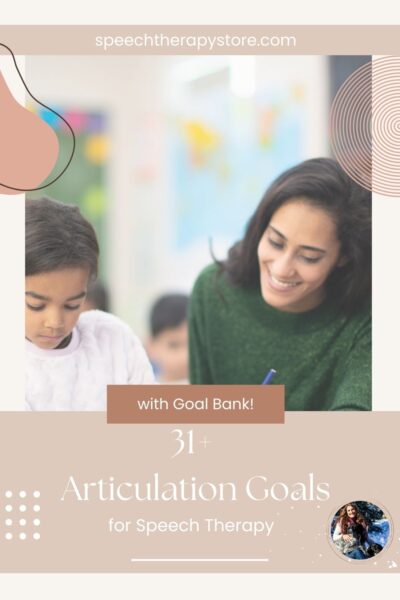
Speech Therapy Goals – Short-Term Goals Objectives
I know every district has different ways it requires their objectives to be written, but typically my district wanted us to reduce either the number required or the percentage of achievement.
Here are a few examples to help get you started.
If we take a sample goal:
“Given 20 words or pictures, STUDENT will independently articulate the /r/ sound in all positions of words at the sentence level with 80% accuracy over 3 out of 4 consecutive sessions.”
- Reduced Number or Trials Required: The objective might be, “ Given 10 words or pictures , STUDENT will independently articulate the /r/ sound in all positions of words at the sentence level with 80% accuracy over 3 out of 4 consecutive sessions.”
- Reduce Percentage of Accuracy: The objective might be, “Given 20 words or pictures, STUDENT will independently articulate the /r/ sound in all positions of words at the sentence level with 70% accuracy over 3 out of 4 consecutive sessions.”
- Reduce Difficulty of Task: The objective might be, “Given 20 words or pictures and a verbal prompt or model , STUDENT will articulate the /r/ sound in the initial position of words at the sentence level with 80% accuracy over 3 out of 4 consecutive sessions.”
- Reduce Number of Sessions of Accuracy: The objective might be, “Given 20 words or pictures, STUDENT will independently articulate the /r/ sound in all positions of words at the sentence level with 80% accuracy over 2 out of 4 consecutive sessions.”
(Meaning out of 4 therapy sessions in a row 2 out of the 4 or 50% of the time they met their goal in order to mark that goal mastered.)
As the speech pathologist, you are the specialist and you know your students and child’s ability best though, so just take the goals and simplify them into achievable steps for your child’s specific articulation weaknesses.
Methods for Achieving Articulation Goals
Visual prompts.
Visual prompts or visual cues are an effective way to help you improve your student’s articulation skills.
These prompts may include a picture cue, picture card illustrations, or diagrams that represent the target sound or word.
You can use common objects like a mirror to help your student or client to observe their mouth movements while practicing their sounds.
When you incorporate visual aids into your practice it can make therapy more engaging and help your students master their articulation goals faster.
Another great idea for using visual prompts is to create flashcards with images representing the target sounds . This can be a fun and interactive way for your students to practice their articulation skills.
You can also use apps or software designed specifically for speech therapy, which often include visual prompts as part of their features.
Remember to practice regularly and consistently for the best results.
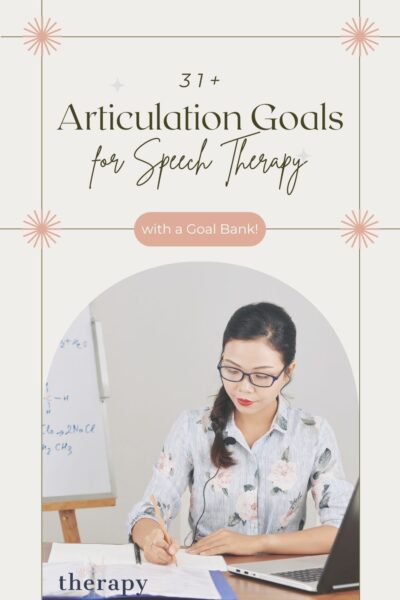
Verbal Prompts
Verbal prompts are another essential method for achieving your articulation goals.
These prompts may involve spoken instructions, cues, or examples that demonstrate the proper production of a sound.
When providing your students with a verbal prompt or verbal cue, you can focus on specific aspects of the sounds, such as their placement, manner, or voicing.
For example, to effectively use verbal prompts, you can have your student or client try repeating target sounds or words after you or a recorded model. This will help your students become more familiar with the correct production of the sound.
Additionally, try breaking down complex sounds into smaller components, focusing on perfecting each part before attempting the full sound. This step-by-step approach can be helpful in improving your students’ articulation skills.
Remember that consistent practice is crucial for progress. Incorporating both visual and verbal prompts into your routine will help your students reach their articulation goals more effectively.
SEE ALSO: 432+ Free Measurable IEP Goals and Objectives Bank
Measuring progress towards articulation goals, data collections.
In order to know if your student is making progress it is essential that you as the therapist are measuring your student’s progress through data collection .

It is by consistently tracking your child or student’s progress that you can make informed decisions about therapy and more effectively communicate with other professionals or parents.
To ensure that you have the right measurable goals , focus on creating goals that are objectively measurable and specific to the individual’s needs. (see goals above)
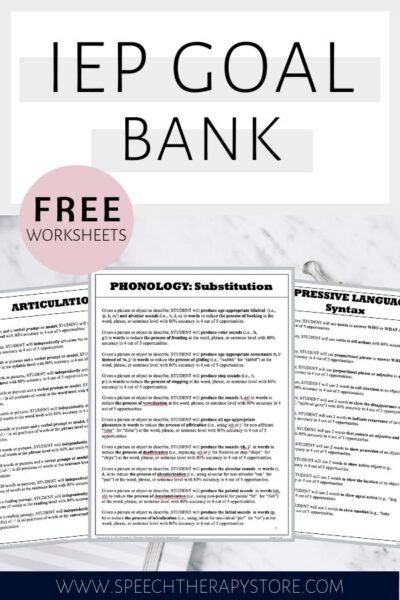
Rating Scales
Another useful tool to gauge progress in articulation goals is by using rating scales.
Rating scales can help you monitor the individual’s self-awareness of their speech production and provide you with qualitative data points to supplement the quantitative data collected.
To effectively use rating scales , ensure that they are tailored to the target skills and can be easily understood by the individual.
This will enable them to self-monitor their speech accuracy and provide feedback for improvement.
Google Forms
Using Google Forms is another tool that provides a systematic way to track and monitor an individual’s progress toward their articulation goals.
By using Google Forms, you can record speech data, set measurable goals, and track progress in a single, organized system.
Additionally, using a Google Form allows for you to easily collaborate with other professionals and helps you evaluate the effectiveness of the therapy provided.
Google Forms How to Video
Watch this short video showing you exactly how to implement using Google Forms for your data collection.
Measurable Goals
Are you also looking for other speech therapy goals? If so, be sure to check out my master list of over 432 IEP goals here (including fluency goals, receptive language goals, and phonology goals just to name a few!).

SEE ALSO: Free Articulation Games for Speech Therapy
Frequently asked questions, what are common short-term goals for articulation.
Short-term goals for articulation typically involve working on specific speech sounds that the child is struggling with.
These goals might include mastering the production of a specific sound in isolation, improving accuracy in syllables, and increasing clarity in words and phrases. (see goal bank above)
How can articulation goals be adapted for young children aged 4 or 5?
For young children aged 4 or 5, articulation goals should be appropriate for their developmental level and learning style.
Goals may include working on producing age-appropriate sounds, understanding and using vocabulary, or participating in simple conversational exchanges.
Therapy activities should be engaging, interactive, and use multiple modes of learning to help young children progress toward their goals.
What is a typical IEP articulation goal?
A typical Individualized Education Program (IEP) articulation goal should be specific, measurable, achievable, relevant, and time-bound (SMART).
The goal should outline the targeted skill and the criteria for success, and it should be tailored to the individual needs of the child.
Please see the goal bank outlined above for specific examples of functional articulation IEP goals.
Can you provide examples of SMART goals in speech therapy?
Here are two examples of SMART goals in speech therapy:
- “By the end of the six-week period, the child will accurately produce the /s/ sound in 8 out of 10 word-initial positions during structured activities.”
- “Over the next three months, the child will increase their speech intelligibility in conversation from 60% to 80% as measured by the speech-language pathologist during therapy sessions.”
These goals are specific, measurable, achievable, relevant, and time-bound, which helps track progress and adjust treatment plans as needed.
How are goals set to improve speech intelligibility?
Goals to improve speech intelligibility often focus on addressing the production of specific sounds, reducing compensatory patterns, and increasing the clarity of words and phrases.
Speech-language pathologists typically use standardized assessments, observation, and input from caregivers and teachers to identify areas in need of improvement.
Goals should be tailored to the child’s needs and progress, considering the developmental progression of speech skills.
What are effective strategies for carryover in articulation goals?
Here are a few great ideas of effective strategies for the carryover of articulation goals into various settings include:
- Practicing targeted speech sounds and skills in different contexts, such as home, school, and community environments.
- Collaborating with teachers, caregivers, and other professionals to teach, reinforce, and generalize learned skills.
- Incorporating functional activities and natural opportunities for practice, such as conversations, storytelling, or playtime.
- Providing regular feedback, encouragement, and reminders to facilitate the child’s use of targeted skills in daily communication.
I hope you found this list of articulation goals helpful!
Feel free to spend less time creating your own articulation goals and copy and paste the goals above.
If you’re a family member wondering if your child has an articulation disorder then be sure to reach out to a local Speech-Language Pathologist to receive more formal testing.
Want Even More Articulation Therapy Ideas?
- 21 Best Reinforcement Games for Speech Therapy
- 261+ Free Ideas for Digital Therapy
- 917+ Best Free Boom Cards for Speech Therapy
- 11 Free Articulation Games for Speech Therapy
- Best Free Interactive PDF for Speech Therapy All-in-One
Want the Best of the Bests?
Be sure to check out our most popular posts below!
- 21 Best Reinforcement Games for Speech Therapy / Teletherapy
- Best IEP Resources
- 71+ Free Social Problem-Solving Scenarios
- 430+ Free Multisyllabic Words List Activity Bundle
- 432+ Free Measurable IEP Goals and Objectives Bank
- 279+ Free Speech Therapy Digital Materials
- 179+ Free Speech Therapy Wh-Questions Printable
DeVeney, S. L., Cabbage, K., & Mourey, T. (2020) . Target Selection Considerations for Speech Sound Disorder Intervention in Schools. Perspectives of the ASHA Special Interest Groups, 5(6), 1722–1734.
Krueger, B. I. (2019) . Eligibility and Speech Sound Disorders: Assessment of Social Impact. Perspectives of the ASHA Special Interest Groups, 4(1), 85–90.
McLeod, S., & Crowe, K. (2018) . Children’s Consonant Acquisition in 27 Languages: A Cross-Linguistic Review. American Journal of Speech-Language Pathology, 27(4), 1546–1571.
Different By Design Learning
with Shawna Wingert
Speech Therapy Goals: Examples for Success In All Categories
This step by step guide has everything you need for appropriate and successful speech therapy goals. It includes sample goals for expressive and receptive language, articulation, fluency, and more.
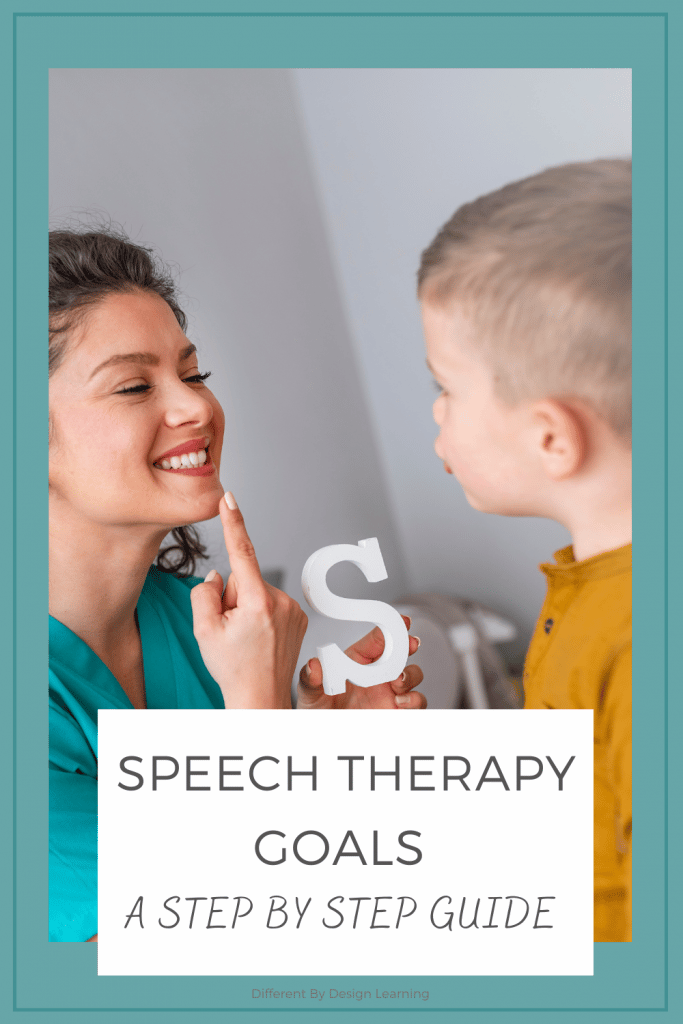
Speech Therapy: Getting Started
Table Of Contents
Before a goal is created, it is essential to determine what specific area of communication is in need of support. A speech therapist or speech language pathologist (SLP) will traditionally begin with a formal speech assessment.
The therapist will use a variety of assessment tools to screen for speech and language disorders.

How Do Speech Therapists Create Goals?
Based on the results of the initial assessments, the SLP will create goals based on the areas of communication that are in need of support.
Because speech and language is complex, no one goal or suggested treatment plan is the same. Goals are designed to be specific to the individual and are created to support speech development over stated time frames.

What Are The Different Types Of Speech Therapy Goals
Speech therapy goals tend to fall into any one of the following categories:
- Expressive Language
- Receptive Language
- Articulation
- Social Pragmatic

You’ll find examples of successful goals in each category below.
Expressive Language Goals In Speech Therapy
Expressive language refers to how your child uses speech to express themselves. Expressive language difficulties may present as poor eye contact, struggles when interacting with other children and a limited number of spoken words.
Here are some examples of expressive language goals:
- Learner will imitate 1-2 word utterances 10x times per session for 3 sessions.
- Learner will imitate 10 different two word phrases to request, protest, comment, or get attention over 3 consecutive sessions.
- Learner will use 2-3 word phrases 80% of the time to participate in play and shared book reading across 3 data collections.
- Learner can produce a complete, relevant sentence about a given stimuli in 80% of the time across 3 data collections.
- Learner can produce complete, grammatical sentences of 4+ words within structured activities in 80% of opportunities across 5 data collections.
- Learner will independently label age-appropriate objects with 80% accuracy across 3 separate data collections.
- Learner will name a described object with 80% accuracy across 3 separate data collections.
- Learner will answer what/where/when/who/why questions about pictures or play with 80% accuracy across 3 data collections.
- Learner answers how questions accurately to include multiple steps (for example: how do you brush your teeth? how do you feed your dog?) with 80% accuracy across 3 data collections.
- Learner can retell stories to include 80% of relevant details across 3 data collections.
Receptive Language Goals
Receptive language refers to a child’s ability to understand language. Receptive language difficulties often present similarly to expressive language difficulties, including poor eye contact and difficulty interacting with other children.
These are examples of receptive language goals:
- Learner will identify age-appropriate objects/pictures from a field of three with 80% accuracy for 3 data collections.
- Learner will identify 10 items from each category: body parts, clothing, personal care items, home items, school items, with 80% accuracy per category for 3 data collections.
- Learner will identify an action picture out of field of 3-4 in 80% of opportunities for 3 data collections.
- Learner will match objects or pictures to category when given 3-4 categories with 80% accuracy for 3 data collections.
- Learner will identify a picture that doesn’t belong in a category with 80% accuracy for 3 data collections.
- (client) will demonstrate comprehension of negation in sentences with 80% accuracy for 3 data collections.
- Learner will follow single step directions when paired with a gesture cue in 80% of opportunities for 3 data collections.
- Learner will follow single step directions without the support of gesture cues within familiar routines in 80% of opportunities for 3 data collections.
- Learner will follow 2-step directions when paired with a gesture cue in 80% of opportunities for 3 data collections.
- Learner will follow 2-step directions without the support of gesture cues within familiar routines in 80% of opportunities for 3 data collections.
Examples Of Articulation Goals In Speech Therapy
Articulation in speech therapy refers to a child’s ability to make sounds. This includes all elements involved in the production of sounds – the coordinated movements of the lips, tongue, teeth, palate, and respiratory system.
Here are examples of articulation goals in speech therapy:
- Learner will produce [desired sound] in the initial position in words/phrases/sentences with accurately in 80% of opportunities for 3 data collections.
- Learner will produce [desired sound] in the medial position in words/phrases/sentences accurately in 80% of opportunities for 3 data collections.
- Learner will produce [desired sound] in the final position in words/phrases/sentences accurately in 80% of opportunities for 3 data collections.
- Learner will produce single words with 80% intelligibility during therapy session for 3 data collections.
- Learner will produce sentences with 80% intelligibility during therapy session for 3 data collections.
- Learner will imitate vowel sounds in 80% of opportunities for 3 data collections.
- Learner will imitate consonants /p, b, m, t, d, n, k, g, h, w/ as single sounds in 80% of opportunities for 3 data collections.
- Learner will imitate /p, b, m, t, d, n, k, g, h, w/ in reduplicated CVCV combinations (dada, moo moo, etc) in 80% of opportunities for 3 data collections.
- Learner will imitate /p, b, m, t, d, n, k, g, h, w/ in variegated CVCV combinations (hippo, bunny, etc) in 80% of opportunities for 3 data collections.
- Learner will imitate /p, b, m, t, d, n, k, g, h, w/ in VC combinations (up, in) in 80% of opportunities for 3 data collections.
Fluency Goals
Fluency is used in Speech Pathology to describe sounds and words and phrases when joined together. This is essentially a child’s ability to speak easily and smoothly.
Fluency goals in speech therapy include:
- Learner will demonstrate appropriate skills for communication effectiveness in conversation (eye contact, appropriate rate of speech, appropriate vocal volume, appropriate listening/waiting) during 1 conversation for 3 data collections.
- Learner will identify fluency-enhancing strategies including slow speech and thinking of words before speaking) for in 80% of opportunities for 3 data collections.
- Learner will introduce himself to another person using appropriate eye contact and skills for effective communication independently at the beginning of 1 conversation for 5 data collections.
- Learner will identify appropriate modifications to speech production (fast/slow, bumpy/smooth, loud/quiet) with 80% accuracy for 3 data collections.
- Learner will share information about stuttering and stuttering treatment techniques with a peer or adult with no more than minimal prompting during 1 conversation across 3 data sessions.
Social Pragmatic Language Goals In Speech Therapy
A child’s pragmatic language involves the language skills that we use in everyday interactions with others. Conversational skills, non-verbal communication skills, understanding non-literal language, and interpreting and expressing emotions are all elements of social pragmatic language.
Typical social pragmatic goals include:
- Learn will demonstrate the ability to label emotions/feelings in communication partners or in pictures with 80% accuracy for 3 data collections.
- Learner will use words to express their feelings independently for 80% of opportunities across 3 data sessions.
- Learner will state a logical answer to what another person might be feeling based about a social situation with 80% accuracy for 3 data collections.
- Learner will identify a problem in a social setting/picture scene with 80% accuracy for 3 data collections.
- Learner will make inferences after hearing part of a story/social situation with 80% accuracy for 3 data collections.
- Learner will participate in turn-taking with the therapist for 5 turns per opportunity with a minimum of 5 opportunities across 3 data collections.
- Learner will identify signs of listener boredom or disinterest independently with 80% accuracy for 3 data collections.
Related Post : Social Pragmatic Goals In Speech Therapy: Everything You Need To Know
Examples Of Speech Therapy Goals In Practice
You can learn more about how these goals are formed and used in speech therapy in this video.
More Speech Therapy Resources
Speech Therapy For An Older Child
Speech Therapy At Home
Fig urative Language Activities
Allusion Sentence Examples And Activities

Thanks For Sharing!
Shawna Wingert is a former training and development professional turned education specialist, and has homeschooled her two children for the last ten years.Shawna has written four books about homeschooling unique learners and has been featured in homeschooling discussions on Today.com, The Mighty, Simple Homeschool, My Little Poppies and Raising Lifelong Leaners.
You can find her online here at DifferentByDesignLearning.com.
Similar Posts
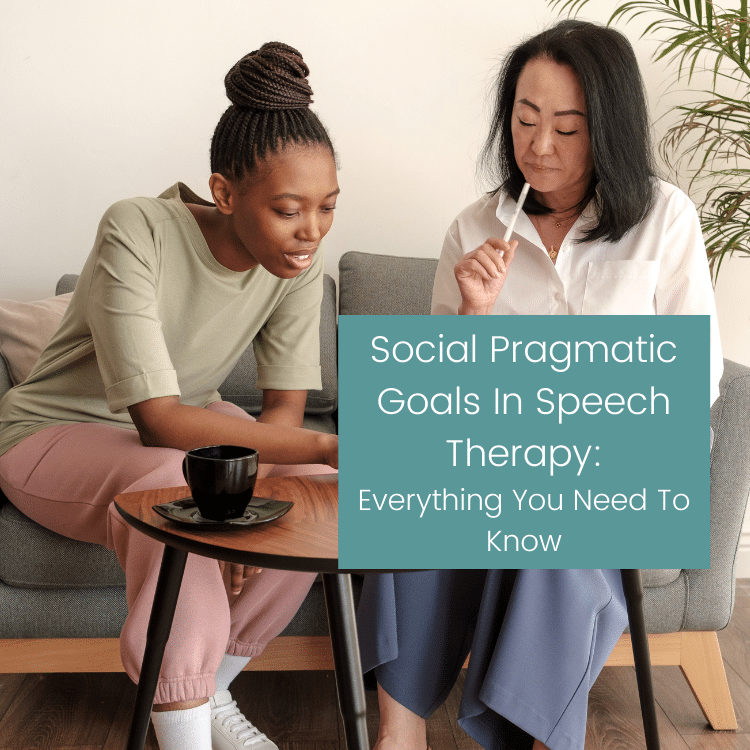
Social Pragmatic Goals In Speech Therapy: Everything You Need To Know
This overview introduces social pragmatic goals in speech therapy as well as examples of how these goals contribute to your child’s increasing social ability. When my child was first diagnosed with social pragmatic language disorder, I was not surprised. Part of my college education included a minor in communication disorders, so I was familiar with…

31 Strategies And Tips To Help A Struggling Reader
I realize that it was not any one thing that helped my struggling reader. It was all the things. This is everything I want you to know about homeschooling a struggling reader. My youngest son is reading. He is really, truly reading. His reading skills have improved dramatically over the past year. He can play…

14 Important Ways To Help A Struggling Anxious Reader
My son is twelve years old. I clearly remember him in his sweet little preschool classroom at four years old. He loved the arts, the crafts, the playtime and the other children. But the letters, the writing his name, the sounds? Not so much. Even back then, it was obvious that reading was not his…

The Best Advice For Helping A Struggling Learner
After almost a decade of teaching my children with learning differences, this is, by far, my best advice for helping a struggling learner. “I am not sure he is ever going to learn to read.” I said this to my husband, over coffee and through tears one morning about a year ago. My then twelve…

A Homeschool Reading Program For Older Struggling Readers
My son read his own birthday cards last week. I know this may seem like a small thing, but let me explain. It was his 15th birthday, and this was the very first year he has been able to do it on his own. If you are a parent of an older struggling reader, you…

How An IEP Can Help You Homeschool Your Unique Learner
An IEP can be a wonderful tool to help you homeschool a unique learner. Here are the benefits we’ve seen from having an IEP as we continue to homeschool. There was a time when I was really struggling to balance all the things. My youngest son was 10 at the time. He needed constant care…
Leave a Reply Cancel reply
Your email address will not be published. Required fields are marked *
Make S.M.A.R.T. Speech Therapy Goals
Source: ollibird.com
If you’re the parent of a child in speech therapy, you might sometimes feel like you’re up against a wall of resistance. Maybe there are unknowns when it comes to your child’s speech disorder, and your child might be frustrated with the speech therapy routine or homework. As adults it is easier to see the big picture – that improved communication skills are so valuable for the future and worth the effort. For kids, however, speech therapy can be tiring, hard work, and sometimes even a source of insecurity among peers. Help your son or daughter set and reach speech therapy goals using a traditional business model – S.M.A.R.T. – and you’ll find that speech therapy might just get a little easier, and the goals a little closer.
What Is S.M.A.R.T Goal Planning?
Have you ever heard of the phrase if you fail to plan, you plan to fail? The S.M.A.R.T. goal planning model helps you make sure that you are planning for success. While the model is often used in business planning, it is a very beneficial guideline for kids and has been successfully used by many special education teachers and SLPs. You can help your child apply this approach for speech therapy, or even academic homework, too.
Smart Speech Therapy Goals
S – Specific – Work with your child’s SLP to establish very specific goals. The general goal of “improve articulation” can seem overwhelming and unobtainable for kids. The more specific the goal the greater the likelihood that your child will feel empowered and capable. If you’re stuck on how to make the goals specific, work with your child to answer the basic questions of:
- Who? (child, child w/parent, or child/SLP combo)
- What? (specific goal)
- When? (days/times during week)
- Where? (at SLP’s office, in home, on the go)
- How? (any extra tools/supplies needed)
M – Measurable – Look for measurable ways your child can work on speech therapy goals. This might mean playing 2 vocabulary games, completing 3 worksheets, or attending a month of therapy appointments.
A – Achievable – Some speech disorders are more difficult to treat than others and the goals for your child should be achievable based on his or her specific challenges. Make sure your child has the resources needed to make the goals achievable, both in time and in tangible supplies. Help your child navigate any obstacles that might otherwise prevent him from tackling the goal.
R – Realistic – Make sure that the steps needed to reach the goal are healthy, logical, and in line with the overall objectives of the SLP. A goal of “no stuttering by end of summer” for a child who is just beginning speech therapy for stuttering is not only unlikely to happen so swiftly (if at all), but it can create an unhealthy self-image for the child. A better goal would be “improve pacing of speech during class presentations” because it is specific and uses positive language .
T – Timely – Make sure to incorporate time-related markers for the goals. Time is tangible, measurable, and specific. Some examples of these might be:
- Work on speech therapy flashcards for 15 minutes 4 days a week
- Improve articulation when reading the /r/ sounds book in 3 weeks
- Attend speech therapy group sessions at least 2 times this month
- Read aloud for 10 minutes each day to Mom or Dad
When you work with your child to create S.M.A.R.T. goals, you are teaching him or her how to use an approach to many of life’s challenges , not just speech therapy. By partnering with your child’s SLP you can also make sure that your child is receiving consistent instruction and expectations. Use motivation charts to help keep track of the goals to which your child is working. Remember – you can already see the big picture, but your child needs you to begin with a simple sketch of what the steps look like along the way.

Copyright © 2024 SpeechPathology.com - All Rights Reserved
Back to Basics: Goal Writing for School-based SLPs
Marva mount, ma, ccc-slp.
- Back to Basics
- School Intervention and Collaboration in Schools
To earn CEUs for this article, become a member.
unlimit ed ceu access | $129/year
Editor’s Note: The text is a transcript of the course, Back to Basics: Goal Writing for School-based SLPs, presented by Marva Mount, MA, CCC-SLP.
Learning Objectives
After this course, readers will be able to:
- Explain what SMART goals is and why they are important.
- Describe the process for writing measurable and educationally pertinent goals.
- List 2-3 examples of SMART goals.
Introduction
In this course, I am going to discuss goal writing. You probably won’t hear anything that you haven’t already heard. My hope is that it will help us regroup and do what’s best for our students and their families by writing appropriate goals and objectives for them.
IDEA Requirements
First, I want to quickly review the IDEA requirements for our Present Levels of Academic Achievement and Functional Performance. There are a few different acronyms for that: PLAP, PLAAP, PLAAFP. Basically, it's the part of the IEP where we review the present levels for our students. In order to get into goal-writing, I want to make sure everybody understands how we get to the goal-writing piece and what information needs to be included in the IEP.
Factors to consider when developing the present levels (PLAAFP) include the student’s academic functioning, their critical need, current measurable and observable data, data sources, any conditions that surround their measurable performance (e.g., modifications or accommodations), and enrolled grade-level content standards.
As school-based SLPs, we need to make sure that we are aligning goals with the academic standards. Many states use the Common Core State Standards and some states have written their own. Whatever the standards are for your state, make sure you understand what is contained within those standards in the areas that apply to speech and language.
Also, the IDEA requirement for PPCD (i.e., Early Childhood Education and Pre-K) focuses on how the student's disability affects their participation in appropriate activities. Because those children are around ages 3-5, they don't have academic standards. However, they do have standards for appropriate activities for their age level. In grades K-12, we want to know how the student's disability affects their involvement and progress in the general education curriculum.
34 Code of Federal Regulation §300.320 - Definition of Individual Education Program
Regarding the codes in the Federal Regulation's definition of Individual Education Program, one of the statements speaks specifically to PLAAFP as well as the child's involvement in general education. I wanted to bring that to your attention in case you want to take a look at that.
Present Levels of Academic Achievement and Functional Performance
Present Levels of Academic and Functional Performance (PLAAFP) is important because it provides the student's competencies. It identifies areas of critical need. It identifies what facilitates learning for that student, as well as what inhibits learning. It determines appropriate measure of growth, and provides the information needed to design specialized instruction for the students. This specialized instruction is the goal-writing section of the IEP that we will discuss in this course.
If you don't write a good PLAAFP, then the student will not have strong measurable goals. The PLAAFP is important because it covers specific types of academic information and skills the child has mastered. It also covers other areas that are not academic, such as social communication and activities of daily living for students who may be in more of a self-contained special education classroom.
For children who have disabilities in addition to speech, we also need to look at the curriculum being used with students in those classes so that our goals align and mirror what is happening for that child academically.
In the PLAAFP statement, we are describing the what , how , and how much the student is learning in specific areas. The statement also includes adequate information about the student in order to design the specialized instruction, which are the goals we're going to discuss.
Figure 1 provides some perspective. The present levels look at where the student is currently functioning. Then we're going to look 12 months out for measurable, annual goals to make sure they're obtainable. We never want to write a goal that is continually carried over for a student from year to year. If we are doing that, then there's something wrong with our connection between what the present level of the child is and what their goals and objectives might be. Always think in terms of what the student can accomplish in 12 months. Sometimes that's easy to determine, sometimes it’s not. Sometimes, with some of our lower-functioning students, we have to take an educated, professional guess in terms of how quickly they'll progress.
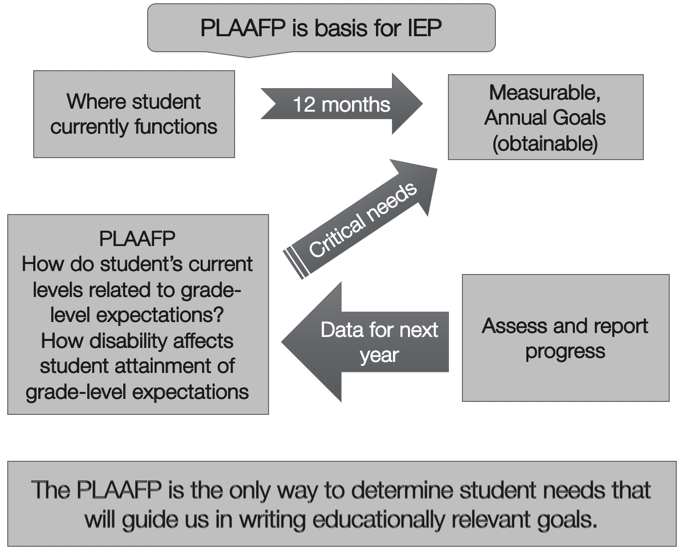
Figure 1. PLAAFP is basis for IEP.
The point of Figure 1 is to serve as a reminder that when looking at the critical needs of a student, we are aiming for progression. However, we don’t want to “over-aim” in terms of what we expect the student to do within a year. Sometimes we write goals that are a bit complicated and we have high expectations for a lot of progress. In those instances, when we meet with the IEP committee, we can always adjust those goals. We can make them more difficult, or we can make them less difficult, depending on how the student performed.
The present level is the only way to determine the student’s needs that will guide us in writing our educationally relevant goals. I like to have this chart in front of me when I start writing a student’s goals and objectives so I remember all of the factors that need to be considered in goal writing.
The PLAAFP must be the basis for writing educationally-relevant goals for the child's educational year because that leads us to next steps in the process of goal and objective writing. If we fail in writing the present levels, then the goals and objectives may not be appropriate for the student. The goals may be too high-level or too low-level. We may have expected a lot more than what we're actually going to see in that annual year. Present levels shows the child's academic strengths, academic challenges, what is facilitating the child's learning, what inhibits the child's learning, what their current levels of functioning are, as well as data that is specific, factual, and operational.
It is within the present levels, that we provide data from some evaluations. If the child is new on our caseload, we will be giving information and factual data on how the child performed on the educational assessment or speech and language assessment, so that we know at what level the child is currently functioning. If the child has been on our caseload for a while then present levels will contain all of the data that has been collected over the year during each therapy session. We are using that data to complete the functional levels of performance.
The PLAAFP Process
Figure 2 is a PLAAFP process sample. I remember this being tricky when I first started doing them because I wasn't sure how to word things, and I wasn't sure what components needed to be addressed.
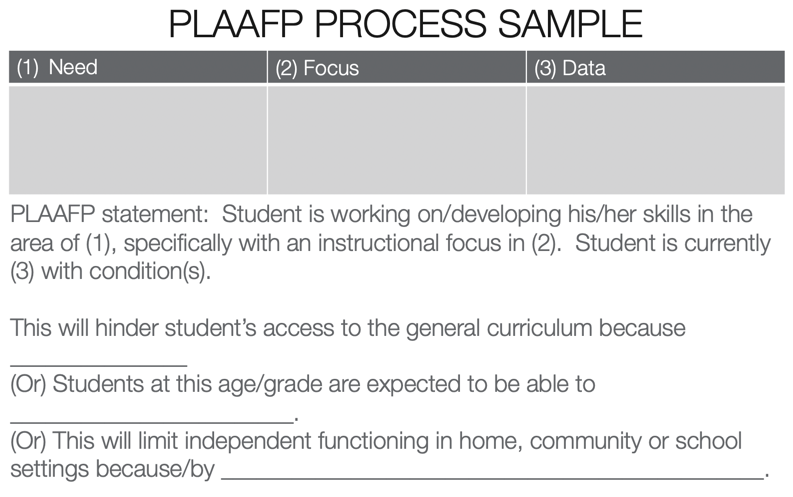
Figure 2. PLAAFP process sample.
Examples of present level statements include:
“Student is working on developing his or her skills in the area of ______________ (this could be fluency, articulation, language, etc.) with an instructional focus in _____________________. Student is currently ______________________(evaluation data, therapy data) with condition.
Those are the three primary areas for the present levels that need to be included in order to write goals and objectives for the student.
If we think of the PLAAFP as the story of a student, then we are writing an educational story for them in this section. That can help with organizing and providing appropriate information so that when the parent or other team members read those present levels, they have a complete picture of the student and everyone is on the same page.
As an aside, some of the online special education paperwork systems don’t allow for much information in the PLAAFP section. This is unfortunate because it is the portion of the IEP that drives the entire process. If you are working with online paperwork systems that don’t allow for much information (i.e., character limits) then just do your best. Sometimes I will add an addendum. If I know the parents are very concerned, I may put some additional information in another section in order to give a complete picture of what the student’s present levels are. That’s not required, obviously, because the data can speak for itself, just be sure to be thorough in the PLAAFP section of the IEP. It can be very difficult to explain why you chose certain goals and objectives for a student if the information isn’t available to all team members.
What Happens when SLPs DO Align Their Goals with the Educational Standards?
When we align goals with the educational standards we are linking them to the general education curriculum, which is very important. We have statewide testing in my area and students have to have passing scores on that statewide testing in order to move from grade to grade and to graduate from high school. Therefore, it’s very important that I am aware of what my students need to know and what they have to do on these statewide tests in order to pass and move on to other grades.
Aligning goals with the education standards also helps because we need to know what's going on in classrooms in terms of the materials we choose and what we like to work on with students. It’s hard to figure that out if we don't look at those standards and understand them.
We also support students who are most at risk in public schools. Children in special education, in general, are at risk not only for falling behind educationally, but drop-out rates are much higher with students that have special needs as well. So, the IEP team must collaborate and support students to ensure that goals are functional academically.
We can also explicitly target academic language skills that will greatly improve academic relevance. SLPs, as you know, are not always recognized for the talents, skills, and professionalism that we bring to the academic setting. Explicitly targeting academic language skills is a great way for us to show administrators and special education teams what we know and how we can help explicitly. Not only does this promote us in our school-based programs but also in our profession in general.
Our goals will elevate the academic language skills of students with language disorders because we know how to break the goal apart. We know how to break it down and put it back together in terms of what is developmentally appropriate and what stages and steps students need to make it to the next level. We bring so much expertise to this particular part of the goal-writing process for our students and we need to take advantage of that.
We also ensure that our goals are rigorous and farsighted with respect to students' academic futures. Not all of our students will want to go to college, but some of them might. So, we want to start as early as possible to prepare those children for careers in college education, especially if they have language deficits. We need to begin doing that as early as three years old. We need to make sure they have the vocabulary, language, and grammatical components. We need to make sure that they can function in public schools and beyond that when they transition out into the world.
If we don't align goals with educational standards, we're diluting those language-related achievements that our students have and we deny them benefits that they could experience through a collective impact.
Collaboration is important, especially for children who are seen by other special educators. Team members need to be on the same page in terms of how to write student goals and objectives. We must collaborate. We need to infuse educational standards into our IEP language. Obviously, we don't all speak the same language in the educational setting. There are terms and conditions that are speech and language-related. Teachers may have those same terms and conditions that are educationally related, but call them something different. We need to speak the same language and know that semantics means vocabulary, syntax means grammar. Then, we need to be respectful of the fact that everyone on the team may not know the correlation between those words.
We also need to make the curriculum accessible to our students by matching treatment targets with their educational needs. What better way to do that than by understanding the language of our educational standards and incorporating that into what we do as speech-language pathologists.
Why Is It Important?
We've already talked about a lot of these, but students with speech and language deficits require additional teaching and practice in order to perform well in the classroom. We all know that. If they didn't require additional teaching and practice, they probably wouldn't be on our caseload.
We need to take advantage of that extra time to focus on the types of educational needs students will experience in the general education classroom.
Our goals and objectives need to be written in a way that allows students more practice and more teaching in curriculum areas that are more difficult for them. Standards-based instruction provides a framework to teach those concepts across standards, it promotes sequential learning with a longitudinal plan, and builds competence over time.
I have many students on my caseload who are language impaired. These students are easily defeated because they see me in a pull-out situation and do really well with their goals. They get it. But then they go back to class and the same concept is taught in a different way by the classroom teacher with different vocabulary and different materials. We all know how difficult it is for our students to generalize what they are learning with us into their classroom. We must ensure that our students understand that what they are working on with us is also what the teacher is working on in the classroom. That’s not easy for them to do unless we use the same vocabulary and materials that they'll come into contact with every day.
Areas of Standards
Our standards cover language, listen, speaking, and writing. Most standards, whether it is the Common Core or some other standard-based instrument that your state utilizes, always have a section of language and how that relates to listening, speaking, and writing in an educational setting. All of those areas are within our clinical expertise. We know how to address them with our students.
SMART Goals
What is a SMART goal and why are they important for our students? The acronym SMART stands for Specific, Measurable, Achievable, Relevant, and Time-bound . Specific refers to students' present levels of academic achievement and functional performance (PLAAFP), as previously discussed. Measurable means that progress is objectively determined at frequent data points. We are all aware of how important it is to make sure our goals are measurable and that we can collect good data on those goals. Achievable refers to goals being realistic and related to students' most critical needs. Remember, in that calendar year of that annual IEP, we need to make sure that we are making the goals achievable during that period of time before the next review. We want goals to be relevant , so we need results-oriented goals and objectives with a standard outcome in mind, which is why it is necessary to understand what the standards require of our students. Finally, goals need to be time-bound . There needs to be a clearly defined beginning and end date. Again, if you have an IEP on September 10th of 2019, you will have an ending period one year following that when you reconvene as an IEP committee and determine what the next steps are for the student.
Specific - Goals need to be specific because we want to know exactly what that student has to do. In order to do that, they need to be well-defined. We have to have a clear outcome, and we need to provide adequate details in terms of what the expectation is for the student.
Measurable - There needs to be some type of measurement. Is it a percentage or so many times out of total number of trials? There are many different ways to measure a goal or objective. There is no set way and is largely dependent on how the goal is written.
Achievable – An achievable goal would contain, as an example, “within 36 weeks” or “within 12 months.” Specify the timeline that the student has to achieve that goal and objective. Oftentimes, our long-term goal is for a 12-month period. Then our short-term goals and objectives, or our benchmarks, may have varying degrees of length. For example, we may start out with a short-term goal that we think they can achieve in 12 weeks, and one that they may be able to achieve in 20 weeks, etc., until we reach that 12-month period when the long-term goal ends.
Relevant – The goal must be educationally relevant in the school setting. Time-bound – Goals are time-bound based on the terms of the IEP.
Why Smart Goals?
SMART goals state desired future achievement for the student. We are always looking ahead. What does this student need in order to be successful in the second grade, the third grade, or the 12th grade? SMART goals assist in focusing on what a student's primary needs are through the present levels. They help to define exactly what the student’s future achievement looks like and how we're going to measure it. If we follow the SMART process, then we should be writing some really great goals and objectives for our students.
Components of Measurable Goals
There are also components within these SMART goals. Components are aspects of that goal and objective that help us cover all of our bases. The first one is condition , sometime also referred to as quality . Condition specifies under what conditions the behavior will occur. For example, in what setting or using what materials and/or with what supports. Materials does not mean naming the specific materials (e.g., “using Super Duper cards” or “using LinguiSystems cards”) we plan to use. Rather, it’s a type of roadmap for how we plan to get the student to achieve the goal. Remember, it’s not a great idea to name the specific materials because if the student moves to another location and that therapist does not have the same materials, that becomes a problem for that goal.
The next component is behavior , or the learning performance, of the student. It identifies the observable and measurable performance expected. It answers the question, “What will you see the child perform or do?” We want to specifically state what we want that student to do in order to master that goal and objective.
The third component is criteria which identifies how much of the behavior the child is expected to perform for the goal to be met. It answers the question, “To what level does the student need to perform this behavior?”
Finally, timeframe is the amount of time it will take to attain the goal. This always answers the question, “How long do I think it will take this student to perform the behavior to this specific level?”
Below is a chart that might be helpful for looking at condition/quality, learner performance, criteria, and timeframe (Figure 3). Sometimes a visual can really help jumpstart our thinking when we sit down to write goals and objectives.
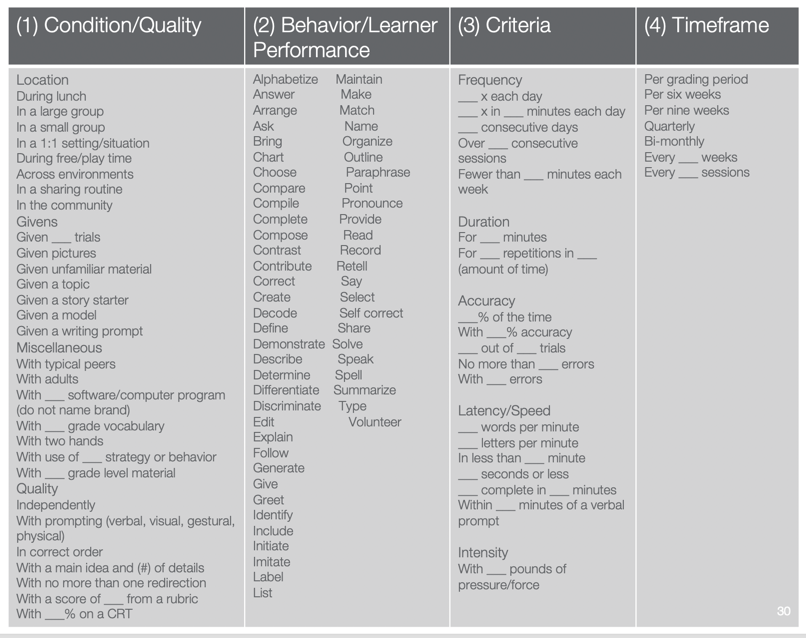
Condition/quality. The first column is Condition/Quality and it is broken down into different factors like “Location” or “Givens”. A location example would be, “"During lunch group, a student will…," or, "In a large group, a student will…," or, "In a one-on-one setting or situation, this student will…" This is a list of suggestions for ways to meet the condition/quality component of the goal.
“Givens” are “Given X number of trials…” or “When given pictures…” or “When given unfamiliar material, the student will…” There are numerous examples to add in terms of condition or quality.
There are some miscellaneous terms and phrases also listed. For students who are working on social skills, it can be challenging to come up with how we want them to react in social situations and with whom. We might talk about “with typical peers” or “with adults”. We might want the goal to include, “…with certain grade-level vocabulary”, etc.
Quality is how the goal will be met such as “independently”, “with prompting”, “in correct order”, “with a main idea and X number of details”, “with no more than one direction.” These are examples of how to meet that condition or quality component.
Behavior/learned performance. The chart lists some great suggestions for writing a goal that is measurable because we are indicating exactly what we want them to do. We don't use words like learn or will know because that can’t be measured. We can't really measure learn . So, this column lists words that will make that goal and objective measurable in terms of behavior: alphabetize, answer, self-correct, summarize, give, identify, include . Those are all words that are definitely measurable and we can take data on without any problem. This is, obviously, a very small percentage of some of those behavior terms that are measurable.
Criteria. This refers to frequency, duration, accuracy, latency/speed, or maybe intensity depending on the type of a goal being written. It may be X number of times per day, X number of times in X number of minutes. It could be over consecutive sessions. With stuttering, we may look at duration and accuracy. Figuring out how to word a goal can be challenging. Having a list of examples like this can help.
Timeframe. I receive many questions about how the timeframe should be written on the scheduled of services section of the IEP. My advice is to write it the way the district wants you to. Each district has its own view on how the timeframe should be written. Some school districts want it by grading period. Some want it by grading quarterly, every so many weeks, or every so many sessions. There is no definitive answer for the best way to write that so it is best to follow the districts instructions. Additionally, some IEP electronic paperwork is already set up a certain way and doesn’t allow the delivery model or service model to be changed.
When writing the timeframe, remember that there are many interruptions to our therapy sessions – field trips, testing, benchmark testing, statewide testing, etc. Therefore, it is better to write the goal for over a period of time rather than “so many times per week”. It allows for more flexibility to meet those established minutes per grading period as listed on the schedule of services. Writing the timeframe as “weekly” restricts the ability to make up those minutes if the child is involved in another activity or event.
Model for Goal Writing
Along with the components just discussed, there are other parts to the goal that must be included. SMART goals will always include:
- WHO - The student
- WHAT - What will the student need to do? Is it measurable and observable?
- WHEN (timeframe) - How long does the student need to work on the goal?
- WHERE (conditions) - Setting, situation and materials
- HOW (criterion) - To what level or degree must the student perform.
- ASSESSMENT - What level of assessment will be used to measure progress and attainment of that particular goal?
This model tends to work better with the special education paperwork compared to the SMART or Components model. However, all three are very similar and one of them should work for you and your district requirements.
Goal Components
Goal components can be ordered this way:
- By when will the person do it?
- Who will do it?
- What will they do?
- How well will they do it?
- Under what conditions?
For example, “By the end of X, John will be able to produce the “s” sound in phrases with 80% accuracy without models provided.” That goal covers all of the goal components for what needs to happen in order for it to move the student forward.
There is also a seven-step process for creating standards-based IEPs created by Project Forum at the National Association of State Directors of Special Education Conference (NASDSE, 2007). The process was presented to classroom teachers and special education classroom teachers, but I found it very useful for writing speech and language goals. I have modified the steps slightly but I do follow the basic model and want to give the NASDSE credit.
Step 1: First Write/Review the PLAAFP
The first step is to review the assessment date and determine the present levels (PLAAFP). For example:
Sally is a 4-year-old student with autism. She displays occasional verbal and physical outbursts to demonstrate frustration over shared materials or when she cannot move about the classroom as she chooses. She follows a visual schedule for her daily routine and can independently manipulate the schedule pieces as she progresses through the day. She has learned to look at the next picture on her schedule and will verbally state what comes next, i.e. “computer”, “PE”, “lunch”.
Sally uses one- and two-word phrases to express wants and needs, primarily with adults. According to her mother, she “plays” with her older sister, but social interaction with peers is limited to parallel play in various areas of the classroom. When observed in various school environments, Sally did not independently initiate interactions with peers. When observed over the course of multiple days, Sally initiated peer interactions a total of 2 times on the playground when an adult provided a verbal instruction and verbal, gestural or visual prompts (picture) to initiate the interaction.
The statement tells WHO (Sally) and WHAT she displays (verbal and physical outburst). The statement indicates that she uses one- and two-word phrases, and specifically HOW. It includes additional information in order to give a complete picture of a functional analysis for Sally.
Again, that is a sample of what a PLAAFP statement might look like for a student.
Step 2: Prioritize Needs
Step two is prioritizing the student’s deficit areas. With the example of Sally, she has multiple deficit areas and for a four-year-old, some of those deficits are pretty significant. Her speech and language skills are very poor.
We want to take the information known about Sally and prioritize it so that she doesn’t have an IEP with 85 goals and objectives. Sally will never function and make progress if too many goals are written. We want to prioritize her needs by identifying those that are most likely to hinder her access or progress in her special education preschool classroom.
Sally’s areas of concern are the verbal and physical outbursts, which is not surprising because she can’t communicate and that behavior is a form of communication. Teachers may not understand that so we can discuss that with them. Additionally, Sally has very limited social interaction. She has only been seen in parallel play with students in her class. She does not initiate interactions with peers independently, and she has limited verbalizations.
From a speech and language perspective, her inability to interact independently and her limited verbalizations are priority needs for Sally if she is going to access all areas of her current educational setting.
Another question to consider is what is most likely to hinder the student’s success? For Sally, it is her limited verbalizations and interactions with peers. Those two areas should be included in her IEP.
Step 3: Review Academic Standards
In the case of Sally, there may not be academic standards. Rather, there might communication standards and/or socialization standards. We want to review those since we know they are deficit areas for Sally. For prekindergarten, the guideline is, “The child shows competence in initiating social interactions.” We can take this standard and decide where we need to start developmentally with Sally to get her to the point where she can show competence in initiating social interactions.
Step 4: Correlate Deficit Areas
Step four is to correlate the deficit to a standard. We want to match that priority deficit skill to a corresponding educational or functional performance area. The selected areas should be those that determine the greatest potential to accelerate the student's achievement. The aim is to close the gap.
For example, Sally’s skills include using a picture schedule independently and anticipating what comes next in her schedule. She can use one- and two-word phrases to express wants and needs consistently with adults. She may not be doing that with her peers, but she's able to do it with adults, probably when prompted. Additionally, she exhibits social initiation in controlled environments with multiple prompts using a two-word phrase. Meaning, if someone assists her to make that social initiation, she can do it. But it requires a lot of prompting. Finally, Sally demonstrates parallel play alongside her peers. It’s not that she doesn’t want to be around the peers, she just can’t turn her parallel play into interaction yet.
The skills that Sally needs include showing competence in initiating social interaction, actively seeking out play partners, and appropriately inviting them to play. These are areas of need for Sally based on the standards for functional performance for her age level.
Step 5: Develop Annual Goal
The next step is to develop the annual goals and objectives. After the deficit skill areas have been identified with corresponding educational needs for the student, annual goals are developed.
Using the SMART acronym, what goals can be written for Sally?
By Sally's next annual IEP (4), given a verbal instruction and no more than one verbal prompt (1), Sally will approach a peer during a structured playtime and invite him or her to play by making a verbal request, such as, 'Play with me?’ (2) as evidenced by making the request for five consecutive school days during one grading period (3).
Because Sally can use one- and two-word phrases already, we want to bump her up to three words. Sally is going to have to initiate those social interactions five consecutive school days during one grading period. That's how we're going to measure her progress.
Step 6: Developing Short-Term Objectives
Step six is to develop short-term goals and objectives. Short-term objectives (STOs), also called benchmarks, are no longer required by federal law. When IDEA 2004 was rewritten and reauthorized, it removed the need for short-term objectives to be listed on a child's IEP unless that student was taking some type of alternative assessment aligned with alternative achievement standards. Those are the students who need modifications to be made to the grade-level content. In that instance, it is still required by federal law to write short-term goals and objectives. For more information on that IDEA federal requirement, go to 34 CFR Section 300.320.
For students who have SLI with no other disability categories, their grade-level content is not typically modified. Only accommodations are provided to help them reach their goals. Likewise, students with only speech impairment will not have modified content and we are no longer required to write short-term goals or objectives unless the district or state requires it. It IS ok for districts and states to continue to require them.
In many instances, short-term objectives are the building blocks for the student to reach the annual goal. Each STO or benchmark can be individually measured with data collection. Having STOs can make it a bit easier.
Example of possible STOs for Sally include:
By the end of Sally’s fourth reporting period, given a verbal instruction paired with a verbal, gestural and visual prompt, Sally will interact with a peer in a short-structured activity by sharing materials for up to five minutes over five consecutive interactions, as evidenced by data collection by the classroom teacher and the speech pathologist.
If the objective is only going to be measured by you, as the SLP, then state that. In my school, goals are written for younger children such that communication goals are worked on by the SLP and the classroom teacher. All of the components of the goal are there: who, why, when, how much, and how it will be evaluated. This is a very important step if Sally is going to master the standards that are required for her pre-K classroom.
Another example:
By the end of Sally’s second reporting period, given a verbal instruction paired with a verbal, gestural and visual prompt, Sally will demonstrate appropriate turn taking skills during an adult-directed play task with a peer over 5 consecutive interactions, as evidenced by grading turn taking using a social skills interaction rubric.
The first STO states, “By the end of Sally’s fourth reporting period” because that goal is going to take more time for her to reach. Her second STO states, “By the end of Sally’s second reporting period…” because it is not expected to take her as long to master that STO compared to the first one.
Essential Elements Cheat Sheet
Figure 4 is a cheat sheet that can help break goals apart in a systematic and organized way.
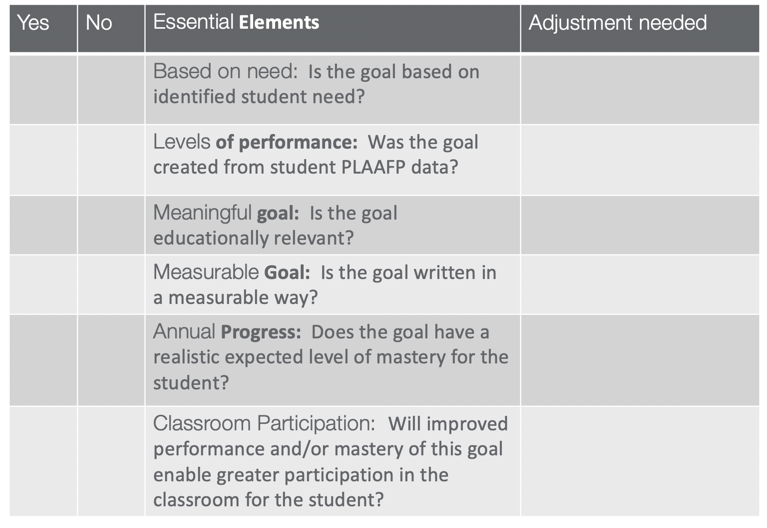
Figure 4. Essential elements cheat sheet. The essential element is listed in the center of the table with a “Yes” and “No” column to the left of it. If “Yes” is checked then that suggests the goal is based on identified student need. If you read the essential element to yourself and think “No, it’s not really based on need," then check the “No” column and adjust the goal to address what their need is now based on what they can do. Do the same check for levels of performance, meaningful goal, measurable goal, annual progress, and classroom participation. Again, this is a chart to help with goal writing if needed. Figure 4. Essential elements chart.
Goal writing is an area that many SLPs struggle with. As we inherit folders and IEPs with goals written by other SLPs, we want to show some grace to the professionals who came before us before jumping to the conclusion of, “What were they thinking. How is that goal measurable?” Let’s take the opportunity to write goals in the right way and not worry about how the goal was given to us.
Collaboration
The last item to discuss is collaboration. We hear a lot about interprofessional collaboration and ASHA has quite a bit on the topic as well. It's very important to collaborate with our colleagues and demonstrate how effective we can be with students that are having educational challenges. It starts with us - how we present ourselves and how we collaborate with our colleagues. I encourage you to get into classrooms. Be a well-known person in your building and be a source of knowledge and information to others.
When we collaborate, we're increasing the value of what we do so that others can do it too. We're also increasing the value to our students in terms of knowledge and skills that we can help them acquire. If you are a middle and/or high school SLP, it’s extremely important to motivate your students and help them understand why they to come to speech therapy. Instead of the rolling of the eyes or “getting lost” on the way and never show up, it’s important that you share what you know with them and what you can help them do.
Below are some references that I refer to on a regular basis. The Individuals with Disabilities Education Act of 2004 can be accessed at sites.ed.gov. If you're new to the profession, look through the references and understand what the requirements are for you as a special education provider. Speech is a special education service in the public schools. Be aware of what you need to know as a speech-language pathologist working with students in the public schools.
Blosser, J., Roth, F. P., Paul, D. R., Ehren, B. J., Nelson, N. W. & Sturm, J. M. (2012). Integrating the core. The ASHA Leader .
Capitol Region Education Council. The BluePrint: Building Powerful Special Education Practices (2013). Hartford, CT.
Ehren, B. J., Blosser, J., Roth, F. P., Paul, D. R. & Nelson, N. W. (2012). Core commitment. The ASHA Leader .
Individuals with Disabilities Education Act. 2004. Rules and regulations retrieved from www.sites.ed.gov .
Justice, L. (2013). From my perspective: A+ speech-language goals. The ASHA Leader .
Mount, M. (2014). Facilitating cohesive service delivery through collaboration. Perspectives on School-Based Issues . 15, 15-25.
National Association of State Directors of Special Education (2007). Available at www.nasdse.org .
Power-de Fur, L. & Flynn, P. (2012). Unpacking the standards for intervention. Perspectives on School-based Issues , 13, 11-16.
Mount, M. (2020). Back to Basics: Goal Writing for School-based SLPs. SpeechPathology.com, Article 20343. Retrieved from www.speechpathology.com

Marva Mount, MA , CCC-SLP
Marva Mount, M. A., CCC-SLP has worked in a variety of settings in her 35+ year career, with school-based services being her most enjoyed work setting due to serving children who have the greatest need for services and the highest likelihood of educational success with intervention. Marva has presented at the state and national level on a variety of school-based issues. Marva is a chapter author/contributor to the Fifth Edition of Professional Issues in Speech-Language Pathology and Audiology as well as a contributing author to ASHA Special Interest Group 11 and 16 (Supervision and School-based Issues) Perspectives. At the 2018 Texas Speech and Hearing Convention, Marva was awarded the TSHA Hall of Fame Award for outstanding contributions to the profession. Marva is currently serving as the topic chair for Professional Issues and Leadership for the 2020 ASHA convention in San Diego.
Related Courses
Course: #8977 level: introductory 1 hour, back to basics: let's talk data collection, course: #9246 level: introductory 1 hour, telepractice tips and tricks for school intervention, course: #9566 level: introductory 1 hour, collaborative therapy isn't pushy, course: #9105 level: intermediate 1 hour, collaborate with confidence in school-based teams, course: #10178 level: intermediate 1 hour.
Our site uses cookies to improve your experience. By using our site, you agree to our Privacy Policy .

Speech Therapy Goals
Why re-invent the wheel?
Many speech therapy goals are very similar and are needed again and again. This speech therapy goal bank makes the process free and easy. Just:
- Copy and paste the speech and language goals from below.
- Make it measurable: “…in 7/10 of the opportunities.”
- Add your level of support: “…with minimal / moderate / maximal cues/
Speech Therapy Goal Bank
Articulation goals.
Articulation goals are the target we work toward in Articulation therapy. They specify which phoneme(s) will be addressed in speech therapy. Any of these can be made into long term or short term articulation goals. We’ve included in our articulation goal bank the ones we find useful.
Articulation Goals – Sounds
Will use X sound in isolation Producirá el sonido X en aislamiento
Will use X sound in X position(s) of the word at the word level Producirá el sonido X en la posición X de la palabra al nivel de la palabra
Will use X sound in X position(s) of the word at the phrase level Producirá el sonido X en la posición X de la palabra al nivel de la frase
Will use X sound in X position(s) of the word at the sentence level Producirá el sonido X en la posición X de la palabra al nivel de la oración
Will use X sound in X position(s) of the word at the paragraph level Producirá el sonido X en la posición X de la palabra al nivel del párrafo
Will use X sound in X position(s) of the word at the conversation level Producirá el sonido X en la posición X de la palabra al nivel de la conversación
Will use X sound in all positions of the word at X level Producirá el sonido X en todas las posiciones de la palabra al nivel X
Articulation Goals – Consonant Clusters
Will use X blends at the word level Producirá palabras con grupos consonánticos con el sonido X al nivel de palabra
Will use X blends at the phrase level Producirá palabras con grupos consonánticos con el sonido X al nivel de la frase
Will use X blends at the sentence level Producirá palabras con grupos consonánticos con el sonido X al nivel de la oración
Will use X blends at the paragraph level Producirá palabras con grupos consonánticos con el sonido X al nivel del párrafo
Will use X blends at the conversation level Producirá palabras con grupos consonánticos con el sonido X al nivel de la conversación
Phonology Goals
Speech therapy goals for phonology Phonology goals are goals that target phonological processes. Phonological processes are patterns that children use as they learn to produce adult speech, but when used beyond a certain age, they negatively impact intelligibility. Here are the goals we use most often.
Phonology Goals for children ages 3+ – Syllabic
Will reduce the process of weak syllable deletion by producing all syllables of: a) two- and b) three-syllable words at the [word/phrase/sentence] level Disminuirá el proceso de omisión de sílabas átonas al producir todas las sílabas en palabras con a) dos y b) tres sílabas al nivel de la [palabra/frase/oración]
Will reduce the process of initial consonant deletion by producing all age-appropriate consonants in the initial position of words at the [word/phrase/sentence] level Disminuirá el proceso de omisión de consonantes iniciales al producir todos los consonantes apropiados para su edad en la posición inicial de palabras al nivel de la [palabra/frase/oración]
Will reduce the process of medial consonant deletion by producing all age-appropriate consonants in the medial position of words at the [word/phrase/sentence] level Disminuirá el proceso de omisión de consonantes mediales al producir todos los consonantes apropiados para su edad en la posición medial de palabras al nivel de la [palabra/frase/oración]
Will reduce the process of final consonant deletion by producing all age-appropriate consonants in the final position of words at the [word/phrase/sentence] level Disminuirá el proceso de omisión de consonantes finales al producir todos los consonantes apropiados para su edad en la posición final de palabras al nivel de la [palabra/frase/oración ]
Phonology Goals for children ages 3+ – Substitution
Will reduce the process of fronting by producing velar sounds (i.e., /k, g/) in words at the [word/phrase/sentence] level Disminuirá el proceso de frontalización al producir los sonidos velares (ej. /k,g/) en palabras al nivel de la [palabra/frase/oración]
Will reduce the process of backing by producing all age-appropriate bilabial and alveolar sounds (/p, b, m, t, d, n/) at the [word/phrase/sentence] level Disminuirá el proceso de posteriorización al producir todos los sonidos bilabiales y alveolares (/p, b, m, t, d, n/) al nivel de la [palabra/frase/oración]
Will reduce the process of stopping by producing all age-appropriate fricatives and/or affricates (/f, v, θ, ð, s, z, ʃ, ʒ, tʃ, dʒ/) at the [word/phrase/sentence] level Disminuirá el proceso de oclusivización al producir todos los sonidos fricativos y africados (/p, b, m, t, d, n/) al nivel de la [palabra/frase/oración]
Will reduce the process of assimilation by producing all age-appropriate phonemes in a) one-syllable b) two-syllable c) three-syllable words at the [word/phrase/sentence] level Disminuirá el proceso de asimilación al producir palabras de 2-3 sílabas con sonidos apropiados para su edad al nivel de [palabra/frase/oración ]
Phonology Goals for children ages 5+ – Syllabic
Will reduce the process of cluster reduction by producing X blends at the [word/phrase/sentence] level Disminuirá el proceso de reducción de grupos consonánticos al producir grupos consonánticos con el sonido X al nivel de la [palabra/frase/oración]
Will reduce the process of consonant sequence reduction by producing /s/ consonant sequences (e.g., eSTe, buSCa, eSPonja) in words at the [word/phrase/sentence] level Disminuirá el proceso de reducción de secuencias consonánticas al producir secuencias consonánticas (ej., eSTe, buSCa, eSPonja) en palabras al nivel de la [palabra/frase/oración]
Will reduce the process of cluster reduction by producing /l/ clusters (e.g., PLato, haBLa) in words at the [word/phrase/sentence] level Disminuirá el proceso de reducción de grupos consonánticos al producir grupos consonánticos con /l/ (e.g., PLato, haBLa) en palabras al nivel de la [palabra/frase/oración]
Will reduce the process of consonant sequence reduction by producing /l/ sequences (e.g., faLDa, aLTo) in words at the [word/phrase/sentence] level Disminuirá el proceso de reducción de secuencias consonánticas al producir secuencias con /l/ (e.g., faLDa, aLTo) en palabras al nivel de la [palabra/frase/oración]
Will reduce the process of cluster reduction by producing /r/ clusters (e.g., Primo, maDRe, oTRo) in words at the [word/phrase/sentence] level Disminuirá el proceso de reducción de grupos consonánticos al producir grupos consonánticos con /r/ (e.g., PRimo, maDRe, oTRo) en palabras al nivel de la [palabra/frase/oración]
Will reduce the process of consonant sequence reduction by producing /r/ sequences (e.g., caRTa, baRCo, áRBol) in words at the [word/phrase/sentence] level Disminuirá el proceso de reducción de secuencias consonánticas al producir secuencias con /r/ (e.g., caRTa, baRCo, áRBol) en palabras al nivel de la [palabra/frase/oración]
Phonology Goals for children ages 5+ – Substitution
Will reduce the process of gliding by producing appropriate consonants in words at the [word/phrase/sentence] level Disminuirá el proceso de semivocalización al producir consonantes apropiados en palabras al nivel de la [palabra/frase/oración]
Will reduce the process of vocalization by producing vocalic /r/ and/or /l/ at the [word/phrase/sentence] level Disminuirá el proceso de vocalización al producir la /r/ vocálica y/o la /l/ al nivel de la [palabra/frase/oración]
Will reduce the process of flap/trill deviation by producing the flap and/or trilled /r/ at the [word/phrase/sentence] level Disminuirá el proceso de la desviación de la ere y la erre al producir la ere y/o erre al nivel de la [palabra/frase/oración]
Will reduce the process of final consonant devoicing by producing all age-appropriate voiced phonemes in the final position of words at the [word/phrase/sentence] level Disminuirá el proceso de la desvocalización de los consonantes finales al producir todos los fonemas vocalizados en la posición final de palabras al nivel de la [palabra/frase/oración]
Receptive Language Goals
Receptive language goals target what a child understands. Vocabulary, following directions, and answering questions are among the areas targeted when we work on Receptive language. These receptive language goals are appropriate for preschool through adulthood. Here are some of our favorites.
Receptive Language Goals – Vocabulary
Will increase understanding of age-appropriate receptive vocabulary by identifying [#] unique nouns by pointing to pictures Aumentará conocimiento de vocabulario receptivo apropiado para su edad al identificar [#] sustantivos, señalando a fotos
Will increase understanding of age-appropriate receptive vocabulary by identifying [#] unique action verbs by pointing to pictures Aumentará conocimiento de vocabulario receptivo apropiado para su edad al identificar [#] verbos, señalando a fotos
Will increase understanding of age-appropriate receptive vocabulary by identifying [#] unique adjectives by pointing to pictures (size/shape/color/texture, etc.) Aumentará conocimiento de vocabulario receptivo apropiado para su edad al identificar [#] adjetivos, señalando a fotos (tamaño/forma/color/textura, etc.)
Will identify word-relationships by identifying parts of a whole by pointing to pictures/objects Identificará las relaciones entre palabras al identificar partes de un entero, señalando a fotos/objetos
Will identify word-relationships by identifying category members by grouping items/pointing to pictures Identificará las relaciones entre palabras al identificar miembros de una categoría, juntando objetos/señalando a fotos
Will identify word-relationships by completing analogies by pointing to a picture Identificará las relaciones entre palabras al completar analogías semánticas, señalando a fotos
Will identify age-appropriate concepts by pointing to parts of the body on self or a doll Identificará conceptos apropiados para su edad al apuntar a partes del cuerpo, en si mismo/a on en una muñeca
Will identify age-appropriate concepts by pointing to pictures/objects of color concepts Identificará conceptos apropiados para su edad al apuntar a conceptos de color, señalando a fotos/objetos
Will identify age-appropriate concepts by pointing to pictures/objects of size concepts Identificará conceptos apropiados para su edad al apuntar a conceptos de tamaño, señalando a fotos/objetos
Will identify age-appropriate concepts by pointing to pictures/objects of shape concepts Identificará conceptos apropiados para su edad al apuntar a conceptos de formas geométricas, señalando a fotos/objetos
Receptive Language Goals – Following Directions
Will follow #-step directions Seguirá instrucciones de #-paso
Will follow #-step directions with age-appropriate spatial concepts (in front, behind, on top, under, etc.) Seguirá instrucciones de # pasos que incluyen conceptos de ubicación apropiados para su edad (en frente, atrás, arriba, abajo etc.)
Will follow #-step directions with age-appropriate quantity concepts (all, none, some, etc.) Seguirá instrucciones de # pasos que incluyen conceptos de cantidad apropiados para su edad (todos, ninguna, algunos etc.)
Will follow #-step directions with age-appropriate quality concepts (color, size, shape) Seguirá instrucciones de # pasos que incluyen conceptos de calidad apropiados para su edad (color, tamaño, forma geométrica)
Will follow #-step directions with age-appropriate pronouns Seguirá instrucciones de # pasos que incluyen pronombres apropiados para su edad
Will follow #-step directions with age-appropriate temporal concepts Seguirá instrucciones de # pasos que incluyen conceptos temporales apropiados para su edad
Receptive Language Goals – Answering Questions
Will answer age-appropriate ‘yes/no’ questions related to personal experiences/classroom discussions/stories Contestará preguntas de ‘si/no’ apropiados para su edad en relación a experiencias personales/discusiones en el salón/cuentos
Will answer age-appropriate wh- questions related to a story Contestará preguntas apropiadas para su edad acerca de un cuento
Will answer age-appropriate wh- questions related to an activity Contestará preguntas apropiadas para su edad acerca de una actividad
Will answer age-appropriate wh- questions related to discussions Contestará preguntas apropiadas para su edad acerca de discusiones
Will answer a variety of age-appropriate wh- question types Contestará una variedad de preguntas apropiadas para su edad (quién, qué, cuándo, dónde, por qué y/o cómo)
Will answer ‘who,’ ‘what,’ and ‘where’ questions Contestará preguntas de “ quién,” “qué,” y “dónde”
Will answer ‘when,’ ‘why,’ and ‘how’ questions Contestará preguntas de “ cuándo,” “por qué” y “cómo”
Will answer ‘who’ questions Contestará preguntas de “quién”
Will answer ‘what’ questions Contestará preguntas de “qué”
Will answer ‘when’ questions Contestará preguntas de “cuándo”
Will answer ‘where’ questions Contestará preguntas de “dónde”
Will answer ‘why’ questions Contestará preguntas de “por qué”
Will answer ‘how’ questions Contestará preguntas de “cómo”
Receptive Language Goals – Other
Will sequence a)3 b)4 c)5 images to show the correct order of events after hearing a story Secuenciará a)3 b)4 c)5 imágenes para enseñar el order correcto de eventos después de oír un cuento
Will sequence a)3 b)4 c)5 images to show the correct order of events after an activity Secuenciará a)3 b)4 c)5 imágenes para enseñar el order correcto de eventos después de una actividad
Will sort images/objects into categories Clasificará imagenes/objetos en categorías
Will select the image/object that does not fit into a given category Escogerá el imagen/objeto que no pretenece a una categoría dada .
Expressive Language Goals
Expressive language goals target a child’s ability to express him/herself effectively. Skills as basic as making gestures or as complex as retelling a narrative can be addressed in speech therapy. We’ve included a broad range of expressive language topics and goals here.
Expressive Language Goals – Gestures/signs
Will pair vocalizations with gestures when indicating want or requesting objects Combinará vocalizaciones con gestos cuando indica en deseo o cuando pide algo
Will ask for “more” with words and/or signs Pedirá “mas” con palabras y/o gestos
Will indicate that he is “finished” with words and/or signs Indicará “se acabó” con palabras y/o gestos
Will ask for “help” using words and/or signs Pedirá “ayuda” con palabras y/o gestos
Expressive Language Goals – Early Language
Will imitate vocalizations when requesting objects Imitará vocalizaciones cuando pide objetos
Will vocalize and gesture to communicate “want.” Vocalizará y hará un gesto para comuicar “quiero”
Will imitate duplicated syllables Imitará sílabas duplicadas
Will imitate/produce four different syllable types Imitará/producirá cuatro tipos de sílabas distintas
Will imitate non-speech sounds, such as animal sounds or environmental noises Imitará sonidos que no son del habla, como los sonidos de animales o ruidos ambientales
Will imitate/produce 5 vowel sounds Imitará/producirá 5 sonidos vocales
Will respond to a question with “yes” or “no” Responderá a una pregunta con “sí” o “no”
Will use a word or phrase to request an object/activity Usará una palabra o frase para pedir un objeto/una actividad
Expressive Language Goals – Vocabulary Development
Will imitate names of 5-7 objects Imitará los nombres de 5 a 7 objetos
Will describe objects/pictures by identifying 2-3 critical features Describirá objetos/dibujos al identificar 2 a 3 características importantes
Will describe 20 common objects by giving name, attribute (color, size), function, or number with one request/question Describirá 20 objetos comunes dando el nombre, atributo (color, tamaño), función, o número con una pregunta
Will label [common objects/nouns/actions] in [a phrase/sentence/conversation] Nombrará [objetos comunes/sustantivos/acciones] en [una frase/oración/conversación]
Will use vocabulary to clearly describe ideas, feelings, and experiences Usará vocabulario para describir ideas, sentimientos y experiencias
Will name [#] items in a category: school items, home items, clothing, animals, colors, toys, etc. Nombrará [#] objetos en una categoría: objetos de la escuela, objetos de la casa, ropa, animales, colores, juguetes, etc.
Will name category of objects given [#] members of the target category Nombrarála la categoría dado [#] miembros de la categoría en cuestión
Will include an attribute (red/big/two) when describing objects Incluirá un atributo (rojo/grande/dos) cuando describa objetos
Will classify items by category and explain their relationships Clasificará objetos por categoría y explicará sus relaciones
Will state the function of an object Dirá la función de un objeto
Will state part-whole relationships Identificará la relación entre un objeto y sus partes funcionales
Will state the opposite of a target word Dirá el opuesto de una palabra en cuestión
Will state a synonym for a target word Dirá un sinónimo de una palabra en cuestión
Will state meanings of multiple-meaning words Dirá los significados de palabras con significados múltiplos
Will produce figurative language (similes, metaphors, hyperboles, personifications, etc.) during structured language activities Producirá lenguaje figurativo (símiles, metáforas, hipérboles, personificaciónes, etc.) durante actividades de lenguaje estructuradas
Expressive Language Goals – Utterance Expansion
Will increase utterance length to two words Aumentará sus frases para incluir dos palabras
Will Use 2-3 word utterances to describe [in a structured activity/in conversation] Usará 2-3 palabras en una frase para describir [durante una actividad estructurada/en una conversación]
Will use 4-5 word utterances to ask questions/comment/describe [in a structured activity/in conversation] Usará 4-5 palabras en una frase u oración corta para hacer preguntas/comentar/describir [durante una actividad estructurada/en una conversación]
Will name missing words (articles, prepositions, etc.) in orally presented sentences Identificará las palabras que faltan (artículos, preposiciones) en oraciones presentadas oralmente
Will include all necessary words in sentences during structured activities Incluirá todas las palabras necesarias en oraciones durante actividades estructuradas
Will respond during an activity with rote phrases (i.e. “It’s your turn.”) Responderá durante una actividad con frases familiares (i.e. “A ti te toca.”)
Will use descriptive words in utterances [to describe pictures/in a structured activity/in conversation] Usará palabras descriptivas en frases [para describir dibujos/durante una actividad estructurada/en conversación]
Will use complete, grammatical sentences to express his/her wants and needs and share information Usará oraciones completas y gramaticales para expresar sus deseos y necesidades y para compartir información
Will use simple grammatical sentences to relate past events Usará oraciones sencillas y gramaticales para contar de eventos del pasado
Will use simple grammatical sentences to explain word relationships Usará oraciones sencillas y gramaticales para explicar la relación entre palabras
Will use 2-4 words for a variety of communicative functions during daily activities Usará oraciones de 2-4 palabras por varias razones comunicativas durante actividades diarias
Will use 2-4 words to express his/her wants and needs Usará 2-4 palabras para expresar sus deseos y necesidades
Will use 2-4 words to comment or share information during structured activities Usará 2-4 palabras para comentar o compartir información durante actividades estructuradas
Will use 2-4 words sentences to answer simple Wh-questions during structured activities Usará 2-4 palabras para responder a preguntas sencillas durante actividades estructuradas
Expressive Language Goals – Morphology
Will use article/noun gender agreement [in a structured activity/in conversation] Usará los artículos con el género apropiado [durante una actividad estructurada/en conversación]
Will use article/noun number agreement [in a structured activity/in conversation] Usará los artículos con el número apropiado [durante una actividad estructurada/en conversación]
Will use [#] present progressive-tense verbs in [a phrase/sentence/conversation] Usará [#] verbos en el tiempo presente progresivo en [una frase/oraciones/ conversación]
Will use [regular/irregular] plural markers in [phrase/sentence/conversation] Usará el “-s” (ej, perros) y “-es” (arboles) que indican la forma plural en [frases/oraciones/conversación]
Will use present-tense verbs in [a phrase/sentence/conversation] Usará los verbos en el tiempo presente en [frases/oraciones/conversación]
Will use future-tense verbs in [a phrase/sentence/conversation] Usará los verbos en el tiempo futuro en [frases/oraciones/conversación]
Will use regular/irregular past-tense verbs in [a phrase/sentence/conversation] Usará los verbos [regulares/irregulares] en [frases/oraciones/conversación]
Expressive Language Goals – Syntax
Will form simple sentences containing a noun+verb during structured/unstructured therapy activities Formará oraciones simples que contienen un nombre+verbo durante actividades estructuradas/no estructuradas
Will form grammatically correct, simple sentences during structured activities Formará oraciones sencillas y gramaticales durante actividades estructuradas
Will use correct word order to describe or respond to questions regarding an activity, picture, or story Usará el orden correcto de las palabras para describir o responder a preguntas acerca de una actividad, un imagen, o un cuento
Will use correct subject-verb agreement in sentences to describe or respond to questions regarding an activity, picture, or story Usará las formas correctas de los verbos en oraciones para describir o responder a preguntas acerca de una actividad, un imagen, o un cuento
Will accurately use the preterit tense in sentences to describe or respond to questions regarding an activity, picture, or story Usará el pretérito en oraciones para describir o responder a preguntas acerca de una actividad, un imagen, o un cuento
Will include all necessary prepositions in sentences to describe or respond to questions regarding an activity, picture, or story Incluirá todas las preposiciones necesarias en oraciones para describir o responder a preguntas acerca de una actividad, un imagen, o un cuento
Will use compound subjects/objects in sentences Usará sustantivas compuestas en oraciones
Will use compound sentences using (and, but, or, etc.) Usará oraciones compuestas usando (y, pero, o, etc.)
Will include all necessary words to form simple, grammatical sentences Incluirá todas las palabras necesarias para formar oraciones sencillas y gramaticales
Expressive Language Goals – Narrative Development
Will sequence a story or activity that includes [#] parts Pondrá [#] partes de un cuento o actividad en orden
Will retell a story with visual cues (e.g. sequence cards) including problem and solution Recontará un cuento en orden incluyendo el problema y la solución con ayuda visual
Will use descriptive language to tell stories Usará lenguaje descriptivo para contar cuentos
Will tell a story from the past including [#] details in the right order Contará un cuento en el tiempo pasado usando [#] detalles en el orden correcto
Will use sequence words to verbally order an event (e.g. first, next, then, after that, last) Usará palabras temporales para poner en orden un evento (primero, segundo, después, al final)
Will use appropriate descriptive words to report an event/story Usará palabras descriptivas para reportar los eventos de un evento/cuento
Will state the sequence of an event/procedure Expresará la secuencia de un evento/procedimient o
Expressive Language Goals – Narrative Development for Older Students
Will answer “wh” questions after listening to a short story Contestará preguntas (qué, quién, dónde, cuándo, por qué, cómo) después de escuchar un cuento corto
Will name critical features of a story (who, what, when, where, outcome, main idea) Nombrará elementos esenciales de un cuento (quien, que, cuando, donde, consecuencias, e idea principal)
Will name critical features of a problem (who’s involved, how it’s solved, dangerous or not) Nombrará elementos esenciales de un problema (quien estaba involucrado, como se solucionó, era peligroso o no)
Will name critical features of an interaction (who, relationship, positive or negative) Nombrará elementos esenciales de una interacción (quien, relación, positiva o negativa)
Will distinguish between fact and fantasy Distinguirá entre fantasía y realidad
Will use appropriate narrative organization when relating stories Usará una organización narrativa apropiada cuando relata cuentos
Will include all story elements (characters, setting, problem, solution) when retelling a story Incluirá todos los elementos de un cuento (personajes, ambiente, problema, solución) cuando recuenta un cuento
Will retell a story or event including sufficient detail in the correct order Recontará un cuento o evento incluyendo detalles suficientes en el orden correcto
Will produce a verbal narrative including all story elements Producirá una narrativa verbal incluyendo todos los elementos de un cuento
Expressive Language Goals - Compare and Contrast
Vocabulary Expansion: Goal: Will expand their vocabulary by learning and using words related to comparing and contrasting. Example: The client will use comparative and superlative adjectives (e.g., bigger, smaller, taller) in sentences to describe objects and actions.
Descriptive Language: Goal: Will improve descriptive language skills by comparing and contrasting attributes of objects. Example: Given an object, the client will describe its color, size, shape, and texture, comparing and contrasting it with another object.
Sentence Structure: Goal: Will improve sentence structure by creating grammatically correct sentences to compare and contrast. Example: The client will construct sentences using appropriate sentence structures (e.g., “This is [object], and it is [adjective]. In contrast, [other object] is [adjective].”).
Storytelling: Goal: Will develop storytelling skills by comparing and contrasting characters, settings, or events in a narrative. Example: The client will retell a story, highlighting at least three similarities and three differences between characters, settings, or events.
Categorization: Goal: Will categorize and classify items based on similarities and differences. Example: Given a set of objects, the client will categorize them into groups, explaining the similarities that justify their grouping.
Critical Thinking: Goal: Will enhance critical thinking skills by analyzing and justifying comparisons and contrasts. Example: The client will discuss and defend their opinions by providing evidence to support their comparisons and contrasts.
Listening and Comprehension: Goal: Will improve listening and comprehension skills by identifying similarities and differences in spoken instructions or stories. Example: The client will listen to a short story or set of instructions and verbally identify at least two similarities and two differences.
Social Communication: Goal: Will improve social communication by engaging in conversations that involve comparing and contrasting ideas or experiences. Example: The client will participate in a group discussion, comparing and contrasting their weekend activities with a peer.
Pragmatic Language Goals
Pragmatic language speech therapy goals are goals that target a child’s ability to maneuver the social world. From eye gaze and body positioning to complex conversations and inferencing, we’re here with pragmatic language goals to support your child’s learning.
Pragmatic Language Goals – General Communication
Will relay a single-phrase/sentence message to a familiar/unfamiliar communication partner Transmitirá un mensaje de una sola frase / oración a un compañero de comunicación familiar / no familiar
Will make a request for [#] preferred items/activities during structured activities Hará una solicitud para [#] objetos preferidos/actividades durante actividades estructuradas
Will initiate a request with sign or gesture (raising hand, eye contact) Iniciará una solicitud con una señal o un gesto (levantar la mano, contacto visual)
Will spontaneously communicate wants needs and desires with rote phrase (I need…, Help me…) in 7/10 opportunities with model Comunicará de forma espontánea las necesidades y los deseos con una frase de memoria (necesito…, ayúdame con…)
Will choose between two objects or will identify a right or wrong answer when given two choices (true, false/yes, no/good, bad binary choice) Escogerá entre dos objetos o identificará una respuesta correcta o incorrecta cuando se le da dos opciones (cierto, falso/sí, no/bueno, malo elección binaria

Pragmatic Language Goals – Play Skills
Will describe the 3 parts of play and will modify their behavior according to feedback from others during play Describirá las 3 partes de jugar y modificar su comportamiento basado en las reacciones de otras personas mientras cuando están jugando
Will play with toys using their appropriate function Jugará con juguetes usando su función correcta
Will demonstrate parallel play with peers for [#] minutes Jugará a lado de sus compañeros por [#] minutos
Will demonstrate symbolic play Demostrará el juego simbólico
Will demonstrate pretend play Demostrará el juego de fantasía
Will take [#] turns during play activity with peer/teacher/parent Tomará [#] turnos cuando está jugando en una actividad con un/una compañero/a; un/a maestro/a; su padre/madre
Will demonstrate expected behaviors while waiting his/her turn Demostrará comportamientos esperados mientras espera su turno
Will share object/toy with a peer or adult when asked Compartirá un objeto/juguete con un/una compañero/a o adulto cuando se le pide
Pragmatic Language Goals – Joint Attention
Will demonstrate joint attention for [#] minutes Demostrará atención conjunta por [#] minutos
Will initiate pointing to gain the communication partner’s attention Apuntará para llamar el atención de una pareja de comunicación
Will follow eye gaze from the communication partner to an object [#] feet away Seguirá la mirada del pareja de comunicación a un objeto a [#] pies de distancia
Will use eye gaze to direct communication partner’s attention Usará la mirada de los ojos para dirigir el atención de la pareja de comunicación
Will track the eye gaze of others and predict what others are thinking about based on their eye gaze (and will modify their behavior depending on what others are looking at) Seguirá la mirada de los ojos de otras personas y predecirá lo que otras personas están pensando basándose en la mirada de los ojos (y modificara su comportamiento dependiendo en lo que otras personas están observando )
Pragmatic Language Goals – Behavior/Expectations
Will identify expected/unexpected behaviors in themselves and others Identificará comportamientos esperados/inesperados en si mismo/a y otras personas
Will demonstrate expected/unexpected behaviors in themselves Demostrará comportamientos esperados/inesperados en si mismo/a
Will modify their behavior according to feedback regarding his/her behavior Modificará su comportamiento dependiendo en la reacción de otras personas acerca de su comportamiento
Will describe how expected/unexpected behaviors affect the thoughts and feelings of others Describirá como los comportamientos esperados/inesperados afectan los pensamientos y sentimientos de otras personas
Will describe/predict how their own behavior will affect the thoughts and feelings of others Describirá/ Predecirá como su propio comportamiento afecta los pensamientos y sentimientos de los demás
Will describe his/her thoughts about others’ behavior Describirá sus pensamientos acerca del comportamiento de otras personas
Will modify their behavior based on the actions of others Modificará su comportamiento basado en las acciones de otras personas
Will monitor and modify his/her behavior to keep his body and brain in the group Vigilará y modificará sus propios comportamientos para mantener su cuerpo y su cerebro en el grupo
Will use emotional regulation strategies when faced with a difficult task Utilizará estrategias de regulación emocional cuando se enfrente a una tarea difícil
Will maintain appropriate personal space Mantendrá el espacio personal apropiado
Will use appropriate volume for the setting Utilizará el volumen correcto para el entorno
Will adjust vocal volume when asked Ajustará el volumen vocal cuando se le solicite
Pragmatic Language Goals – Conversation
Will use a novel greeting when initiating conversation with a peer Utilizará un saludo novedoso al iniciar una conversación con un/a compañero/a
Will initiate conversations [#] times over the course of [#] therapy days Iniciará conversaciones [#] veces durante [#] días de terapia
Will take [#] turns during conversation with peer/teacher/parent/ Tomará [#] turnos de hablar durante una conversación con un/a compañero/a; un/a maestro/a; su madre/padre
Will maintain the topic of conversation for [#] conversational turns Mantedrá el tema de conversación durante [#] turnos de conversación
Will turn his/her body and face toward the conversational partner Volterará su cuerpo y su rostro hacia el interlocutor
Will describe expected and unexpected behaviors for a conversation (topic maintenance, topic changes, asking questions, topic-related comments, unrelated comments, appropriate interruptions, long talking turn, not responding, initiating conversations, etc.) Describirá los comportamientos esperados e inesperados de una conversación (mantenerse en tema, cambiar de tema, hacer preguntas, hacer comentarios en tema, hacer comentarios que no están de tema, interrupciones apropriadas, hablar demasiado, no contestar, iniciar una conversación, etc.)
Will describe related emotional responses of communicative partners when a student uses expected behaviors and unexpected behaviors during conversations Describirá las respuestas emocionales de una persona con quien está hablando cuando el estudiante demuestra los comportamientos esperados e inesperados de una conversación
Will demonstrate expected behaviors for a conversation during preferred and un-preferred topics Demostrará comportamientos esperados de una conversación durante conversaciones de temas preferidas y no preferidas
Will report on how someone else is feeling based on observing their body language Describirá cómo se siente otra persona basándose en sus observaciones de lenguaje corporal
Pragmatic Language Goals – Predictions/Inferencing
Will respond to questions that require predictions/inferences from picture cards, short paragraph,or a short story Contestará preguntas que requieren una predicción o inferencia, acerca de fotos, un párrafo corto, o un cuento corto
Will make a prediction (smart guess) after observing others, looking at picture cards, listening to a short paragraph, or listening to a short story Hará una predicción (“adivinanza”) después de observar a otras personas, mirar a fotos, escuchar a un párrafo corto, o escuchar un cuento corto
Fluency Goals
Fluency goals are intended to support children who stutter by desensitizing them to the stutters and providing them with tools to modify and shape their stutters to give them more control over their speech. In this goal bank you’ll find the fluency goals we use most often.
Fluency Goals – Desensitization
Will increase knowledge related to stuttering issues Aumentará el conocimiento acerca de la tartamudez
Will demonstrate knowledge of anatomy and physiology of speech Demostrará el conocimiento de la anatomía y fisiología del habla
Will demonstrate knowledge of facts/information related to stuttering Demostrará el conocimiento de hechos/información acerca de la tartamudez
Will explore feelings associated with stuttering (e.g. fear, anger, embarrassment, pride) during discussion Explorará sentimientos relacionados con la tartamudez (por ejemplo miedo, ira, vergüenza, orgullo) durante discursos
Will recognize disfluencies in him/herself and others Reconocerá los tartamudeos en su habla y el habla de otras personas
Will identify different types of speech (bumpy/smooth, fast/slow) Identificará varios tipos del habla (duro/suave, rapido/despacio)
Will determine if the therapist is using “fast” or “slow” speech Determinará si la terapeuta habla “rápido” o “despacio”
Will determine if he/she is using “fast” or “slow” speech Determinará si él/ella habla “rápido” o “despacio”
Will determine if the therapist is using “smooth” or “bumpy” speech Determinará si la terapeuta habla “suave” o “duro”
Will determine if he/she is using “smooth” or “bumpy” speech Determinará si él/ella mismo/misma habla “suave” o “duro”
Will participate in desensitization activities Participará en actividades de insensibilización hacia la tartamudez
Will identify instances of stuttering when listening to a recording of him/herself Identificará casos de tartamudeo al escuchar una grabación de si mismo/a
Will decrease avoidance behaviors by entering 3 specific situations that were previously avoided Disminuirá los comportamientos de evitación al ingresar a 3 situaciones específicas que se evitaron previamente
Will demonstrate desensitization by pseudo-stuttering in the therapy setting/in the classroom Demostrará desensibilización al pseudo-tartamudear en el entorno de la terapia/en el aula
Fluency Goals – Stuttering Modification Techniques
Will name and describe stuttering modification techniques (cancellation, pull-out, preparatory set, relaxed stuttering, voluntary stuttering) Nombrará y describirá las estrategias de modificar la tartamudez (cancelación, salir suavemente de un momento de desfluidez, conjunto preparatorio, tartamudeo relajado, tartamudeo voluntario)
Will use stuttering modification techniques during therapy activities Usará estrategias de modificación del tartamudez durante actividades de la terapia
Will maintain eye contact during stuttering moment during structured therapy activities/in an assigned situation outside of therapy/during daily activities Mantendrá el contacto visual durante el tartamudeo durante actividades estructuradas de terapia/ en situaciones fuera del salón de terapia/ durante actividades cotidianas
Will name and describe the technique of voluntary stuttering Nombrará y describirá la estrategia del tartamudeo voluntario
Will use voluntary stuttering during structured therapy activities/in an assigned situation outside of therapy/during daily activities Tartamudeará voluntariamente durante actividades estructuradas de terapia/ en situaciones fuera del salón de terapia/ durante actividades cotidianas
Will name and describe cancellation Nombrará y describirá la estrategia de la cancelación
Will use cancellation to name and describe/in structured activities/in narration or conversation/outside of therapy Usará cancelacion para nombrar y describir/durante actividades estructuradas de terapia / durante la narración o conversación/fuera del salón de terapia
Will name and describe the strategy of pull-out Nombrará y describirá la estrategia de salir suavemente de un momento de desfluidez
Will use the strategy of pull-out to name and describe/in structured activities/in narration or conversation/outside of therapy Usará la estrategia de salir suavamente de un momento de desfluidez para nombrar y describir/durante actividades estructuradas de terapia / durante la narración o conversación / fuera del salón de terapia
Will name and describe preparatory set Nombrará y describirá la estrategia de ‘prepatory set’(conjunto preparatorio)
Will use preparatory set to name and describe/in structured activities/in narration or conversation/outside of therapy Usará la estrategia de ‘prepatory set’(conjunto preparatorio) para nombrar y describir/durante actividades estructuradas de terapia / durante la narración o conversación / fuera del salón de terapia
Will name and describe relaxed stuttering Nombrará y describirá la estrategia del tartamudeo relajado
Will use relaxed stuttering to name and describe/in structured activities/in narration or conversation/outside of therapy Usará la estrategia del tartamudeo relajado para nombrar y describir/durante actividades estructuradas de terapia/durante la narración o conversación / fuera del salón de terapia
Fluency Goals – Fluency Shaping Techniques
Will name and describe fluency facilitating techniques (i.e. easy onset, relaxed breathing, slowed speech, light contact, continuous phonation) Nombrará y describirá las estrategias que facilitan la fluidez(empezar suave, respiración relajada, habla lenta, contacto ligero, fonación continua)
Will use slow rate when telling a story or during other structured therapy activity Utilizará un ritmo lento al contar un cuento o durante otra actividad de terapia estructurada
Will name and describe the technique of easy onset Nombrará y describirá la estrategia de empezar suave
Will use easy onset at the word level/ at the phrase level/ when telling a story or during other structured therapy activity Utilizará la estrategia de empezar suave en palabras/en frases/cuando cuenta un cuento o durante otra actividad de terapia estructurada
Will use easy onset during a 5-minute conversational task in the therapy setting Utilizará la estrategia de empezar suave durante una conversación de 5 minutos en el entorno de la terapia
Will name and describe the technique of relaxed breathing Nombrará y describirá la estrategia de la respiración relajada
Will use relaxed breathing at the word level/ at the phrase level/ when telling a story or during other structured therapy activity Utilizará la estrategia de la respiración relajada en palabras/en frases/cuando cuenta un cuento o durante otra actividad de terapia estructurada
Will use relaxed breathing during a 5-minute conversational task in the therapy setting Utilizará la estrategia de la respiración relajada durante una conversación de 5 minutos en el entorno de la terapia
Will name and describe the technique of slowed speech Nombrará y describirá la estrategia del habla lenta
Will use slowed speech at the word level/ at the phrase level/ when telling a story or during other structured therapy activity Utilizará la estrategia del habla lenta en palabras/en frases/cuando cuenta un cuento o durante otra actividad de terapia estructurada
Will use slowed speech during a 5-minute conversational task in the therapy setting Utilizará la estrategia del hable lenta durante una conversación de 5 minutos en el entorno de la terapia
Will name and describe the technique of light contact Nombrará y describirá la estrategia del contacto ligero
Will use light contact at the word level/ at the phrase level/ when telling a story or during other structured therapy activity Utilizará la estrategia del contacto ligero en palabras/en frases/cuando cuenta un cuento o durante otra actividad de terapia estructurada
Will use light contact during a 5-minute conversational task in the therapy setting Utilizará la estrategia del contacto ligero durante una conversación de 5 minutos en el entorno de la terapia
Will name and describe the technique of continuous phonation Nombrará y describirá la estrategia de la fonación continua
Will use continuous phonation at the word level/ at the phrase level/ when telling a story or during other structured therapy activity Utilizará la estrategia de la fonación continua en palabras/en frases/cuando cuenta un cuento o durante otra actividad de terapia estructurada
Will use continuous phonation during a 5-minute conversational task in the therapy setting Utilizará la estrategia de la fonación continua durante una conversación de 5 minutos en el entorno de la terapia
Will use 2 fluency shaping techniques (i.e. easy onset, relaxed breathing, slowed speech, light contact, continuous phonation) during a 5-minute conversation in the therapy setting Utilizará 2 estrategias que facilitan la fluidez (empezar suave, respiración relajada, habla lenta, contacto ligero, fonación continua) durante una conversación de 5 minutos en el entorno de la terapia
Will use fluency shaping techniques (i.e. easy onset, relaxed breathing, slowed speech, light contact, continuous phonation) when telling a story or during other structured therapy activities Utilizará estrategias que facilitan la fluidez (empezar suave, respiración relajada, habla lenta, contacto ligero, fonación continua) al contar un cuento o durante otras actividades de terapia estructuradas
Fluency Goals – Secondary Behaviors
Will identify and reduce secondary behaviors in structured activities during therapy/ in narration or conversation during therapy/ outside of therapy in school or social settings
Identificará y reducirá los comportamientos secundarios durante actividades estructuradas en la terapia/ en narrativos o conversación durante la terapia/ afuera de la terapia en la escuela o entornos sociales
Voice Goals
Voice speech therapy goals target volume, resonance, pitch, breath support, and vocal hygiene to support those whose voices interfere with their ability to communicate effectively. Some of our favorites are included below.
Voice Goals – Volume
Will approximate target volume level in words Aproximará un nivel de volumen apropiado en palabras
Will approximate target volume level in sentences Aproximará un nivel de volumen apropiado en oraciones
Will approximate target volume level in connected speech Aproximará un nivel de volumen apropiado en habla continua
Will approximate target volume level in non-therapy situations Aproximará un nivel de volumen apropiado en situaciones no-terapeuticas
Will approximate target volume level for optimal participation Aproximará un nivel de volumen apropiado para participación óptima
Will approximate target volume level in classroom activities Aproximará un nivel de volumen apropiado en actividades en el aula
Will speak using a volume appropriate to varied situations, within the limits of his/her physical mechanism Hablará usando un volumen apropiado en diferentes situaciones, dentro del rango normal de su mecanismo físico
Voice Goals – Resonance
Will describe the general problem and the goal of therapy Describirá el problema general y la meta de terapia
Will explain the function of the vocal mechanism Explicará la función del mecanismo vocal
Will judge appropriateness of model voice Evaluará la calidad apropiada de la voz con un modelo de la terapista
Will judge appropriateness of student’s own voice Evaluará la calidad apropiada de su propia voz
Will identify appropriate/inappropriate nasal resonance in self and others Identificará resonancia nasal apropiada/no apropiada en sí mismo/a y los demás
Will speak using optimal voice resonance, within the limits of his/her physical mechanism Hablará usando resonancia vocal óptima, dentro de los límites de su propio mecanismo físico
Will use appropriate nasal resonance in single words/ phrases/ sentences/ paragraphs/ conversational speech sará resonancia nasal apropiada en el nivel deseado [palabras, frases, oraciones, conversaciones]
Will approximate target resonance in phonemes, syllables, words, phrases, sentences, connected speech, different speaking situations Usará resonancia nasal aproximada en fonemas, sílabas, palabras, frases, oraciones, conversación, y situaciones diferentes
Voice Goals – Pitch
Will imitate optimum pitch in syllables, words, phrases and sentences Imitará tono de voz óptimo en sílabas, palabras, frases y oraciones
Will use optimum pitch in syllables, words, phrases, and sentences Usará tono de voz óptimo en sílabas, palabras, frases y oraciones
Will use optimum pitch in reading and structured conversation Usará tono de voz óptimo en lectura y conversación estructurada
Will use optimum pitch in conversational speech across two environments Usará tono de voz óptimo al nivel de conversación a través de dos lugares
Will use appropriate vocal pitch in single words progressing to conversational speech Usará tono vocal apropiado al nivel deseado [palabras, frases, oraciones, conversaciones]
Will use appropriate stress patterns in single words progressing to conversational speech Usará patrones de estrés apropiados al nivel deseado [palabras, frases, oraciones, conversaciones]
Voice Goals – Breath Support
Student will describe the general problem and the goal of therapy Describirá el problema general y la meta de terapia
Will judge appropriateness of his/her own voice Evaluará la calidad apropiada de su propia voz
Will identify situations in which appropriate volume is needed Identificará situaciones cuando sea necesario usar un volumen apropiado
Will establish adequate breath support Establecerá un nivel de respiración adecuada para el habla
Will sustain phonation for 10-15 seconds at target loudness level Sostendrá fonación por 10-15 segundos al nivel apropiado de volumen
Voice Goals – Self-Awareness and Vocal Hygiene
Will identify basic anatomical features (larynx [voice box], throat, tongue. etc.) given a diagram Identificará las características anatómicas básicas (laringe, garganta, lengua, etc) dado un diagrama
Will describe how voice is produced to include phonation, resonance, and respiration Describirá cómo se produce la voz para incluir fonación, resonancia, y respiración
Will describe basic features of voice (quality, volume, pitch, nasality) Describirá las características básicas de la voz (calidad, volumen, tono, nasalidad)
Will describe and imitate optimal breathing while speaking Describirá e imitará la respiración óptima mientras habla
Will name [#] healthy vocal hygiene practices Nombrará [#] prácticas saludables de hygiene vocal
Will implement hydration regimen over [#] weeks/sessions Implementará un régimen de hidratación durante [#] semanas/sesiones
Will eliminate vocal overuse to improve health of vocal folds Eliminará el use excesivo de la voz para mejorar la salud de la cuerdas vocales
Will reduce vocal effort and fatigue by decreasing upper body tension Reducirá el esfuerzo vocal y la fatiga al disminuir la tension en la parte superior del cuerpo
AAC (or alternative and augmented communication) goals support people who communicate using methods other than using their speaking mechanism to communicate. They may use gestures, signs, words, or symbols on a core board or device to communicate their wants and needs.
Will use a carrier phrase (i.e. “I want” or “Can I have”) when making requests for preferred items/activities Utilizará una frase de soporte (es decir, “quiero” o “puedo tener”) al realizar solicitudes de artículos/actividades preferidos
Will protest by pointing to the “I don’t want” symbol on the communication board Protestará sealando el símbolo “no quiero” en el tablero de comunicación
Will link subject, verb, and noun to create a simple sentence during structured activities Juntará sujeto, verbo, y sustantivo para crear una oración sencilla durante actividades estructuradas
Will use directives to generate a multi-word utterance (i.e. “go+[subject]”) during a structured game/activity Utilizará directivas para generar un enunciado de varias palabras (es decir, “va+[sujeto]”) durante un juego/actividad estructurado
Will initiate a greeting to familiar communication partners Iniciará un saludo a compañeros de comunicación familiares
Will respond to yes/no questions using gestures, signs, words, or symbols Responderá a preguntas sí/no usando gestos, señas, palabras, o símbolos
Will use the phrase “I need help” to request assistance during structured/unstructured tasks Utilizará la frase “necesito ayuda” para pedir ayuda durante actividades estructuradas/no estructuradas
Will select the appropriate symbol to communicate “more” or “all done” following engagement with an activity/object Selecionará el símbolo apropiado para comunicar “más” o “se acabó” despues de participar en una actividad/con un objeto
Will navigate to the appropriate category within the AAC system when participating in a categorization activity Navegará a la categoría apropiada dentro del Sistema CAA cuando participle en una actividad de categorización
Need Speech and Language Goals in Spanish?
We translated all our goals into Spanish for you to share with Spanish-speaking parents. Just copy the Spanish portion along with the English portion and paste them into your speech language report.
There is a trick we can use when a child speaks Spanish or another language and we are unsure which speech and language goals: Choose goals that are appropriate in both languages! Look here:
Speech Therapy Goals that Work Regardless of Home Language
Early language milestones, toddler language skills, preschool language skills, school-age language skills, what are smart speech therapy goals.
If your goals meet the above criteria, you should be in great shape. There are professional worlds however where goal writing is not the norm (Gasp!). Those professions, in my opinion, are continually working to move in our direction. Most commonly they rely on the acronym S.M.A.R.T that comes out of a project management paper that was written in 1981 . It stands for:
It’s a catchy acronym and useful if it helps you include all the necessary components. Again, if you cut and paste from above you should be in good shape. Smart goals examples for speech therapy would include the following:

How Many Ideas Should a Specific Speech Goal Statement Contain?
The answer is 1. Anything more might not be attainable in the time period and is difficult to update. If you say “Child will produce /s/ clusters and produce initial /s/” what do you focus on? What do you do if they master half of the goal?
What is the solution? We either write a second goal or this is where goal objectives come in. A sample speech goal with objectives would look like this:
Goal 1: Child will produce all age-appropriate sounds with 80% accuracy and minimal assistance. Objective 1:1: Child will produce /s/ clusters with 80% accuracy and minimal assistance. Objective 1:2: Child will produce initial /s/ with 80% accuracy and minimal assistance.
IEP Goal Writing for Speech Language Pathologists
Writing speech goals doesn’t have to be complex, and speech goals do not have to be long, but they do have to be accurate in four specific ways.
- Appropriate: Speech therapy goals need to take into consideration the student’s age and any second language influence.
- Measurable: They need to include a percent or a fraction that demonstrates when the goal is achieved. E.g., in 7/10 opportunities.
- Qualified: They need to state how much help is needed to achieve the goal, usually stated as: minimal, moderate, or maximal support.
- Functional: In a school setting, function means that a goal supports a child academically. Writing speech goals is easy in the schools because communication development aids reading, writing, participation, and almost anything that goes on in the classroom. In a clinic setting, goals that don’t demonstrate functionality are often rejected by insurance companies. Goals need to be improved to show how they will promote things like well-being, or safety before being resubmitted.
Here’s a bit more on functionality:
Writing Speech Therapy Goals Also Has to be Functional
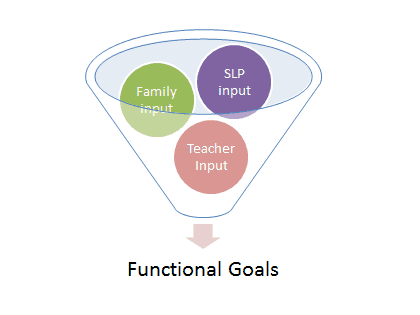
As an SLP, I know that it’s important to write good, measurable speech therapy goals. I get this. When I am working with my clients and students, I make sure everything is measurable. Ruby will produce the pre-vocalic /r/ sound at the sentence level in 7/10 opportunities without prompting across 3 consecutive sessions.
Here’s the thing, though.
Speech Therapy Goals Need to Be Functional
I needed to make my goals more functional. What do I mean by this? I needed to make sure my speech goals and objectives really impacted my client’s day-to-day life. Case in point—I am currently working with a 24-year-old young man, Chris. After a few speech therapy sessions and communication with the gentleman, I understand that he is most excited about meal time, creating art and watching his favorite television shows. His goals are the following:
Examples of Long Term Goals for Speech Therapy
Goal 1: Express wants and needs using a variety of 3-word combinations in 70% of opportunities, given no cues. Goal 2: Describe (e.g., color, size) using a variety of 2-3word combinations in 50% of opportunities, given no cues. Goal 3: Request for a continuation of an activity or more of an item by using 2-3 word combinations in 50% of opportunities, given no cues.
The Impact of Good Speech Goals
So, during his twice-weekly speech therapy sessions, we use his communication device to make a choice for his desired meal items, describe the type of art he wants to create and ask for continuation of House of Payne, a television sitcom. The speech therapy goals directly impact his daily living activities. Watch this video of Chris as he uses his communication skills to participate in purchasing art supplies and going out to lunch:
Students need to know what speech therapy goals they are working on.
Think about it, how successful would you be if you didn’t have goals set for what you wanted to accomplish? How in-shape would you be if you went to the gym twice a week but through you were there just to “play games.” Sure, it might be fun but would you reach your goals?
I remember having a group of 4 students working on different speech therapy goals at different levels. The 2nd graders definitely knew their goals. They also knew each other’s goals. So, one day, when Jose had a great day producing his initial /r/ sounds, James said, “Jose, you did awesome on your /r/ sound today!” The comment was meaningful to Jose, and the students learned to support one another. It made the group more accountable and was also a great way to build rapport.
You can even do this with younger students. I have had clients as young as two-years old who know they come to speech to work on their “buh” and “puh” sounds. So, when they made the sound, they were SO proud of their efforts.

Addressing Speech Therapy Goals Throughout Sessions
Children make great progress when they identify their speech and language goals in every session. Here are three ways to do it.
Schedule for the day: When you outline what the day’s session will be about, have each child state their goal right after the Greetings.
During speech and language tasks , have children take data on their goal.
More Speech Therapy Goal Writing Resources:
Using the Curriculum to Formulate IEP Goals
Writing Measurable Goals
Also! Read what we wrote on Sequencing Goals
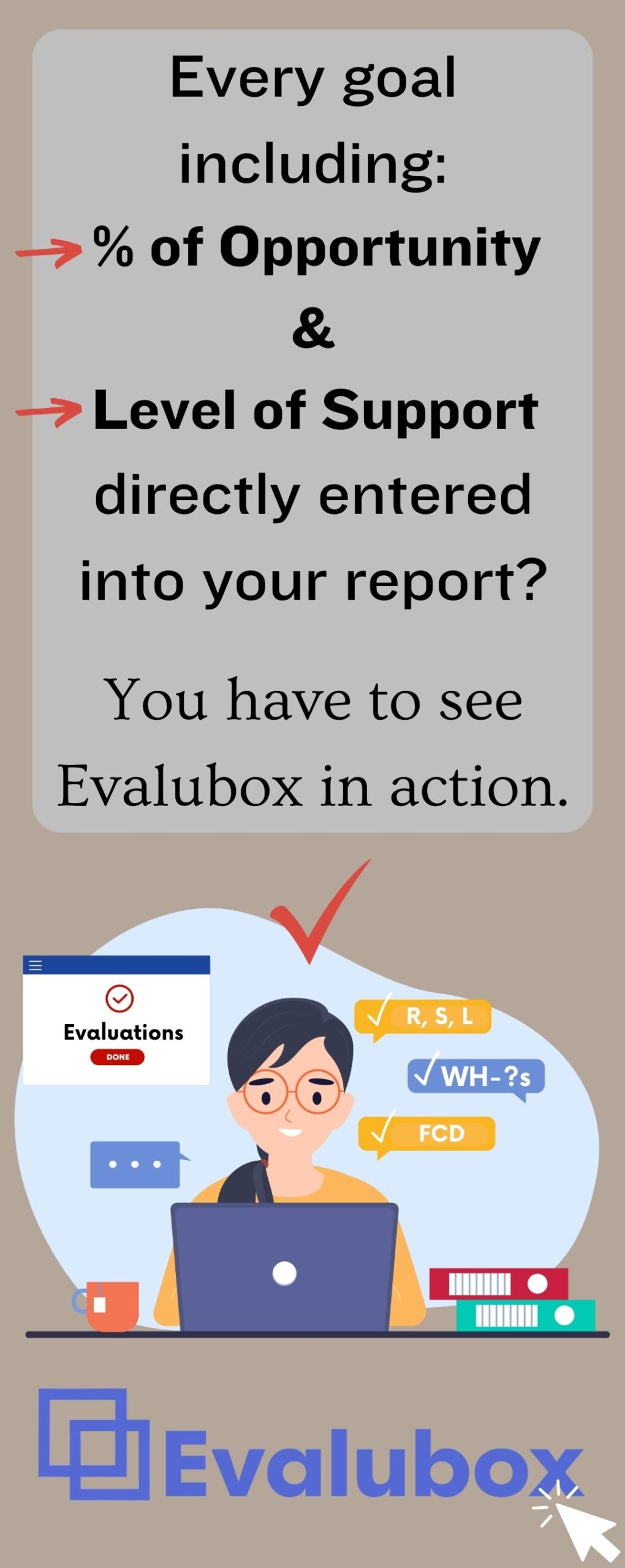
Choose the right goals for your bilingual learners!
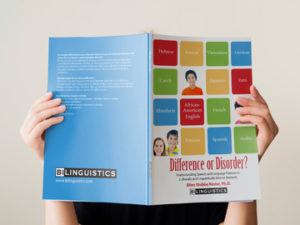
Developmental Speech and Language Norms for Spanish and English E-book
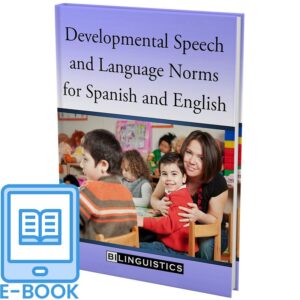
Blog Sidebar
Sign up for weekly essays to improve your SLP life and practice!
And get a complimentary continuing ed. course & e‐book on Communication Disorders.
Find us on:
Ready to chat? Book a call with us!
- Jan 23, 2023
Speech Goals & How to Meet Them
Updated: Jun 30, 2023

If you’ve been given a speech and language evaluation or progress report lately, you may have seen goals for your child’s speech and/or language therapy. These therapy targets are meaningful statements, written in a specific way that guide speech and/or language treatment. Below is your complete guide to speech and language goals including: what they are, why we write them, where they come from, and how to meet them.
Answers to our most-asked speech goals questions:
What are speech goals.
Speech goals are specific targets for the child’s speech and/or language skills during treatment.
Where do they come from?
Speech therapy goals are created from a variety of factors including: parent/caregiver concerns, formal and informal testing results, and the speech-language pathologist's (SLP's) expertise.
Why do SLPs write goals?
We write speech and language goals to document objectives in therapy. Goals are unique to each child and are meant to be transferrable between therapists if needed. Just as a teacher leaves their notes to substitute teachers, we SLPs leave notes for both other SLPs and professionals. If other professionals are on the child’s support team (think teachers, OT, PT, reading support), parents often share our reports with them, too! In doing so, everyone knows exactly what we’re working on in speech!
where can I find them?
In our evaluation and progress reports, you’ll find your child’s speech and language goals at the end of the report under the “recommendations” heading. If your child is receiving speech therapy in school or through another organization, check the latest report you’ve received, and ask your child’s SLP if you have any trouble finding them.
How are goals targeted?
Goals are targeted using different methods depending on the area of the goal, research-based evidence, caregiver input, SLP experience, and the unique needs of the child.With toddlers, it may be completely play-based. With speech sound production in older children, therapy may include more drilling during game time. Talk with your SLP to see how they'll uniquely target each of your child's goals!
When are speech goals considered “met”?
Yay! Your child is on their way to meeting their speech goals. If you read the written goal, an accuracy level will be provided and will let you know exactly when a goal is considered "met" or "mastered". See our goal examples below for common criteria levels used to mark "meeting" a goal!
Moving on...
Now that you’ve learned where goals come from, why we write them, and where to find them, let's go over a few examples. Below we’ll provide a few common speech therapy goals you might find in your child’s evaluation or progress report. If your child's goals don’t look exactly like the examples, that's ok too. Speech and language goals cover a variety of areas and should be unique to each child.
Examples of common speech and language goals:
Speech Sound Goal: (Child's name) will produce /s/ in all positions of the word at the sentence level with 90% accuracy, independently.
Language Goal: (Child's name) will use the regular past tense (e.g. " -ed") and the irregular past tense (e.g. "ran") at the conversational level with 90% accuracy given an expectant look and/or extended wait time.
Pragmatic Goal: (Child's name) will participate in conversations of preferred interests, using at least three turns in 4 out of 5 opportunities, when given a visual cue (e.g. conversation train visual).
A note on language:
At Speech SF, we use “approachable” goals and language over “avoidance”. Avoidance goals and language revolve around diminishing a certain behavior or trying not to fail. We’d rather reframe this and encourage the child to work toward a positive outcome (i.e. approachable goals). Approachable goals and language are positive and reflect working toward gaining new skills. An example we use in our language during speech therapy sessions is labeling “new” and “old” sounds, instead of “good” or “bad”. Our goal in using this language is to increase the child’s confidence in their speech skills and to create a positive, encouraging therapy experience.
Speech Sound Production Hierarchy Example:
Sound by itself
In syllables
In all positions of a word
In sentences
While reading aloud** (if reading)
While narrating
When answering questions
In conversation with the SLP
Carryover: Sound in all positions in conversation with a variety of conversation partners and settings
Cuing Hierarchy Example:
Coarticulation: saying it together
Imitation: saying it after a model
Verbal and visual cues
Verbal cues
Visual cues
Gestural cues
Extended wait with/without expectant look
Independently
What's next?
You've learned all about speech goals! We hope this information is helpful when reviewing speech and language report goals. Looking for an explanation of speech and language evaluation, progress, and exit reports? We've got you covered.
Interested in working with us?
- Getting Started
Recent Posts
Speech and Language Diagnoses Explained
3 Benefits of In-Home Speech Therapy You Can't Ignore
Speech and Language Reports Explained
Comentarios
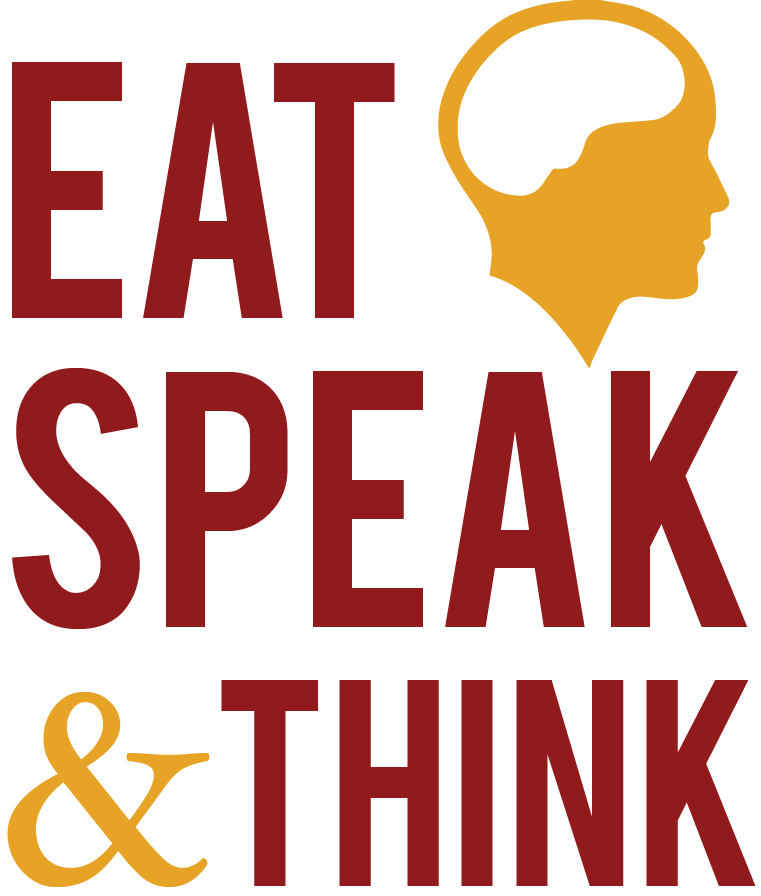
An SLP writes about swallowing, communication, and cognition
- Browse by topic
- Eat (swallowing)
- Speak (communication)
- Think (cognition)
Being an SLP
- Continuing Education
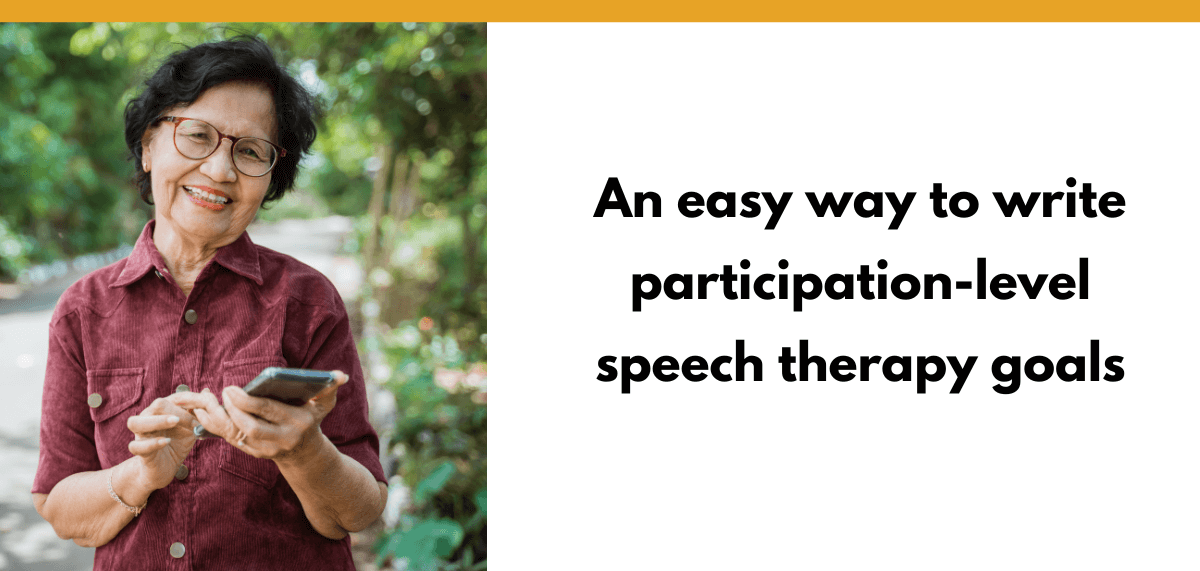
An easy way to write participation-level speech therapy goals
As a field, SLPs don’t tend to write true participation-level speech therapy goals ( Baylor & Darling-White, 2020 ). Our field is still transitioning from a medical model to a client-centered, participation-focused model of service delivery. If this is you, you’re not alone! Hundreds of EST readers have reported that they struggle to find and write meaningful goals in one of my surveys. As a group, we tend to write skill- or activity-based goals and “tack on” a participation element. In this tutorial, we’ll learn how to assess participation using visual analog scales and turn that baseline into a true participation level goal using the SMART goal format.
Free DIRECT download: Guide to VAS for participation goals (cheat sheet). ( Email subscribers get free access to all the resources in the Free Subscription Library .)
- What is a participation-level goal ?
- Why should we write participation-level goals ?
- How can we measure participation ?
- What are self-anchored rating scales ?
- Visual analog scale (VAS) .
- Identify a single participation-level situation .
- Patient defines the endpoints and marks their starting point .
- Turn the VAS into a SMART goal .
- VAS as a therapy tool (optional) .
- Reassess with the same VAS .
- A quick word about practicalities .
- Tell us about a time you used VAS .
- Learn more .
- Related Eat, Speak, & Think posts .
- References .
What is a participation-level goal?
If you know your ICF model from the WHO, you know that its goal is to focus our understanding and treatment of health-related conditions on the impact it has on a person’s life. In other words, we’re supposed to provide person-centered care in a way that has a meaningful impact on our patients’ lives. ( ICF, WHO 2002 )
Speech therapy as a field has not yet achieved this ideal.
Speech-language pathology services in many settings still lean heavily toward a medical model of service delivery, focusing largely on addressing physical impairment and injury… and how those impairments impact the individual’s performance of communication tasks. Baylor & Darling-White, 2020, p. 1336
We are still in the process of moving the field of speech therapy from a medical model to a true person-centered model. Many of us are writing goals that we think are participation-based, but are actually only signaling an intention or hope that our therapy will improve participation-level activity.
This is a common type of goal that does not actually target participation, according to Baylor & Darling-White (2020):
Client will demonstrate speech intelligibility of 90% or higher at the end of 8 weeks to facilitate participation in knitting club. Baylor & Darling-White, 2020, p. 1341
The authors point out that the client can achieve this goal without improving their participation in knitting club. There may be other factors limiting the client’s performance in knitting club, such as:
- Client may feel self-conscious about their changed speech and not speak up.
- Other members of the knitting club by react negatively to the client.
- Perhaps there is background noise that presents a barrier for the client to be heard.
Here is a participation-level goal:
Client will report a level of satisfaction with participation in conversations at knitting club as 80 or higher on a 100 mm VAS by the end of 8 weeks. Baylor & Darling-White, 2020, p. 1341
I don’t know about you, but my mind was blown when I read the above goal! This goal is targeting the patient’s own reported level of satisfaction in a communicative context that matters to them. You can’t get more person-centered than that, right? To be honest, I didn’t even know we could write goals like this before reading this paper.
return to top
Why should we write participation-level goals?
If you read the two example goals above, I bet it’s clear why we should write true participation-level goals:
- Ensures that we’re targeting a goal that is meaningful to the patient.
- Makes it easy to keep therapy activities and materials focused on the goal.
- We can give personalized strategies our patients can implement in a real-world situation.
- Patients are more motivated by seeing the results of their efforts.
- Demonstrates our value to patients, families, the medical team, employers, and payors.
How can we measure participation?
According to Baylor & Darling-White (2020), our primary assessment tool for the participation level should be a patient-reported outcome measure (PROM), whether it’s a published one or one we make with our patient.
Baylor & Darling-White point out two potential problems with published PROMs. First, the PROM may not measure the participation level. Second, even if we find a participation-based PROM, it may not be sensitive enough to capture the improvement we’re expecting.
Fortunately, we have access to valid assessment tools in the form of self-anchored rating scales (SARS) and goal attainment scaling (GAS). These tools offer person-centered assessment tools that serve as their own outcome measures.
- Visual analog scales (VAS).
- Likert scales.
- Goal attainment scaling (GAS).
VAS, Likert scales, and GAS are easy to use in collaboration with patients and family, and allow us to personalize therapy in a meaningful way. I wrote a GAS tutorial recently; read on to learn about SARS.
What are self-anchored rating scales?
Self-anchored rating scales (SARS) are valid, non-standardized assessment tools that allow for patient-centered assessment and measurement of outcomes. “Self-anchored” simply means our patient defines what the endpoints mean. SARS are personalized scales that are sensitive to the changes we hope to see with speech therapy.
SARS are useful when our patient wants to improve in terms of satisfaction, confidence, feeling competent, etc. There are two kinds of SARS: visual analog scales (VAS) and Likert scales. We can measure how our patient feels using either a Likert scale or VAS, whichever resonates better with our patient.
We can use Likert scales and VAS to target any domain of the ICF model (participation, skills, environment, and personal factors). This tutorial is focusing on using VAS to assess the participation level of the ICF. VAS could measure positive emotions or attitudes such as level of satisfaction or confidence. Or the VAS could measure negative emotions or attitudes such as nervousness or frustration.
If our patient wants to use a different measure of participation, such as # of times volunteering a comment during a support group meeting, then we can use GAS. As a reminder, GAS can be a subjective, interview-based PROM or a personalized, performance-based objective measure. I recently wrote a tutorial on GAS and SMART goals .
Before I move on to VAS, just a quick word on Likert scales. Likert scales are typically expressed on a scale of 1 to 5, 1 to 7, or 1 to 10. The patient defines the end-points. Here is an example of a SMART goal using a Likert scale. This particular goal is targeting personal factors (rather than participation):
Client will report experiencing a level of nervousness about communicating in social interactions in work settings as a 3 or lower (scale of 0-10; 0 = not at all nervous, 10 = very nervous) by the end of 6 weeks. Baylor & Darling-White, 2020, p. 1354
Visual analog scale (VAS)
A visual analog scale (VAS) is a 100 mm line in which the user ticks off where they feel they stand. If you’ve used the CAPE-V in voice assessment, then you’ve already used a visual-analog scale.
Here is an example of how to write a SMART goal using the CAPE-V as an assessment tool. This goal is targeting the “skills” domain of the ICF.
Client will demonstrate all aspects of voice quality at an SLP-judged rating of 15 or lower on the CAPE-V protocol by the end of 12 weeks. Baylor & Darling-White, 2020, p. 1353
VAS tutorial in 5 steps
We can write and use visual analog scales (VAS) in 5 simple steps, in collaboration with our patient and/or their family.
- Identify a single participation-level situation.
- Patient defines the endpoints and ticks off where they stand.
- Turn the VAS into a SMART goal.
- Use the VAS as a brainstorming or teaching tool (optional).
- Reassess with the VAS.
Identifying a single participation-level situation is just one part of Baylor & Darling-White’s 2020 model of communicative participation intervention. I strongly encourage everyone read that paper for an excellent tutorial on how to achieve participation-focused therapy. They offer many examples and supporting materials.
1. Identify a single participation-level situation
First, we start off by collaborating with our patient and/or their family to identify a single participation-level situation that they would like to improve. For speech therapy, it would need to be related to communication (voice, speech, language, or cognitive-communication) or swallowing.
This is probably the hardest step.
Sometimes we get lucky and our patient knows exactly what they want to get out of speech therapy. But often, patients tell us that they want to be able to talk normally or have a good memory. Goals written with those wishes in mind are likely going to be broad and generic.
Here are some ideas for how to identify a single situation to target in therapy. This is just a sampling of possibilities.
- What is your most important conversation?
- “Miracle Question”: If you woke up tomorrow and this was no longer a problem for you, what would you notice was different? What would your family notice was different? (Franklin et al., 1997).
- Aphasia Needs Assessment (Garrett & Beukelman, 2006).
- EST’s list of 54 skills and activities .
- Communicative Participation Item Bank (Baylor et al., 2013)
- Memory Mistakes – Multifactorial Memory Questionnaire (Troyer & Rich, 2002)
- Neuro-QoL Cognitive Function Short Form (2nd part).
- Life Interests and Values Cards (Haley et al., 2013).
If you use a PROM to brainstorm situations, you’ll probably still want to write a self-anchored VAS. As stated above, not all PROMs measure participation. Even if the PROM you use does measure participation, it may be too broad to capture the change you expect to see in therapy. (Baylor & Darling-White, 2020, p. 1340)
If your PROM meets your needs, you can jump to step 3, in which you’ll write a SMART goal based on the PROM. Otherwise, you can go to step 2 to create your personalized VAS.
Let’s create an example patient, Isabel. Isabel is a 67 year old widow who has mild anomia following a stroke, which causes her a lot of social anxiety. She goes to an aphasia support group, but she rarely speaks because she doesn’t want to “sound like an idiot.” Isabel would like to feel more comfortable speaking up in her support group.
2. Patient defines the endpoints and marks their starting point
Once we have a single participation-level situation to target in speech therapy, we’ll need to measure our patient’s baseline with VAS (or a Likert scale or with GAS ).
The first step is to have our patient define the parameter they want to measure themselves against. Here are some possibilities (but we’re not limited to these), from Baylor & Darling-White (2020):
- Level of satisfaction.
- Feeling left out.
- Feeling isolated.
- Being a bystander in conversations.
- Comfort level.
- Level of nervousness.
- Level of frustration.
Next, label the endpoints of a 100 mm line, using the parameter that resonates with our patient. Examples of endpoints, just to give you an idea:
- Not at all satisfied – Very satisfied.
- Feel completely left out – Feel not at all left out.
- Feel very isolated – Feel not at all isolated.
- Very nervous – Not at all nervous.
Finally, we ask our patient to put a line through where they feel they are currently. We measure how many millimeters from the left edge their tick mark is, and that is their score out of 100.
Isabel, our example patient, has chosen her endpoints: “Not at all comfortable – Very comfortable.” For her baseline, she has ticked off at 34 mm as measured from the left edge. We could write her baseline score like this:
Isabel reports that her feeling of comfort for speaking during her aphasia support group meetings is 34/100 on a VAS scale, where 0 mm = not at all comfortable and 100 mm = very comfortable.
3. Turn the VAS into a SMART goal
By this point, our patient has identified a specific participation-level situation they want to improve, and we’ve gotten a measure of their baseline participation in terms of their attitude, feelings, or emotions. The next step is to write a participation goal in terms of the VAS the patient just completed.
To write a SMART goal, we have to identify the target outcome that is reasonable for the time frame we have for therapy. We should do this in collaboration with our patient. There are two possible options that I can see. I like the first option better.
- After the patient marks their baseline level, have them mark where they would like to be after 4 weeks of therapy (or whatever your time frame is).
- Once you’ve measured their baseline mark, you could tell them their numerical score and then have them tell you what their target is.
Let’s suppose that we followed the first option. After Isabel marked her baseline (34 mm), we asked her to mark where she wanted to be in 4 weeks. Once we measured that tick, we saw that she chose 77/100 mm. Our SMART goal could then be written as:
Isabel will report improved comfort with speaking in her aphasia support group from her baseline of 34 mm to 77 mm on a 100 mm VAS (0 = not at all comfortable, 100 = very comfortable) in 4 weeks.
4. VAS as a therapy tool (optional)
You can use your personalized VAS as therapy tool, if you’d like. Specifically, you could use it as a brainstorming tool or a teaching tool.
Since our goal is to teach our patient how to problem-solve (and therefore generalize from our target situation to other situations), we can use their VAS to help them learn how to brainstorm.
For instance, we could show Isabel her original VAS and pencil in a line at roughly the 50% mark. We could ask her, what are some things you could do this week to help you get here?
You probably have your own ideas of what Isabel could do to feel more comfortable at taking in aphasia group, but giving space for Isabel to reflect can be very powerful. We’d validate anything she came up with, but we could also make suggestions.
While we’re not likely to go with Isabel to her aphasia support group meeting, we can work on supporting skills, strategies, etc in therapy. Indeed, Baylor & Darling-White (2020) suggest we write a goal for each of the other domains of the ICF: skill/activity, personal or social environment, and personal factors.
So, once we use the VAS as a brainstorming tool, we can help Isabel learn a strategy or technique that she can implement at her next aphasia support group meeting.
5. Reassess with the same VAS
Finally, it’s important to remember to reassess with the VAS for our 30 day reassessments and discharge. We should use the same endpoints, and I’d imagine we’d always want to use a new 100 mm line so our patient couldn’t see where they marked before.
When reporting the outcome of the participation level goal using the VAS, we are reporting a valid individualized, person-centered, patient-reported outcome measure of a life participation situation that is meaningful to our patient.
I’m sure that Isabel did amazingly well with our therapy, so this might be our discharge assessment:
GOAL MET. Isabel improved her comfort with speaking in her aphasia support group from her baseline of 34 mm to 85 mm on a 100 mm VAS (0 = not at all comfortable, 100 = very comfortable) by 4 weeks.
A quick word about practicalities
There is no rule that we have to figure this all out in our first session with our patient. In my experience, it’s well worth the time and effort to find a specific, concrete thing that my patient wants to accomplish in therapy. I try to establish this in the first session and obtain a measure to support my clinical judgement that therapy is indicated. I’ve never had pushback for writing a goal to finish the initial assessment at the next visit.
I don’t see any reason why we can’t write a goal such as the following:
Patient will assist in developing a personally-meaningful goal to improve their participation in a specific to-be-determined context, with the new goal to be established within 2 weeks.
You could probably come up with better wording! While we would hope to meet this goal at the next session, this gives us 2 weeks to brainstorm with our patient, get their baseline self-rating, and write the new SMART goal.
Alternatively, we could choose to develop one or more ideas to bring with us to the second session and see if any of them resonate with the patient. This may work well if we have a good idea of what the patient wants, or it may be necessary due to time constraints.
Another consideration is that we may choose to write more than one participation level goal for the same situation. For instance, for Isabel, we could also write GAS for the number of times she speaks up in her aphasia support group meetings. This would give us two ways to show improvement: her feeling of confidence and how often she is actually speaking.
The final point I’d like to make is that we can choose to work on more than one participation level situation at a time or sequentially. Baylor & Darling-White (2020) suggest we work on one situation at a time, but no more than a few.
Tell us about a time you used VAS
Have you used VAS yet? If so, tell us how it went in the comments below. Do you have a tip you can share? If not, try VAS with a patient this week. We’d love to hear how it goes!
If you’d like to learn more about self-anchored rating scales, GAS, and Baylor & Darling-White’s model of communicative participation intervention, please check out:
- What Really Happens When Patients Go Home – my recorded 2-hour CE course through MSCC (not an affiliate).
- Baylor & Darling-White (2020) – tutorial, templates, guide, and many examples.
- Bard-Pondarré et al. (2023) – tutorial on GAS, templates and examples.
- Logan et al. (2024) and Logan (2020) – tutorial on GAS, templates, examples, patient materials, videos
Related Eat, Speak, & Think posts
- 35+ free cognitive tests, screeners, and questionnaires .
- Write better cognitive goals with 54 daily activities .
- Learn how Goal Attainment Scaling can make SMART goals better .
- Bard-Pondarré, R., Villepinte, C., Roumenoff, F., Lebrault, H., Bonnyaud, C., Pradeau, C., Bensmail, D., Isner-Horobeti, M.-E., & Krasny-Pacini, A. (2023). Goal Attainment Scaling in rehabilitation: An educational review providing a comprehensive didactical tool box for implementing Goal Attainment Scaling. Journal of Rehabilitation Medicine, 55, jrm6498. https://doi.org/10.2340/jrm.v55.6498
- Baylor, C., & Darling-White, M. (2020). Achieving Participation-Focused Intervention Through Shared Decision Making: Proposal of an Age- and Disorder-Generic Framework. American Journal of Speech-Language Pathology, 29(3), 1335–1360. https://doi.org/10.1044/2020_AJSLP-19-00043
- Logan, B. (2020) A practical guide to administering Goal Attainment Scaling. Brisbane: University of Queensland: Centre for Health Services Research – Australian Frailty Network, 2023. https://www.afn.org.au/for-researchers/gas/
- Logan, B., Viecelli, A. K., Pascoe, E. M., Pimm, B., Hickey, L. E., Johnson, D. W., & Hubbard, R. E. (2024). Training healthcare professionals to administer Goal Attainment Scaling as an outcome measure. Journal of Patient-Reported Outcomes, 8(1), 22. https://doi.org/10.1186/s41687-024-00704-0
- Wade D. T. (2009). Goal setting in rehabilitation: an overview of what, why and how. Clinical rehabilitation, 23(4), 291–295. https://doi.org/10.1177/0269215509103551
Featured image by Odua Images on Canva.com .

Lisa A Young M.A. CCC-SLP
Lisa earned her M.A. in Speech-Language Pathology from the University of Maryland, College Park and her M.A. in Linguistics from the University of California, San Diego.
She participated in research studies with the National Institute on Deafness and other Communication Disorders (NIDCD) and the University of Maryland in the areas of aphasia, Parkinson’s Disease, epilepsy, and fluency disorders.
Lisa has been working as a medical speech-language pathologist since 2008. She has a strong passion for evidence-based assessment and therapy, having earned five ASHA Awards for Professional Participation in Continuing Education.
She launched EatSpeakThink.com in June 2018 to help other clinicians be more successful working in home health, as well as to provide strategies and resources to people living with problems eating, speaking, or thinking.
- Surveys reveal myths and truths about home health speech therapy
- Home health SLP survey results may surprise you
- Learn how Goal Attainment Scaling makes SMART goals better
- Quick guide to self-management training in Parkinson's
Be First to Comment
Leave a reply cancel reply.
Your email address will not be published. Required fields are marked *
Your Comment
Your Website URL
This site uses Akismet to reduce spam. Learn how your comment data is processed .

How to Write the Perfect Speech Therapy Goals for Expressive Language
- January 8, 2023
Speech therapy goals for expressive language can be tricky at times, but I’m here to share my best goal-writing and implementation tips. I find it easiest to have a few good core goals ready to go that I can then individualize depending on the student and their needs. Keeping a steady log of these goals makes IEP goal writing so much easier.
To gain access to my IEP goal bank and some of my other favorite freebies , sign up below!
Expressive Language
“Language is a rule-governed behavior. It is defined as the comprehension and/or use of a spoken (i.e., listening and speaking), written (i.e., reading and writing), and/or other communication symbol system (e.g., American Sign Language).” ( ASHA ).
Language can be broken into 2 main areas, receptive and expressive. Receptive refers to listening and reading skills and expressive language refers to speaking and writing.
Speaking includes the following skill areas: appropriate use of phonological patterns, using morphemes correctly, using correct sentence structure, expressive vocabulary, and social language.
Writing included the following skill areas: spelling, grammar and sentence structure, writing vocabulary, and point of view or intended message/purpose.
What is an Expressive Language Disorder?
An expressive language disorder is present when someone has difficulty with sharing their thoughts, ideas, and feelings; or they have difficulty using words in spoken and/or written language.
How to Write Speech Therapy Goals
Goals should be written to be specific, measurable, attainable, relevant, and time-based. Let’s break some of these down.
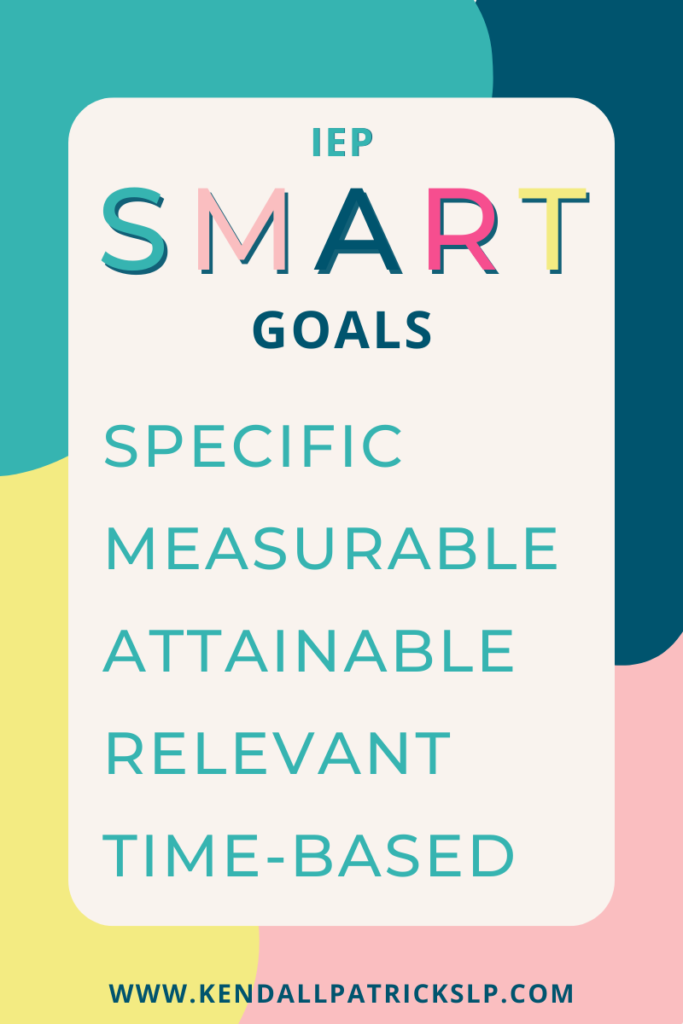
Specific – your IEP goals should be specific and define exactly what you were wanting to be accomplished. They should also specify who will accomplish it and what steps will be taken to accomplish it.
Measurable – your IEP goal should be measurable so that you can track progress and easily be able to tell when they are mastered.
Attainable – your IEP goal should be attainable. This means it’s a goal that the student can meet within a reasonable amount of time. This is typically within the school year or one calendar year. And remember it should be specific to the student. So if that student’s accuracy is currently at 0% an attainable goal for them may be 50 to 60%, not 80.
Relevant – your IEP goal should be related to the big picture. Ask yourself what you are trying to accomplish or what you want the student to accomplish with this goal. Whether it’s gaining access to grade-level material in the classroom or building the foundational skills they need in order to gain those age-appropriate skills. Make sure it is relevant to that student’s specific means, not just based on a norm-referenced test item.
Time-based – last but not least make sure your IEP goal is time-based. Have a date and time in which the goal is expected to be mastered. This could be by the end of the school year, by the next grade level, or by the IEP expiration date.
Goals for Expressive Language
One thing I struggled with the most when I was starting out my first year was quickly and easily writing new IEP goals or updating old goals for students on my caseload. I tended to overthink and write and rewrite my goals until they were just right for my students. I made it so hard on myself. For more on my journey as a school SLP, click here.
Now 10 years in, I have created a goal bank for myself. It includes ideas in my head as well as on paper. These are my go-to starting points when writing an IEP. These basic goals give me a good starting point. When writing my IEPs, all I have to do is go in and individualize based on that student’s needs. Now, is absolutely everything included here? No. Will there always be outliers or students with totally different needs? Absolutely. After all, this is the schools and we just never know what each year will bring. However, we can be pretty sure we’ll need a couple of key goals in the main areas we see year after year.
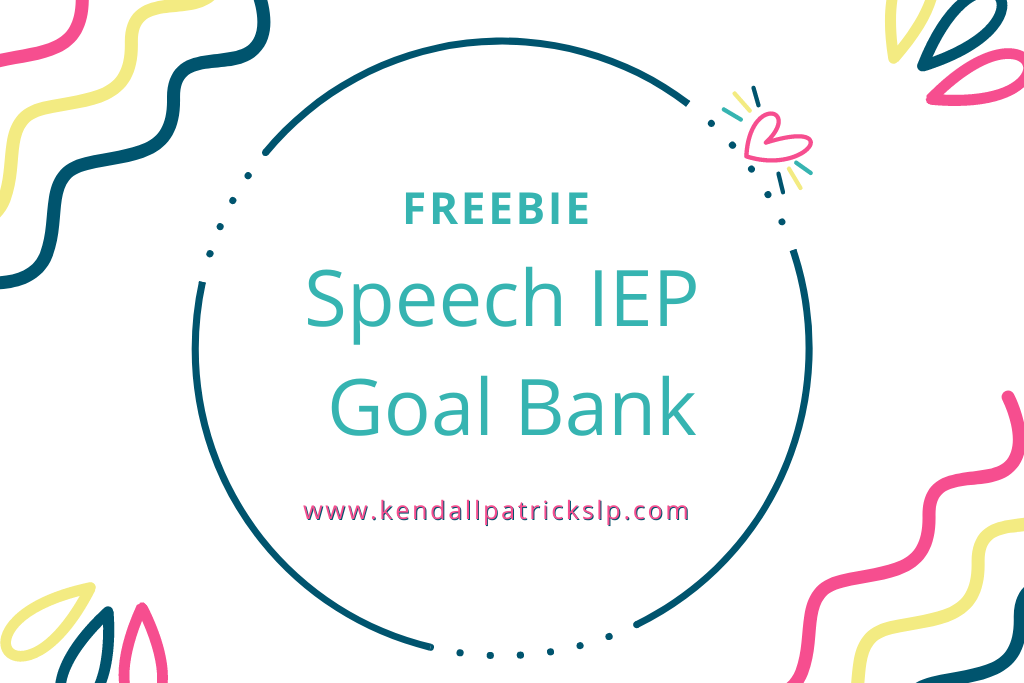
Speech Therapy Goals for Expressive Language Delay
Here is a general outline for some SMART goals:
- By the end of this IEP cycle, STUDENT will ________ in structured therapy tasks with ____% accuracy with visual cues only, as measured by therapy data and observations.
- By the end of this IEP cycle, STUDENT will apply _______ strategies in structured speaking tasks (e.g., answering questions, describing, story retell) in _____ out of 5 attempts independently as measured by therapy data and observations.
Expressive Language Goals for Kindergarten and Early Elementary
A lot of us write and work on “wh” question goals in therapy quite frequently. One mistake I see a lot when reading these goals is that they are too open-ended and not specific enough. There are so many different types of “wh” questions as well as ways to teach them. I like to initially write my goals to work on one or two types (e.g., “who” and “what” as they are earlier to develop) in the context of a thematic unit. So specifically teaching types of answers to who and what questions and the vocabulary needed.
Then I move on to where, when, why, and how questions. These are more complex and can have different types of answers as well. For example, “where” answers can be specific locations (e.g., Florida, grocery store) or prepositional phrases (e.g., under the chair). How questions are typically the most complex and include other needed language skills as well. Skills such as describing (e.g., “How does it feel?”) or sequencing (e.g., “How do you build a snowman?”).
Here is an example of a basic “wh” question goal:
- During structured therapy tasks, STUDENT will answer “who” and “what” questions related to a thematic unit with 80% accuracy as measured by therapy data and observations.
For expressive vocabulary goals, I might write something like this:
- During structured therapy tasks, STUDENT will express word relationships (e.g., categories, functions, similarities, differences), given a sentence starter, with 75% accuracy as measured by therapy data and progress monitoring.
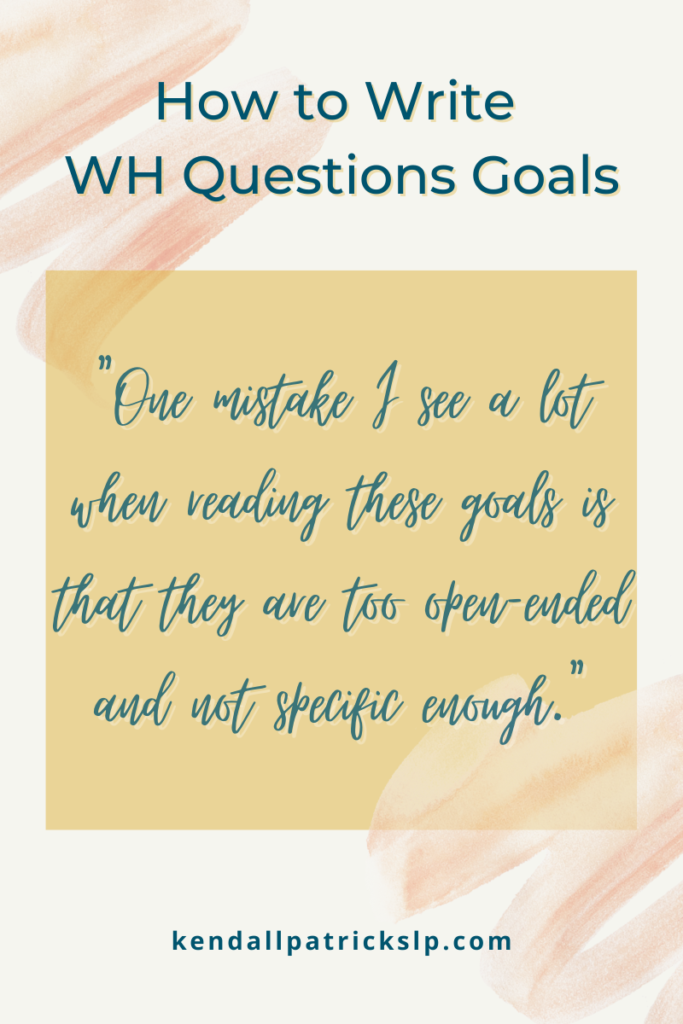
Expressive Language Goals for Upper Elementary
When writing vocabulary goals, I like to focus on the implementation and use of strategies instead of just focusing on learning new vocabulary words. I feel it is more important that the students we work with learn strategies. Strategies that they can apply to any material and any new vocabulary word instead of just memorizing words that they’ll probably forget later on.
Here is an example of how I write some of my goals:
- During structured therapy tasks, STUDENT will apply an organizational strategy to provide 3 to 4 details when defining/describing presented vocabulary as measured by therapy data, student product, and/or progress monitoring.
Another way I work on and write goals for “wh” questions is in relation to an orally read story. I typically work on these skills within a unit to address story narrative goals as well.
Here are some examples of these types of “wh” questions and a general retell goal:
- During structured therapy tasks, STUDENT will answer “where” and “when” questions related to an orally presented story with 80% accuracy as measured by therapy data and observations.
- STUDENT will apply an organizational strategy to express 3-4 story grammar parts (e.g., character, setting, problem, ending) following an orally presented story in 3 out of 4 attempts as measured by therapy data and progress monitoring.
Speech Therapy Activities for Expressive Language
Now that you’ve written your goals for expressive language, it’s time to plan your expressive language activities to go with them. There are so many options for activities to develop expressive language skills, these are some of my go-to ones. When it is time to write new goals, the first thing to do is get a baseline. When it is time to update old goals, make sure you have a recent progress monitoring point.
Language Baselines – Get the Most Bang for Your Buck!
One of the best ways to gather a variety of baseline data in a simple measure is to get a narrative retell sample. During the first couple weeks of my back-to-school speech therapy sessions, I spend one day getting narrative samples from all of my students identified with a language delay or disorder. What does this look like? You may ask… or Who’s got time for that?? It’s not as daunting a task as it seems, I promise!
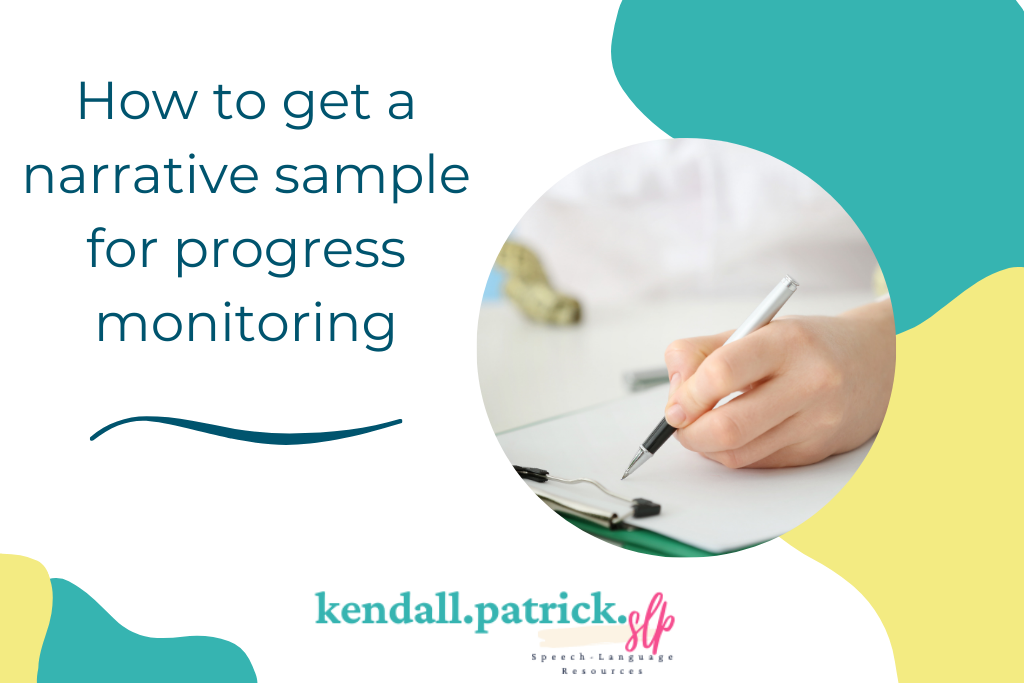
This is what I do:
Step 1: Choose a book with a clear complete episode (or multiple episodes). This includes a character, setting, initiating event/problem, feelings, action sequence, consequence, solution, and ending. (For speech therapy activities for older students, you can also look at higher-level components such as dialogue, embedded episodes, inferences, etc.).
Step 2: Read this book to each of your groups for the day (without additional questioning, prompting, or guiding). That is so hard, I know! Let them know you will be asking them to tell you the same story at the end. So they need to listen closely.
Step 3: After finishing the story, pull each student aside and ask them to tell the story back to you as well as they can. Do not prompt them. Encourage them to do their best while reminding them it is okay if they do not remember everything.
Step 4: Write down everything they say. Make sure to write it exactly as they have said it so you can mark grammar errors as needed.
Step 5: Review responses and mark the components the student has included and the ones they have left out. Also, mark any grammatical errors and any transition words that they used.
And that’s it!
In one therapy session (with a little review time afterward) you have an overall picture of your student’s language content – vocabulary, sentence structure, and grammar. This should give you a place to start for the year in therapy based on the language components that were left out (e.g., character names, feeling words, correctly sequenced actions, etc.), weak or repetitive vocabulary, and a variety of sentence structure (e.g., correct grammar use, past tense verb use, pronoun use, transition words, complex structure, etc.) or lack thereof.
Another must in my early back-to-school speech therapy sessions is a vocabulary baseline measure. We all have loads of speech therapy vocabulary activities, but how well are we collecting data and measuring growth as we are teaching these vocabulary skills?
This is how I do it:
Baseline Measure: Ask the student to describe 3 items in a variety of categories (e.g., cat, banana, bus; lion, chair, airplane, etc.) and write their response. I mark their responses based on the variety of details they give (e.g., category, describing words, location, parts of a whole, composition, function) and score out of a possible 6 attributes. Note: even if they name 7 parts, I give one point as it is just to mark that they included this type of attribute. This is based on the vocabulary hierarchy and how we develop language. I have found that typically, my students with a language delay often provide a function (and sometimes a part) or multiple words in these areas but no other attributes as they have not yet developed these skills.
This measure gives me an excellent place to start in therapy when focusing on vocabulary interventions. I address teaching the different attributes (e.g., category activities, work on adjectives) as well as how to include the variety of attributes as a whole. In my district, we all have access to an Expanding Expression Tool by Sara Smith (which I LOVE and use all the time) but you can use a variety of activities to address these skills. Side Note: If you ever have the opportunity to attend one of Sara’s presentations and/or purchase her kit, do it! She is amazing and has so many great ideas for therapy with the research to back it up.
I then use the same 3 words to progress monitor students in order to mark progress and update goals when needed.
Wordless Picture Books for Speech Therapy Goals for Expressive Language
I love using wordless picture books to work on describing and narrative retell. Because you are not stuck to one storyline or one main character, you can work on multiple different storylines and take your therapy targets in any direction. These are some things I might target with a wordless book:
- Character description (use visual strategies and/or graphic organizers)
- Setting description (use visual strategies and/or graphic organizers)
- Sequenced events – use the pictures to guide the story, have a student make it up, generate a story together, or you tell the story and have students retell it using the pictures
- Transition words
- Feeling words – use facial features to describe how they may be feeling
- Drawing conclusions
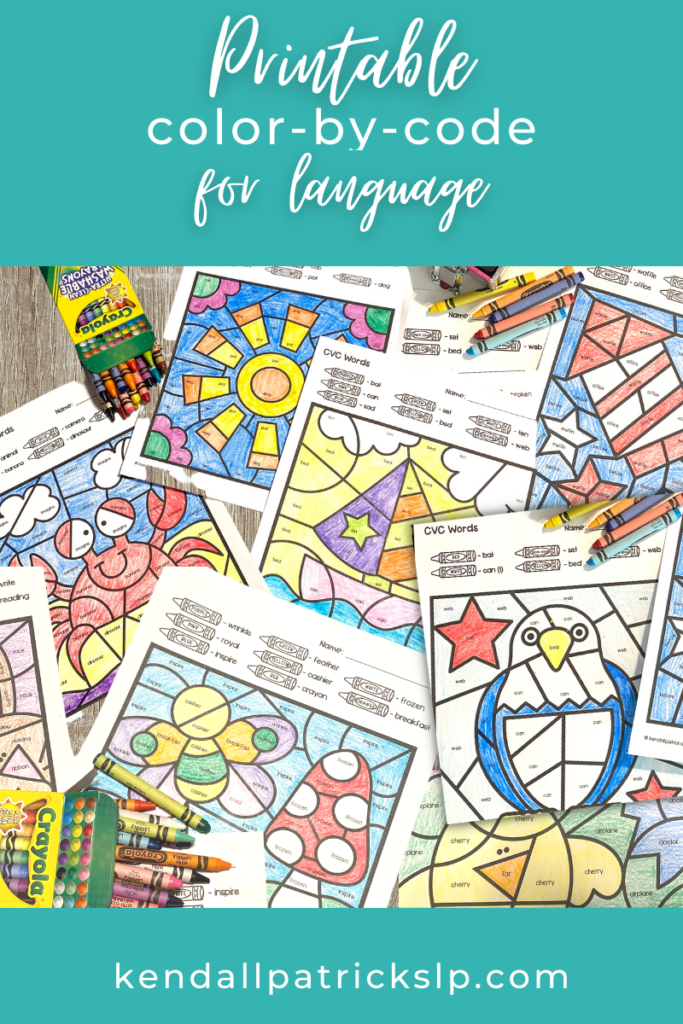
Coloring Pages Speech Therapy Goals for Expressive Language
My kids love to color so I developed these color-by-code language sheets that can be used in mixed groups or any therapy session to target a variety of goals. They come in many different themes and I am creating new ones all the time. Check out my articulation color by code sheets while you’re over in my store too !
For more speech therapy goals for expressive language ideas:
Goal Bank from The Speech Express
Expressive Language & Written Language Delays from Talk SLP LLC
Middle School Language Goals from Inventive SLP
https://www.asha.org/practice-portal/clinical-topics/spoken-language-disorders/language-in-brief/
https://www.asha.org/public/speech/development/speech-and-language/
Don’t forget to sign up with your email address here to get access to my free library (growing all the time) full of some of my goodies made exclusively for my followers.
I hope you found some of these ideas helpful and can use one or more in your therapy room. Please leave a comment or shoot me an email if you want to share some of your favorite speech therapy goals for expressive language.
One Response
- Pingback: Why Do Our Speech Therapy WH Questions Techniques Need to Change for the Better? - kendall.patrick.slp
Leave a Reply Cancel reply
Your email address will not be published. Required fields are marked *
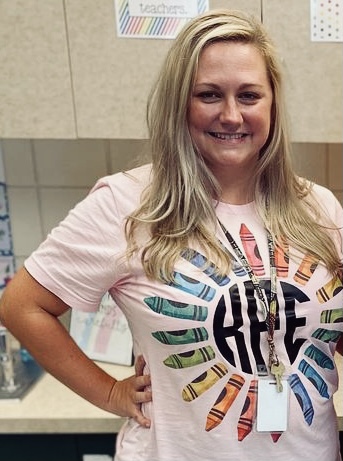
hi, I'm Kendall!
I help SLPs like you with planning, resources, research, and materials so that you can spend more time enjoying your therapy time and less time stressing about planning and materials.
Learn more about me and how I can help you here .
Let's Connect!
Access to the freebie library.

How to Write Speech Therapy Goals
- Megan Peveto M.S. CCC-SLP
This week I started a small video series on evaluating toddlers through tik-tok and instagram . This all stemmed from a question I posed at the beginning of the week – how do we write speech therapy goals for toddlers?
Toddler Speech Therapy Evaluations
When it comes speech therapy evaluations for toddlers, we have to look beyond the standardized assessments. I’ve given many of them over the past few years and if there’s anything I’ve learned…it’s that sometimes, they are just a score.
Now, don’t get me wrong here- you can also get a lot of information from these standardized testing materials and they are often a way to see a toddler’s areas of strengths and weaknesses. Plus it’s typically one of the easiest ways to get insurance to approve speech therapy visits.
Creating Speech Therapy Goals
I don’t always rely on those scores to produce accurate goal writing criteria. Here are 3 important questions that I always include in my toddler evaluations.
- What are your concerns?
- When it comes to speech therapy, what are your expectations?
- How is your toddler currently communicating with you?
These 3 questions can give you a lot of information when it comes to the overall toddler. This information can then be used to write communication goals. Base your goals off where the toddler’s communication skills are currently – the ultimate outcome being to build on those current skills to increase communication. It can be really easy to get bogged down in the small details (grammar usage, sentence structure, verb tense, etc.). Don’t do that. Focus on the larger picture (overall vocabulary, ability to answer questions, ability to make requests, get their needs met etc.) versus small details (at least at first) helps the toddler to succeed and make progress. Once they master those broader concepts then you can move into the smaller details.
Concern Validation
Asking a parent directly what their concerns are reassures the parent that their concerns are valid. This is so important because often times parents feel defeated, blame themselves, and just have no idea what else to do. Sometimes we just need someone to tell us: I see you. I see your frustrations and concerns and they are valid. We are going to figure out a game plan and help you and your toddler communicate more effectively. No matter what, it is going to be okay.
Never ever under estimate the power of human kindness.
What can I expect?
Talk to the parent about what they are expecting from speech therapy services. What is their long term goal? A lot of times, they truly don’t have a complete understanding of all that speech therapy encompasses. Our scope of practice is huge and we can offer so many strategies and ideas to help. It also gives parents a chance to stop and think about what their actual goals might be.
Toddler Communication Skills
Finally, when considering how to write speech therapy goals, consider this: what their current communication skills are: do they vocalize, use gestures, signs, word approximations, behaviors? This question can get overlooked easily because we, as evaluating therapists, go in and immediately begin our observations and note taking. We do not realize that parents may not understand that their toddler is communicating, just not in the way they expect! This can make all the difference too when it comes to follow through with strategies.
So when it comes to toddler evaluations, goal writing, treating… what are your areas of concern? Have you found strategies that work? Let me know!
Looking for ways to expand your toddler’s vocabulary ? Check out this blog post!
Leave a Reply Cancel reply
Your email address will not be published. Required fields are marked *
Save my name, email, and website in this browser for the next time I comment.
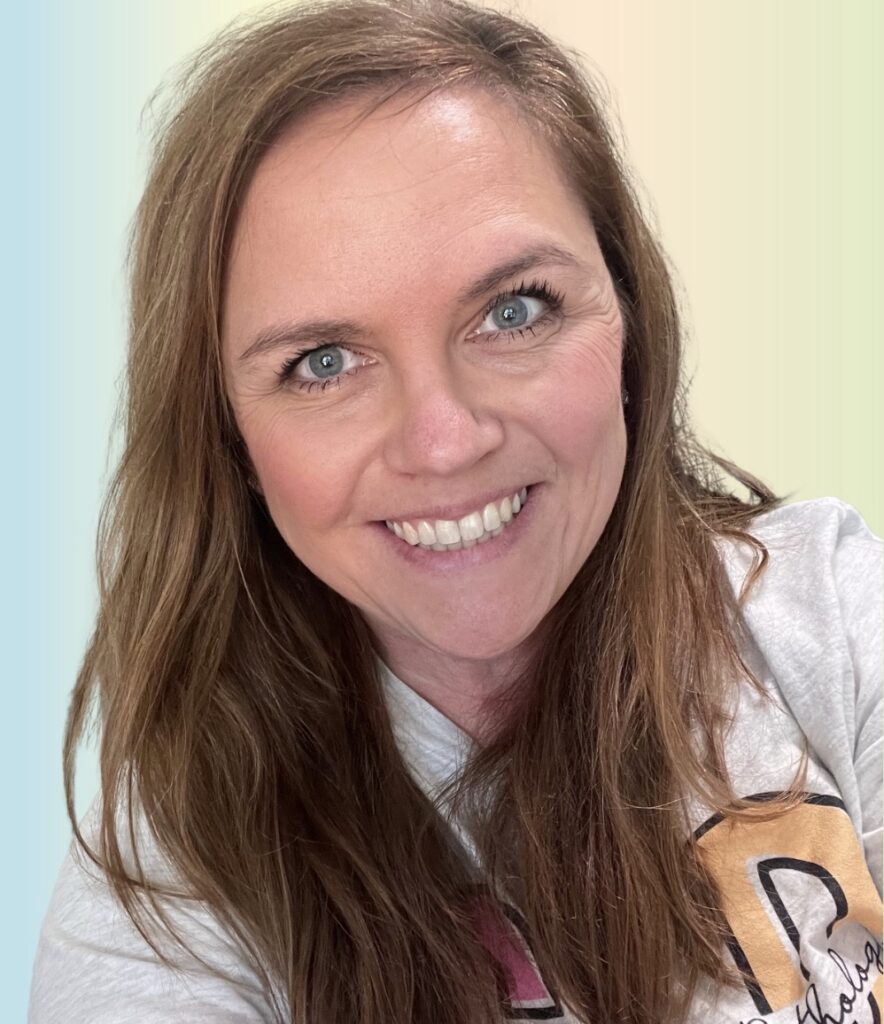
Hey my friend!
My name is Megan Peveto and I’m The SLP Next Door! I am here to share how I empower providers, educators, and parents to increase communication and development in toddlers and preschool through easy-to-use methods and multipurpose resources.
This is your one stop shop for toddler communication.
Let's Connect!
Join the neighborhood.
Please Note : advice and ideas created on this website are designed to supplement your day-to-day activities with your child. They do not replace speech therapy interventions specially created by speech pathologists. If your child is struggling to communicate please contact your pediatrician, local school district special education program, or local Speech Language Pathologist.
A website dedicated to helping SLPs use PLAY-BASED speech and language therapy so they can save time and have fun!
Quick tips for writing speech and language iep goals.

When writing speech therapy IEP goals, I don't think any SLP has ever said:
Writing goals is fun!
I love writing goals!
Writing goals is my favourite thing to do!
If you haven’t - you aren’t alone. Writing IEP goals is one of the most daunting tasks of being an SLP. It can be time-consuming, overwhelming, and exhausting.
I want to share five quick tips on how you can make IEP goal writing EASY!
Write one target per goal. Don’t put multiple sounds or concepts into one goal. Write exactly what it is that you want the child to learn. This makes goal writing so much easier because you aren’t cramming way too much information into one little goal. This will also help parents understand what you are targeting and will help you summarize a child’s progress with that particular goal quickly and concisely.
Use a template . Creating a text that you can use as a starting point for different goals. ‘Filling in’ a goal template will help you save time. For example: By DATE, NAME will SKILL with PERCENTAGE accuracy with TYPE/LEVEL of cueing. Simply fill in the missing information.
Don’t choose goals from a standardized test. Think FUNCTION. Choose goals that will be applicable to a student’s everyday life.
Use a long-term goal and a short-term goal. This is very helpful when explaining goals to parents and teachers. Why? Because long term goals are often easier to understand for non-SLPs. For example, a parent might not understand why you are targeting ‘third-person singular verbs’ (short term goal), but will likely understand why you are targeting the long-term goal of using age-appropriate grammar.
Create an IEP goal bank. Write your most commonly used goals in one place for easy reference. Make it easily editable, so you can use it over and over again for years to come.
Want to save time and find a resource that takes all of these tips into consideration?
After 12 years as an SLP, I took all of these tips and created a HUGE TIMESAVING resource for myself: Preschool Goal Bank with 340 Goals.

This MASSIVE Preschool Speech and Language Goal Bank includes IEP goals for speech and language, including: receptive language, expressive language, social language, early language, play skills, classroom participation, speech sounds, wh questions, language processing, rhyming, and behaviour. It is editable, customizable, and can be used over and over with all of my students. It has completely changed my (and other SLPs) goal-writing game!
Here is what other SLPs are saying:
On August 18, 2020, Olivia C said, “ Writing quality goals takes me so much time and energy but having this resource has really been a lifesaver! I really trust Anna and her years of experience and I feel so much better knowing I have this goal bank to rely on when I need it, which is all of the time!"
On February 19, 2020, Katherine C said, “Even after several years of being an SLP, I can still get stuck when it comes to writing goals. Hallelujah for this resource! I can find appropriate goals quickly and I don't have to spend precious time trying to generate just the right goal with just the right wording! Thank you for making my life as a therapist just a little easier this year!!!”
Do you need this IEP goal bank in your life?
Head to my store and grab it here., want more tips, tricks, and play-based freebies, delivered right to your inbox, sign up for the anna dee slp newsletter.

- Speech Therapy Tips and Tricks
Related Posts
The Ultimate List of the Best Toys for Speech Therapy
How to use Movement Cards in Speech Therapy
How to use Counters in Speech Therapy
- Skip to primary navigation
- Skip to main content
- Skip to primary sidebar
- Skip to footer

The Orange Effect Foundation
Empowering children and young adults with speech disorders
How to Write Excellent Speech Therapy Goals
October 15, 2020 By Orange Effect Administrator

The goals of speech therapy are what drives the child’s progress and determine the course of therapy. With this being said, it is quite clear that writing great speech therapy goals matters more than people think.
The goals are important for each participant in the therapy as you all get a chance to measure the success and exude motivation when the set objectives are achieved. But what if that doesn’t happen? What if you set the bar too high?
That’s exactly why the goal-setting process is a delicate matter that demands full attention. Hopefully, the following tips will provide you some clarification on what you should focus on if you wish to write excellent speech therapy goals.
Assess Child’s Situation and Assign Goals Accordingly
Talk with the child about skills that matter to them. Getting a grasp of what they find important and what are their communicative needs can help you prioritize goals for each child’s case.
For example, if the family wants to see improvement in the school setting, look into the child’s tests from schools, and compare them with the SLP assessment results. Drive information about the child’s speech challenges from various sources to pinpoint their most important communication issues and needs.
When it comes to older children, have an open talk with them that will address their personal priorities and desires.
While children may have similar speech disabilities, their needs and life settings aren’t the same. Therefore, the goals need to be personalized for each and every one of them.
Determine the Time Frame
A time frame is necessary for encouraging the child to push through their insecurities and unwillingness and keep up with the goals.
Based on your assessment and goals that lie ahead, set a time frame for each goal as well as for overall therapy. For example, you can write goals that can be achieved within two weeks but also plan to reach the ultimate therapy goal within a year.
“ What’s essential when it comes to time is to be realistic. Rather than impressing children with improbable goals or dreaming of speedy progress, do your research to set an attainable time frame,” says a speech therapist and contributor writer at BestEssaysEducation , Samantha Partridge.
The problem with short time frames that make goals harder to reach is that they can demotivate the child or put too much pressure on him. You want the goal’s time frame to inspire the child to reach for bigger and better improvements, not to hold him back.
Be As Specific as Possible
Determining the goal as “the child will improve his expressive skills” doesn’t say much. Which expressive skills? Over what course of time? With the help of which methods?
Once you have a clear perspective of the child’s situation and what he or the family want as the outcome, you need to polish it up.
For example, for younger children, you might need to add more visual tools like Subjecto flashcards or encourage more writing in addition to speaking. Specify such details within each goal.
Also, the use of technology in speech therapy has become more popular. If you plan to implement some additional methods such as telepractice in speech therapy, make sure to write that down within the goal.
Overall, whatever props or cues you plan to use for each goal, include it in the goal-setting process.
Your long-term goals don’t demand such accuracy but detailed short-term goals are what will keep both you and the child focused on achieving it.
Specify the Context within Which You’ll Measure the Goal
The assessment of a child’s progress can be done in different settings.
You can do the assessment in the classroom, therapy, during a conversational speech, and so on. The outcome of the goal will differ based on the setting, so you need to be specific about which setting will be most suitable for each goal.
Depending on the type of skill the child needs to master, adapt the context to help the child test out their progress in the best possible way. You want to challenge them as that will realistically showcase whether the goal is met or not.
Define How You’ll Measure Progress
How will you assess whether the goal has been mastered? Will you use percentage, or will you base it on given opportunities? For example, the child can succeed in 4 out of 6 trials in 3 consecutive opportunities.
Decide in advance on what is the best way to measure the progress. Try to use the same approach for each goal (if possible) to make tracking the results easier and consistent for the child.
You also want to count in the accuracy. The goal can be that the child repeats “r” in medial multisyllabic words within sentences with 80% accuracy and minimal verbal clues.
Taking accuracy into account will give you more control over how you measure progress and what the child needs to work on more.
Match One Goal Per One Issue
Take one step at a time and assign one challenge per goal. That will ensure that your focus is sternly locked in on one issue rather than scattered over different issues that the child needs to overcome.
For example, reading single velar final words to increase the ability to communicate should be one goal. Producing 6 or more words per breath is another one.
If some skills intertwine, you can put them within one goal, but ultimately, try to dissect the issues, separate the goals, and work on them one by one.
This will help the child feel less overwhelmed as they have to battle with one specific issue within each goal. Don’t forget that you want the goals to seem attainable to children, and this is the way to do it.
Final Thoughts
Every child is unique, and speech therapy goals should reflect that. However, there are some general writing tips such as these that can help you narrow down what you need to focus on. With a clear focus and set goals, speech therapy can be something that children look forward to. Achieving those goals can give them wind beneath their wings to invest more and do better in their speech therapy.
Bridgette Hernandez
About Orange Effect Administrator
Meet the Voice Behind the Orange Effect Foundation - your go-to source for valuable insights and resources! The Orange Effect Administrator curates and shares posts tailored for speech therapists, passionate OEF supporters, grant recipients, and parents of children facing speech disorders. Explore our blog to stay informed, inspired, and connected with our vibrant community.

17040 Amber Drive Cleveland, OH 44111 [email protected]
Copyright 2024 orange effect foundation. all rights reserved..
Explore Jobs
- Jobs Near Me
- Remote Jobs
- Full Time Jobs
- Part Time Jobs
- Entry Level Jobs
- Work From Home Jobs
Find Specific Jobs
- $15 Per Hour Jobs
- $20 Per Hour Jobs
- Hiring Immediately Jobs
- High School Jobs
- H1b Visa Jobs
Explore Careers
- Business And Financial
- Architecture And Engineering
- Computer And Mathematical
Explore Professions
- What They Do
- Certifications
- Demographics
Best Companies
- Health Care
- Fortune 500
Explore Companies
- CEO And Executies
- Resume Builder
- Career Advice
- Explore Majors
- Questions And Answers
- Interview Questions
24 Best Personal Development Goals For Work + How To Achieve Them
- On The Job Training
- How To Challenge Yourself At Work
- Short And Long Term Goals
- How To Set Smart Goals
- Performance Review Examples
- Personal Development Goals
- Why Am I So Indecisive
- Self Performance Review Examples
- How To Get A Promotion
Find a Job You Really Want In
Personal development goals can set a person who is professionally successful apart from those who are not. Personal development goals are designed to help you improve yourself and increase your value as an employee.
Creating plans and development goals for self-improvement in your personal life positively impacts your career trajectory and overall professional success. Because of this, we’ve put together a list of 24 example personal development goals.
Key Takeaways
Setting and reaching personal development goals in and outside of work help you become more successful.
Improving your networking skills, learning a coding language, and waking up earlier are three examples of personal development goals.
increased motivation and more opportunities for advancement are some benefits of setting personal development goals at work.

What are personal development goals for work?
24 examples of personal development goals, benefits of setting personal development goals for work, what are smart goals, personal development goals faq.
- Sign Up For More Advice and Jobs
Personal development goals for work are goals you set to improve yourself and become more successful in your job. Your career doesn’t just blossom into a success story overnight. It takes reaching milestones you set for yourself inside and outside of work.
Personal development goals are important to improve a particular aspect of your character or abilities. Either short or long-term, development goals need to be realistic roadmaps for how you plan to achieve specific objectives that launch your career into where you’ll be five years from now .
They enhance the person that you are and make your candidate profile more impressive to employers.
Find and complete a challenge. Completing a professional challenge is a great short-term goal because it hits every requirement of the SMART framework. Challenges are specific goals that can be measured by completion and are achievable and relevant to your career.
Professional challenges also are presented with a time-frame for completion and demonstrate initiative to your employer.
To find a challenge at work , speak with your supervisor about where your help could be used and if any tasks would be well-suited to your abilities. This can help you find a challenge that’ll expand your career or job responsibilities.
Alternatively, you can find challenges to overcome outside of work to encourage personal development.
Improve your networking skills . Networking is an essential aspect of advancing your career. You need to build and maintain positive relationships with co-workers, supervisors, and other professionals in your field. Choosing to work on your networking abilities can be an excellent personal development goal that can impact your career success.
Commit to exercising five days a week. Even though exercise doesn’t seem directly related to career growth, it can improve your performance and energy levels. You can’t complete your job responsibilities unless you’re healthy, and exercising can help maintain your health. Developing an exercise routine can be one of the more enjoyable personal development goals because there are many activities to choose from.
Learn a foreign language. Adding fluency in a foreign language to your resume repertoire can be very attractive to potential employers because you provide a skill that they may not have in their company right now. Being able to communicate in a second language opens up a free flow of ideas that can expand and improve a business.
Learn a programming language. Similar to how learning a second spoken language can help boost your career, becoming fluent in a programming language can also strengthen your professional profile.
Programming is a very in-demand skill. Even if your job isn’t centered around computer science, having background knowledge of it can be useful in handling your position’s responsibilities.
Examples of programming languages include:
Write in a journal every day. Keeping up with a journal helps you with introspection and self-awareness. This is beneficial for your mental health and personal growth and can contribute positively to your career.
Writing in a journal every day shows you what aspects of your life you’re happy with, where you can improve, and how you’re progressing. You can take this inner knowledge and growth back to your job performance to promote your career advancement.
Meet new people. As a career site, we’ll start by saying that meeting new people affords you more networking opportunities which will open up new career avenues for you.
But more important than that, meeting new people broadens your worldview and exposes you to new ways of thinking. Developing a relationship from scratch is the kind of activity that keeps your mind from going stale.
Take an online class to improve your soft skills. Soft skills can be just as important to succeeding in your career as your position’s technical abilities . They set you apart from other candidates and improve the quality of your work.
This makes them a good alternative for professionals looking to take on a personal development goal to improve their work performance. There are a bunch of courses online that can help you improve in a variety of soft skills.
The great thing about choosing this outlet for a goal is that the class has a defined schedule and specific measurements for success, like passing tests.
Examples of courses for improving soft skills Include:
Communication Skills (Coursera)
Communication And Teamwork Skills (edX)
Logical And Critical Thinking (Futurelearn)
Productivity And Time Management (Udemy)
Improve your typing speed. Typing speed has always been crucial for people in administrative positions. With the current increase in remote workers , it’s more important than ever for all professionals to be experienced in typing quickly and accurately. Improving your typing speed can help your productivity and make it easier to be successful in working remotely .
Earn a raise by next year. Earning a raise at work is a popular goal among professionals because it rewards them for their hard work throughout a given timeframe with monetary compensation. A pay raise can benefit your personal life and enhance your career at the same time.
Deciding that you want to earn a pay raise by next year is a goal that follows a SMART framework because it has specific, measurable guidelines and has a time expiration of a year. It’s a realistic endeavor to receive a raise after putting in the effort over this timeframe.
Put $50 in your savings every week. Saving money builds skills like diligence and restraint, in addition to bulking up your bank account. Putting aside $50 a week will bring in over $2,500 by the end of the year. That money can be used to invest in learning a new skill, investing in a stock with a steady return, or taking a deserved vacation after a year’s worth of hard work.
Volunteer with a local charity eight hours per month. Volunteering can enrich your personal life and develop your interpersonal skills to improve your work experience. It allows you to help your community, which positively impacts the people around you and feels good.
Wake up an hour earlier every morning . Time is the most valuable commodity we have, and every extra minute we can scrounge up is precious. Waking up an hour earlier everyday can give you time to accomplish a variety of beneficial tasks, such as going for a run, making a healthy breakfast, or going in early for work.
If you’re already on an early schedule, it can seem unfeasible to wake up at 5 AM, but give it a try for a couple of days. You might notice a positive impact on your daily productivity.
Pay off your credit card debt in the next year. Credit card debt can be a looming cloud over many people’s financial success. It’s easy to get into credit card debt, and for most, difficult to get out. However, if you decide to hone in on resolving your credit card as a personal development goal, it can make the process faster and more effective.
Practice mindfulness. You don’t have to get into meditation or yoga to be more mindful (although those two routes are popular for a reason). Being mindful is about focusing on the present moment, being aware of your body, your thoughts, and your surroundings.
Mindfulness is like a muscle in that the more often you exercise it, the stronger it becomes. When you find yourself in an overwhelming situation, the ability to step back and assess the circumstances and your own emotional response from an objective perspective is powerful.
Receive more leadership responsibilities at work within the next six months. Deciding to work on getting more managerial responsibilities in your job can be an excellent professional development goal.
This is a goal that you should discuss with your supervisor to see where you need improvement to be offered more leadership roles and put yourself on their radar when opportunities arise to showcase your skills. Usually, your supervisor will be able to give you a clear roadmap for how to achieve this goal.
If they don’t have any input, consider taking some online courses in leadership skills to improve your abilities ahead of time.
Examples of leadership skills courses include:
Leading People And Teams (Coursera)
Exercising Leadership (edX)
What Great Leaders Do (Alison)
Speak publicly. Going out of your way to improve your public speaking ability is a great goal because you’ll be developing practical skills while also boosting your confidence. Even if your job doesn’t involve speaking with clients at all, look for ways to speak up more during internal meetings or offer to lead presentations for your team.
Take up a new hobby. Spending your free time doing a worthwhile hobby that adds value to your life can help manage your work-life balance . No matter how much you love your career, work can get stressful.
Drop a bad habit. Shaking a negative aspect of your life can be just as beneficial as establishing something positive.
Read a book relevant to your field. Setting a goal to finish a book relevant to your field fits into the SMART structure because it has a definitive end-point and outlines a specific goal.
Work on stress management. Allowing yourself to get overwhelmed by stress at work can negatively impact your performance in a way that your supervisor will likely notice. People in high-stress positions rely on stress management techniques to get through their workday.
If you decide to work on stress management as a personal development goal, identify your specific difficulties with handling stress. Once you know what you need to focus on, try a few stress management methods until you find the right option for you.
Upgrade your LinkedIn profile in the next month. A good short-term goal that can have a powerful impact on your career growth is committing time to upgrade your LinkedIn profile. It may be a drag, but it’s a necessary evil if you want to improve your professional network.
Build a website in the next six months. When potential employers or clients in the future go looking for you, the first thing they’ll do is type your name into Google. Give them what they’re looking for in the form of your website. Creating a professional website is a great way to strengthen your digital presence.
Successfully change your career by next year. If you’re unhappy in your career and looking to make a change, this should be the long-term personal development goal that you focus on. It could take years to accomplish, but it will improve your professional satisfaction and set you up for a career in an industry you’re truly passionate about.
Some tangible benefits of setting personal development goals for work include:
Clarity. When you approach your job without personal goals in mind, the experience doesn’t tend to add up to much. But when you bring a clear sense of direction to your job, you’ll know what to prioritize, how much time to spend on each task, and even glean new insight on how to get your work done more efficiently or effectively.
Increased motivation. It’s hard to feel excited about tackling another day at work if it just feels like a constant slog of never-ending, repetitive tasks. Setting personal development goals helps break the monotony by giving you a way to “level up” at work. This sense of progression should also ultimately improve your sense of meaning at work.
Improved mindfulness. Sometimes, a rut at work can get so bad that you forget entire days at the office.
More opportunities for advancement. When you set goals at work, the quality of your output is almost guaranteed to improve. If you’re working with a good supervisor, they should automatically take notice of your improved performance. If they don’t, you can always let them know about your personal goals, as well as your progress with them.
The SMART goals framework was created to aid with the tough task of setting achievable goals that further your career.
For example, while setting a goal may sound straightforward, many people find it difficult. Many individuals set over-ambitious New Years’ resolutions and then give up by January 3rd.
SMART goals incorporate the following guidelines into setting a personal goal.
Specific. Vague goals don’t make for a high probability of accomplishing them. Specificity makes your target clearer and outlines a more detailed path of how to achieve the goal.
Measurable. Measurability within your long or short-term goal is crucial because it shows you if you’re going in the right direction. There needs to be a clear endpoint for when the goal has been completed and milestones along the way to track progress with long-term goals.
Achievable. The goals that you set need to be realistically attainable in terms of your experience, ability, and the timeframe you’re working with. Setting goals that are overzealous will likely leave you disappointed when it’s impossible to complete.
Relevant. There’s no point in putting forth the effort to complete a goal that isn’t going to benefit your life or career in any way. Make sure that the project you’re embarking on is relevant to your long-term goals and career objects.
Time-Based. Every project needs a timeline to be completed. Even long-term goals that may span across many years need to have a timeframe in mind, or it runs the risk of never being completed.
What is a good personal development goal for work?
A good personal development goal at work is improving your public speaking skills. Being able to communicate clearly and confidently in presentations, meetings, and social interactions is vital to success in your career.
You can reach this goal by taking classes and looking for opportunities to practice speaking to strangers and crowds at work.
What are the three most important areas of development for you professionally?
The three most important areas of development for you professionally are communication, flexibility, and leadership. Communication involves everything from giving presentations to conflict resolution, so it’s a vital part of having a successful career.
Flexibility also serves you well throughout your career, making you more adaptable to changes and calmer in stressful situations.
Finally, whether you’re in a position of leadership or not, it’s important to hone your leadership skills. Not only will this prepare you for future promotions, but it will also make you a more effective teammate and employee now.
How do I develop myself professionally?
You develop yourself professionally by setting personal development goals, taking classes, and finding a mentor. Setting and achieving personal development goals is the best way to grow professionally, because you’re actively working on growing certain skills and habits.
Taking classes is also a great way to develop professionally, whether it’s an hour-long workshop or a semester-long community college class. In addition, finding a mentor to ask for feedback and advice can go a long way in helping you develop professionally.
What are some good personal professional goals?
Some good personal professional goals are adding people to your professional network and learning how to use a new technology. Both of these will serve you well throughout your career, and they’ll demonstrate to your boss that you’re dedicated to growing and improving yourself.
University of California – SMART Goals: A How To Guide
The Nth Degree – Top 5 Skills Employers Look For
Rasmussen University – 7 Skills Employers Look for Regardless of the Job
How useful was this post?
Click on a star to rate it!
Average rating / 5. Vote count:
No votes so far! Be the first to rate this post.

Sky Ariella is a professional freelance writer, originally from New York. She has been featured on websites and online magazines covering topics in career, travel, and lifestyle. She received her BA in psychology from Hunter College.
Recent Job Searches
- Registered Nurse Jobs Resume Location
- Truck Driver Jobs Resume Location
- Call Center Representative Jobs Resume Location
- Customer Service Representative Jobs Resume
- Delivery Driver Jobs Resume Location
- Warehouse Worker Jobs Resume Location
- Account Executive Jobs Resume Location
- Sales Associate Jobs Resume Location
- Licensed Practical Nurse Jobs Resume Location
- Company Driver Jobs Resume
Related posts

What To Do When You Have No Idea What You’re Doing

What To Do When You’re Overqualified For The Job

How To Make The Most Of One-On-One Meetings

What Makes A Great Mentor?
- Career Advice >
- Get Promoted >

Federal Acquisition Regulation
Full far download in various formats, browse far part/subpart and download in various formats.
- Data Initiatives
- Regulations
- Smart Matrix
- Regulations Search
- Acquisition Regulation Comparator (ARC)
- Large Agencies
- Small Agencies
- CAOC History
- CAOC Charter
- Civilian Agency Acquisition Council (CAAC)
- Federal Acquisition Regulatory Council
- Interagency Suspension and Debarment Committee (ISDC)

ACQUISITION.GOV
An official website of the General Services Administration
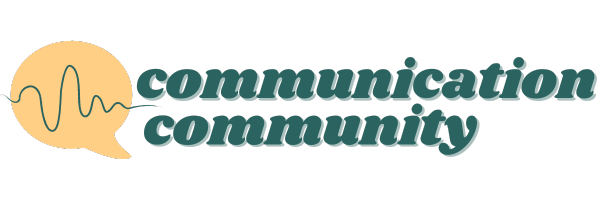
Goal Writing Formula: Best of Therapy Tools! November 2020
Strong and functional goals for speech therapy should include 3 (sometimes 4) key components: the Do, Condition, Criteria (+ Consistency).
Our comprehensive goal banks for school-aged language, AAC, Early Intervention & preschool, and fluency are available on our site or Teachers Pay Teachers store !
Save time creating goals with over THOUSANDS of possible goal combinations. Select your own combination of DO + CONDITION + CRITERION (and consistency) statements to develop personalized and measurable goals for your caseload.

Our “Best of” monthly posts serve to provide our readers with helpful bits of information or resources we have used over the last month, and this month, we have been thinking about the goal-writing formula we use when we are creating goals. You can also find it in our original post How to Write Speech Goals !

What are speech therapy goals?
Goals for speech-language therapy (as well as other services) are essential for providing the direction and treatment for individuals. As both speech-language pathologists and caregivers, the goals for an individual receiving treatment should be established and agreed on (with a multidisciplinary team, family, etc.) prior to beginning treatment.
But before we apply the formula, we have to determine what area of speech-language pathology we are going to target in treatment. For example, if results from an evaluation have shown an individual has deficits in receptive language (the language we understand), there will be a goal or goals related to receptive language. If any individual is learning to use an AAC device for communication, there will be goals about AAC and communication.
What to Include in a Speech Therapy Goal
Once we have determined the target area of treatment, we can think about our goal. When we create this goal, we think about the:
1. Do : what will they do?
2. Condition : in what condition will they do it?
3. Criterion : how accurate do they have to be doing it?
*Also commonly included is consistency (we incorporate this!). Aka does the individual have to meet a specific criterion more than once e.g., across 3 consecutive sessions? This is usually something commonly understood by the therapy organization/service provider and is sometimes/sometimes not included in the written goal itself. This is to ensure that the skill has been generalized and provides more reliable data that the skill has been properly mastered.

Speech Therapy Goals Examples
For example, a receptive language goal may be related to following 2-step directions. Following the formula we could say:
1. Do : follow verbal 2-step directions
2. Condition : within a structured setting (e.g. therapy or class)
3. Criterion : in 4 out of 5 opportunities
4. Consistency : across 3 consecutive sessions
The goal in its entirety :
[Individual] will follow verbal 2-step directions within a structured setting, in 4 out of 5 opportunities, across 3 consecutive sessions.
A goal related to articulation may be producing the /r/ sound. Following the formula we could say (excluding consistency):
1. Do : produce the /r/ sound in the initial, medial, and final positions
2. Condition : at the word level within structured activities
3. Criterion : with 90% accuracy
[Individual] will produce the /r/ sound in the initial, medial, and final positions at the word level within structured activities, with 90% accuracy.
Additionally, goals should be written so that they can be understood and interpreted by those who did not write the goal. Another speech-language pathologist should be able to read a client’s goals and know what is being targeted during sessions and how to target it. As a caregiver, it is important to know these goals so that you are aware of what your loved one is working on during their treatment sessions. If you are wanting to help with treatment carryover, you may realize that expecting your loved one to follow 4 or 5-step directions may be too difficult for them if they are currently working on 2-step directions during therapy.
So next time you write or read a goal, see if you can determine the do, condition, and criterion of it!
You might also like.

Using LEGO Blocks in Speech Therapy
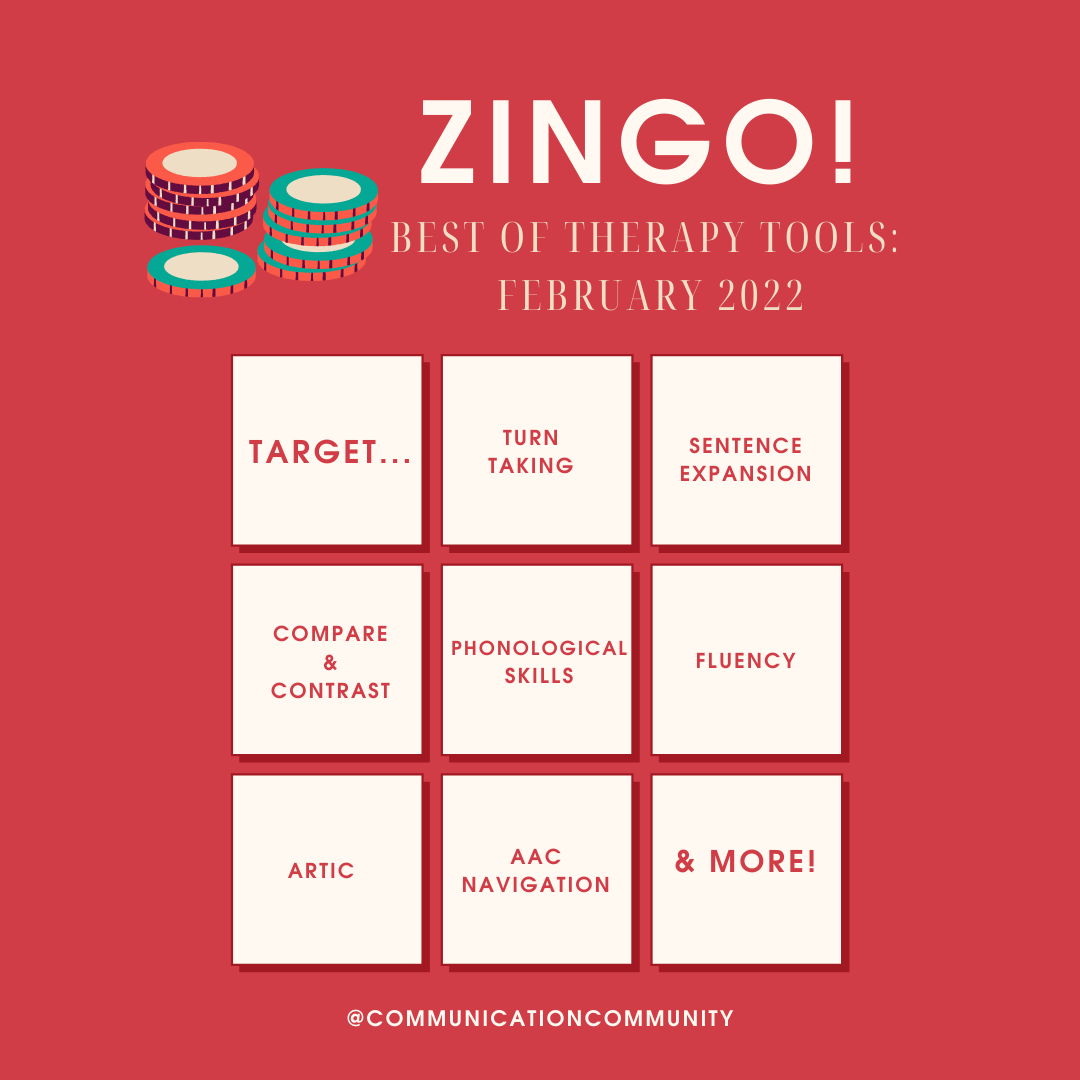
Zingo: Best of Therapy Tools! February 2022
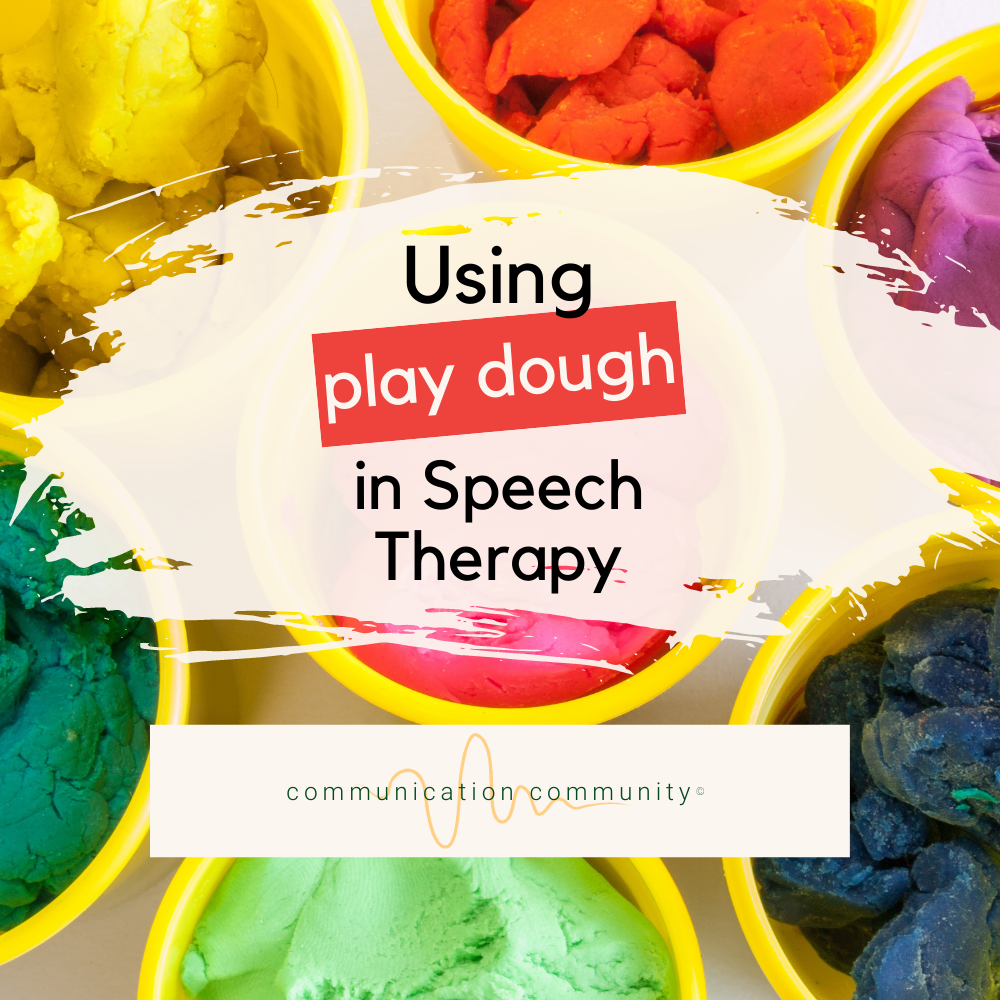
How to Use Play Dough in Speech Therapy: Best of Therapy Tools! January 2022
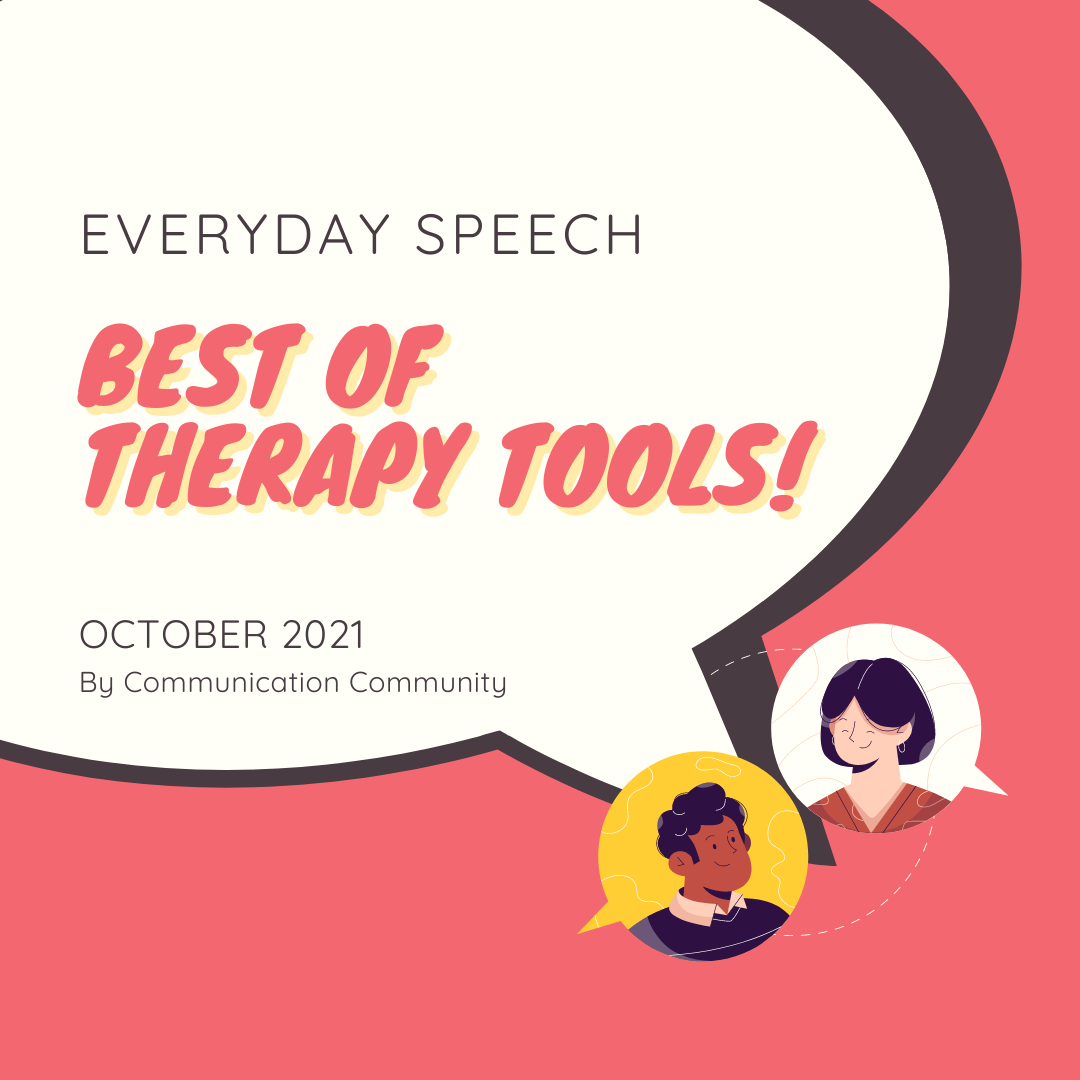
Everyday Speech: Best of Therapy Tools! October 2021
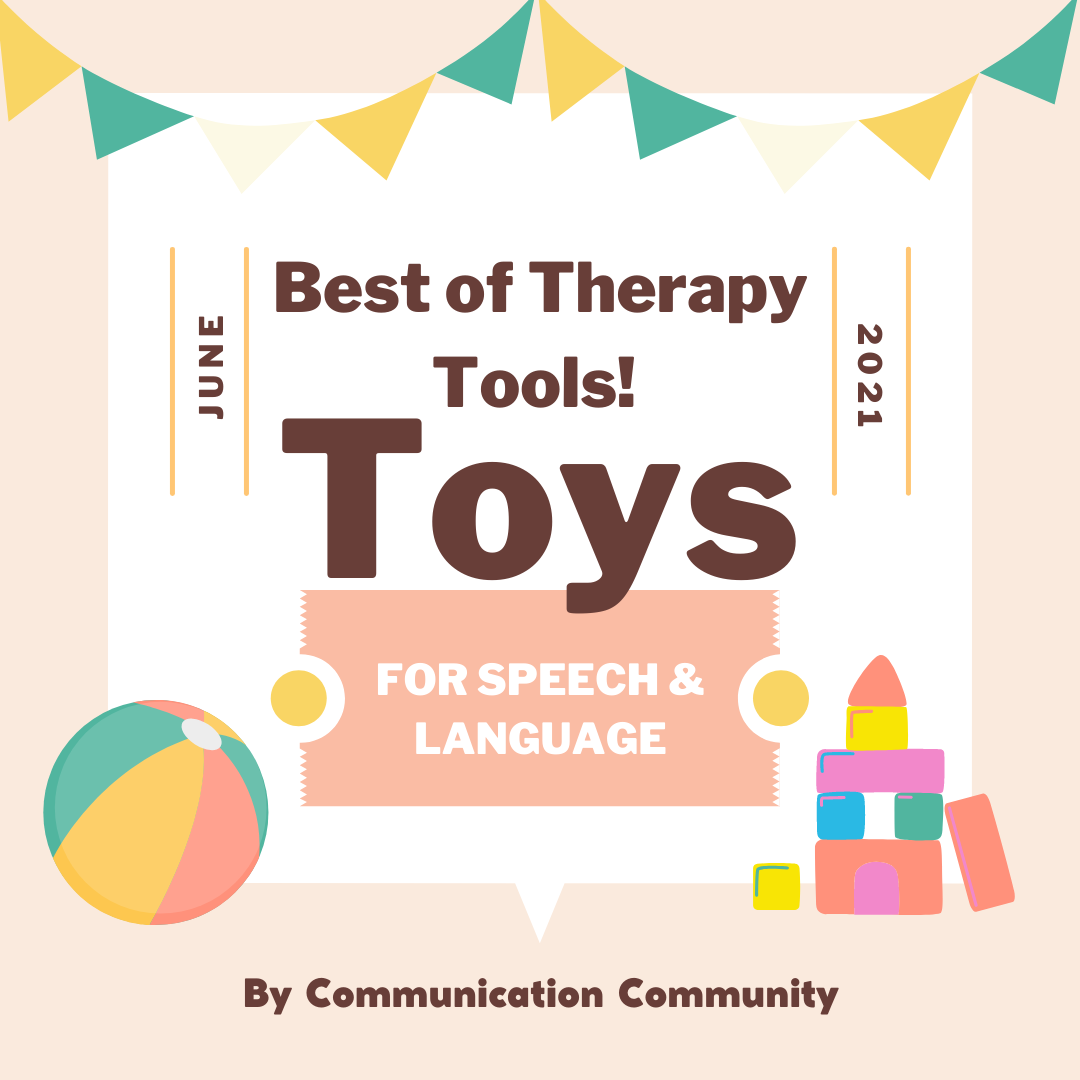
Toys for Speech and Language: Best of Therapy Tools! June 2021
Subscribe to new posts., subscribe to be notified of new content and support communication community, help keep this site independent..


IMAGES
VIDEO
COMMENTS
More Examples of Specific Skills. -"cup sips of thin liquids". -"writing at the sentence level". -"simple short term memory tasks". -"multisyllabic words containing /k/ final". 2. Include Accuracy level. Typically 80%-90% accuracy. There are differing opinions on how to measure goal accuracy.
Once you have gone through each step in the framework, you are ready to write goals! That can seem like a lot on your plate when you have a tremendous amount of clients to cover. Well, we are here to make that step a little easier - we present to you our SLP goal writing formula: DO statement. CONDITION statement.
Here are some of my example fluency goals: During structured therapy tasks, STUDENT will use fluency strategies (e.g., smooth speech, slow rate, full breath, etc.) and structured speaking tasks (e.g., answering questions, story retail, therapy games), with the use of visual cues and reminders, in four out of five opportunities.
Neurodiversity-Affirming: Speech Therapy Goal Example 1. [Client] will identify problems related to community safety, when presented with real picture scenes, in 8 out of 10 trials. Neurodiversity-Affirming: Speech Therapy Goal Example 2. [Client] will state the cause of a functional problem, then state 1-2 preventative techniques, during ...
4 Types of Articulation Errors. Substitution: a sound is substituted for another sound. For example, saying the /w/ sound instead of the /r/ sound, such as "wabbit" instead of "rabbit". Omission (deletion): a sound within a word is left out. For example, deleting the /s/ in "speech" and saying "peech".
Articulation goals usually include: Targeting specific sounds at the phonemic level, word level, phrase level, sentence level, reading level, and conversational level. Increasing accuracy in producing the target sound. Enhancing the intelligibility of the individual's speech. Encouraging self-monitoring and self-correction during conversations.
Getting Started with Speech Therapy Goals. Let's start at the beginning with a little review of what can prepare you for writing really solid speech therapy goals. 1. A complete assessment that included formal and informal testing. 2. Input from the student, teachers, staff members, and family members. 3. Data from your sessions (if ...
What Are The Different Types Of Speech Therapy Goals. Speech therapy goals tend to fall into any one of the following categories: Expressive Language. Receptive Language. Articulation. Fluency. Social Pragmatic. Voice. You'll find examples of successful goals in each category below.
How to Write Speech Therapy Language Goals. Goals should be written to be specific, measurable, attainable, relevant and time-based. Let's break some of these down. Speech Therapy Goals for Expressive Language, Receptive Language, and Articulation. Specific - your IEP goals should be specific and define exactly what you were wanting to be ...
T - Timely - Make sure to incorporate time-related markers for the goals. Time is tangible, measurable, and specific. Some examples of these might be: Work on speech therapy flashcards for 15 minutes 4 days a week. Improve articulation when reading the /r/ sounds book in 3 weeks. Attend speech therapy group sessions at least 2 times this month.
There is no set way and is largely dependent on how the goal is written. Achievable - An achievable goal would contain, as an example, "within 36 weeks" or "within 12 months.". Specify the timeline that the student has to achieve that goal and objective. Oftentimes, our long-term goal is for a 12-month period.
We either write a second goal or this is where goal objectives come in. A sample speech goal with objectives would look like this: Goal 1: Child will produce all age-appropriate sounds with 80% accuracy and minimal assistance. Objective 1:1: Child will produce /s/ clusters with 80% accuracy and minimal assistance.
We write speech and language goals to document objectives in therapy. Goals are unique to each child and are meant to be transferrable between therapists if needed. Just as a teacher leaves their notes to substitute teachers, we SLPs leave notes for both other SLPs and professionals. If other professionals are on the child's support team ...
Here is an example of how to write a SMART goal using the CAPE-V as an assessment tool. This goal is targeting the "skills" domain of the ICF. Client will demonstrate all aspects of voice quality at an SLP-judged rating of 15 or lower on the CAPE-V protocol by the end of 12 weeks. Baylor & Darling-White, 2020, p. 1353.
5 Factors to Consider When Writing Articulation Goals. 1. Complete a comprehensive formal and informal articulation evaluation. (Be sure to target any other areas of concern.) 2. Consider the impact the student's speech articulation has on the student. Be sure to get feedback from the students, teachers, and parents.
2. Identify goal targets that impact the student academically/socially. Parent and teacher report that Student replaces /k/ with /t/ (e.g. "cat" is spelled "tat") in their spelling. It is also hard to understand what the student is asking or commenting when talking with the teacher and peers in the classroom. 3.
It is defined as the comprehension and/or use of a spoken (i.e., listening and speaking), written (i.e., reading and writing), and/or other communication symbol system (e.g., American Sign Language).". ( ASHA ). Language can be broken into 2 main areas, receptive and expressive. Receptive refers to listening and reading skills and expressive ...
Asking a parent directly what their concerns are reassures the parent that their concerns are valid. This is so important because often times parents feel defeated, blame themselves, and just have no idea what else to do. Sometimes we just need someone to tell us: I see you. I see your frustrations and concerns and they are valid.
When writing speech therapy IEP goals, I don't think any SLP has ever said: • Writing goals is fun! • I love writing goals! • Writing goals is my favourite thing to do!If you haven't - you aren't alone. Writing IEP goals is one of the most daunting tasks of being an SLP. It can be time-consuming, overwhelming, and exhausting. I want to share five quick tips on how you can make IEP ...
Writing Expressive Language Goals. Below you will find our Communication Community Goal Writing Formula that we use for writing all communication goals (e.g., receptive, expressive, pragmatic, etc.). As seen above, speech goals should be written with 3* components in mind: the DO statement, the CONDITION statement, and the CRITERION statement.
Determine the Time Frame. A time frame is necessary for encouraging the child to push through their insecurities and unwillingness and keep up with the goals. Based on your assessment and goals that lie ahead, set a time frame for each goal as well as for overall therapy. For example, you can write goals that can be achieved within two weeks ...
2024 Chicopee Comp Graduation City of Chicopee - Mayor's Office Chicopee Comprehensive High School Chicopee Public Schools
Key Takeaways. Setting and reaching personal development goals in and outside of work help you become more successful. Improving your networking skills, learning a coding language, and waking up earlier are three examples of personal development goals. increased motivation and more opportunities for advancement are some benefits of setting ...
For the purpose of this article, we will focus specifically on writing goals for cluttering. As seen above, speech goals should be written with 3* components in mind: the DO statement, the CONDITION statement, and the CRITERION statement. *Also commonly included is consistency (we incorporate this!).
FAC Number Effective Date HTML DITA PDF Word EPub Apple Books Kindle; 2024-05: 05/22/2024
Machine learning definition. Machine learning is a subfield of artificial intelligence (AI) that uses algorithms trained on data sets to create self-learning models that are capable of predicting outcomes and classifying information without human intervention. Machine learning is used today for a wide range of commercial purposes, including ...
Speech Therapy Goals Examples. For example, a receptive language goal may be related to following 2-step directions. Following the formula we could say: 1. Do: follow verbal 2-step directions. 2. Condition: within a structured setting (e.g. therapy or class) 3. Criterion: in 4 out of 5 opportunities.